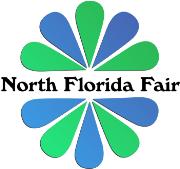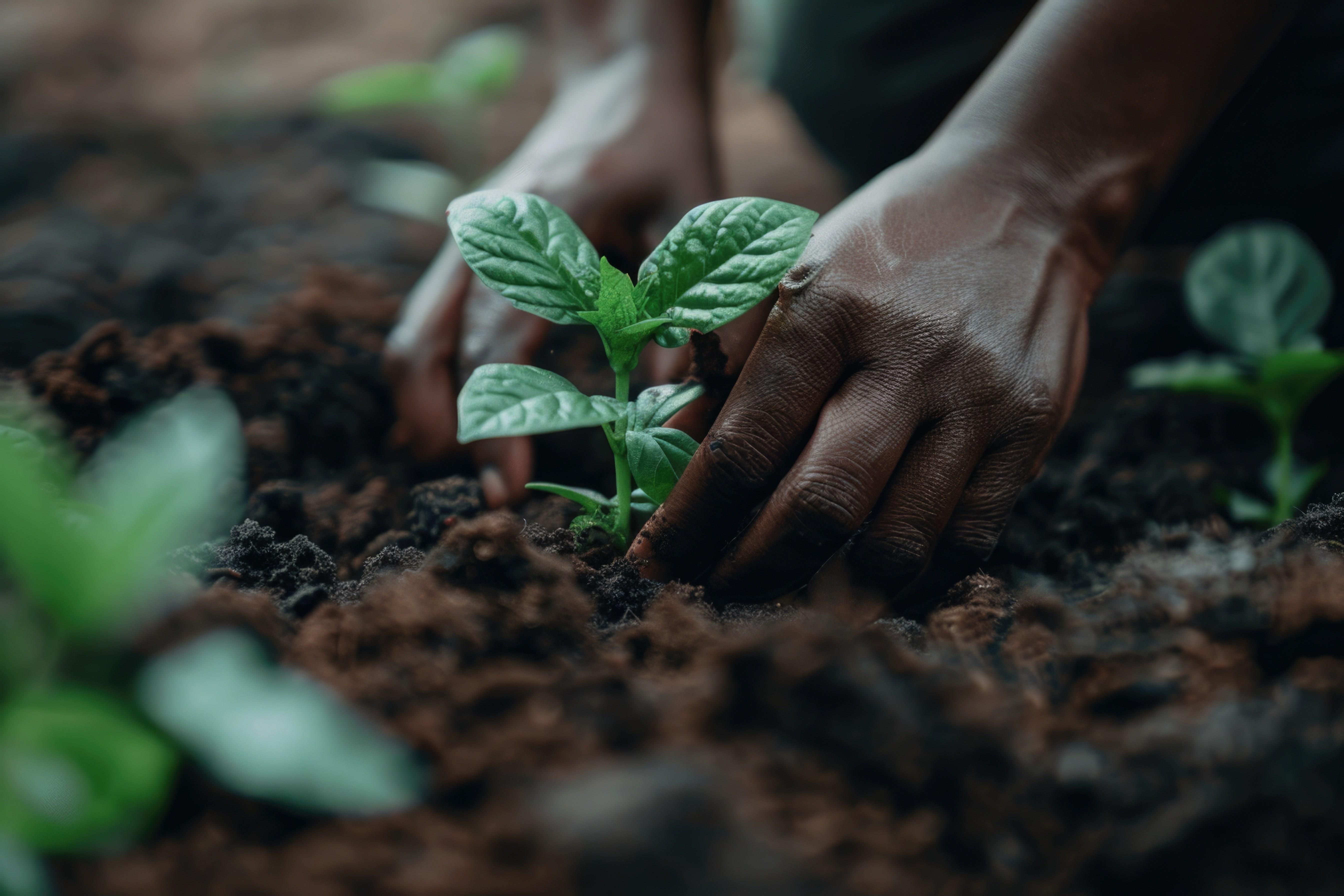




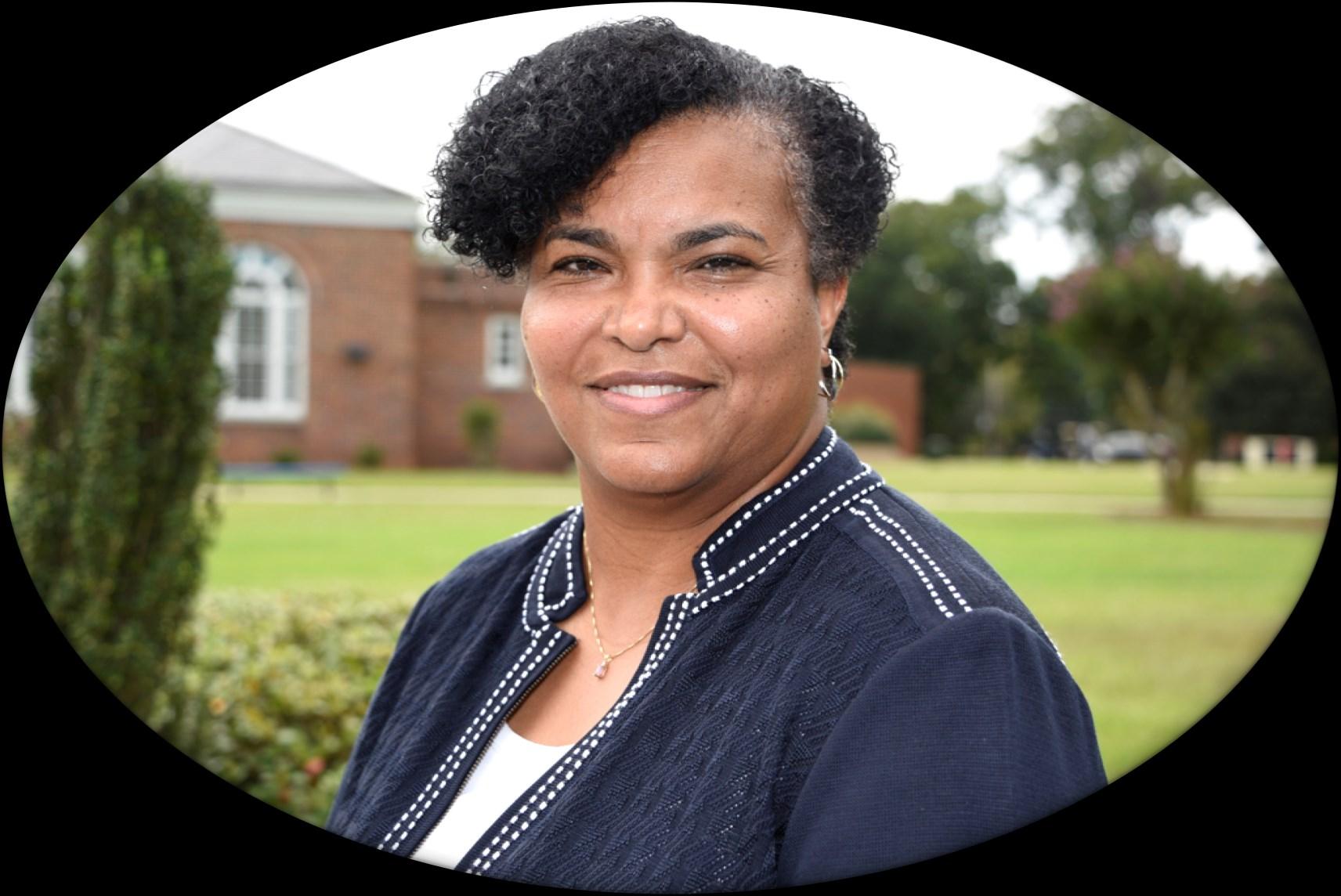
The role of taking the University to the People is the foundation of FAMU Cooperative Extension as the outreach arm of the University’s land-grant mission. A thriving Florida economy will require empowered and well-informed citizens and workers. FAMU Cooperative Extension puts knowledge to work in pursuit of economic profitability and sustainability as well as social well-being. We bring experience and research-based solutions to help individuals, families and communities thrive in Florida’s ever-changing economy.
An expanded knowledge base, innovations for families, farmers, and business leaders, positive leadership and development for youth, and community and economic development opportunities are just part of FAMU Cooperative Extension’s approach to meet challenges and make contributions to the state of Florida and the world that are bold and exceed all expectations. As a unit of the Florida Cooperative Extension Service, FAMU is also a cooperative partner with USDA National Institute of Agriculture, University of Florida Institute of Food & Agriculture (1862), and state and local entities.
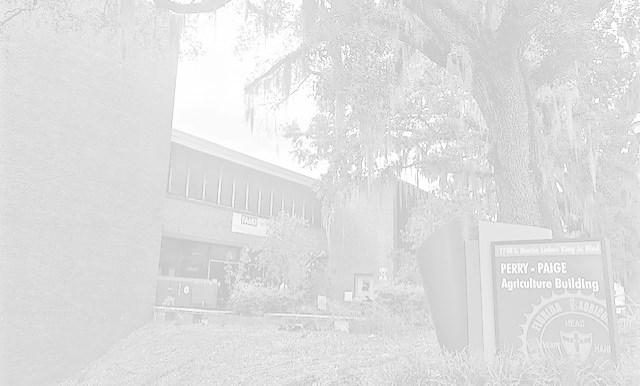
-Vonda Richardson, Extension Director/Administrator

Stay updated with our quarterly report and explore the latest developments in FAMU Cooperative Extension. We continue to be committed to serving farmers, producers, ranchers, rural and urban families, seniors, youth, entrepreneurs, small business owners, and underserved communities.
FAMU Campus/Main Location:
1740 S. Martin Luther King Jr, Blvd. 215 Perry Paige Building South Tallahassee, FL 32307
Phone: (850) 599-3546 | Fax: (850) 561-2151 | TDD: (850) 561-2704
FAMU Campus/4-H Youth Development and Teleconference Center: 2010 Pinder Drive
Tallahassee, FL 32307
Phone: (850) 599-3572
FAMU Research and Extension Center: 4259 Bainbridge Highway Quincy FL 32352
Phone: (850) 412-6523 | Fax: (850) 875-8555
FAMU Community Development and Business Center: 1 Bay Avenue
Apalachicola, Florida 32320
Phone: (850) 653-1104
West Palm Beach Office/City of West Palm Beach 401 Clematis Street, 3rd Floor West Palm Beach, FL 33401
Phone: (561) 804-4979

cafs.famu.edu/cooperative-extension




FAMU is an equal opportunity/equal access university authorized to provide research, educational information and other services to individuals and families without regard to race, color, sex, age, handicap or national origin. U.S. Department of Agriculture, Cooperative Extension Service, University of Florida, IFAS, Florida A&M University Cooperative Extension Program and Boards of County Commissions Cooperating.
October-December/Fall 2024 Edition
Extension Strikes Quarterly Magazine is published by FAMU Cooperative Extension.
Editor: Amelia Davis, MBA
Editorial: Vonda Richardson, Conchita Newman, Sabrina Hayes, Ph.D. , Terrance Cole, Tavia Gordon, Crystalgale Hunter, Linda Sapp and Kimberly Davis.
Photography: Vonda Richardson, Amelia Davis, Linda Sapp, Conchita Newman, Carmen Lyttle-N’Guessan, Ph.D., Sharon Brooks, Janeil Jackson, Teron Speer, Angel Forde, Ph.D., Terrance Cole, Cheryl Danley, Britney Clark, Keyanne Jones and Tavia Gordon.
G. Dale Wesson, Ph.D.
Dean, College of Agriculture and Food Sciences Director of Land-Grant Programs
Vonda Richardson Director and Associate Administrator FAMU Cooperative Extension
Conchita Newman Associate Director FAMU Cooperative Extension

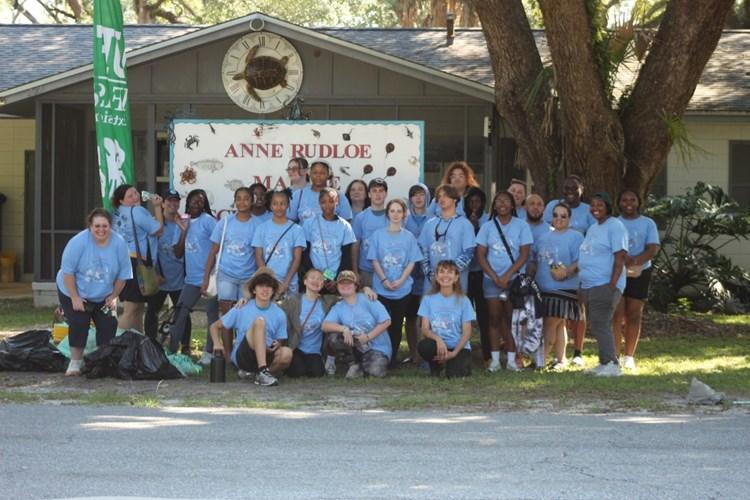


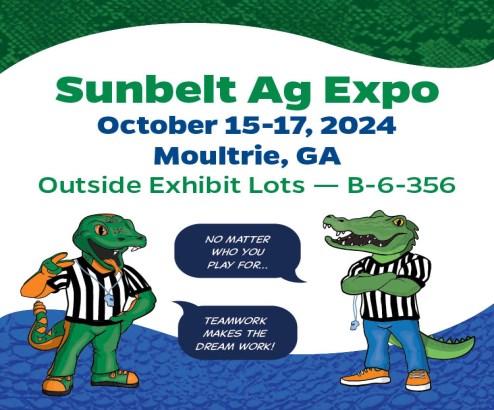
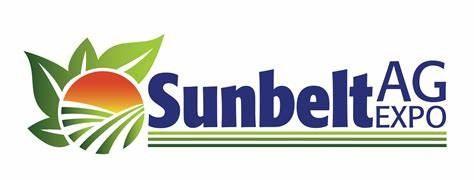












FAMU Cooperative Extension and FSU College of Social Work collaborated to address the complex issue of opioid use in rural communities through community-driven organizing and engagement. This initiative utilized the expertise of local stakeholders to strengthen resilience at both community and individual levels with the ultimate goal of reducing Opioid Use Disorder (OUD) and its related harms.
The project leveraged the infrastructure of FAMU Cooperative Extension to provide evidence-based training and resources tailored to the specific needs of rural areas in the Florida Panhandle.
In April 2024, Dr. Dreamal Worthen presented the project at the Professional Agriculture Workers Conference in Nashville, Tennessee, and highlighting the following key points:
• Collaboration with five Florida counties: Columbia, Hamilton, Hernando, Madison, and Suwannee.
• The importance of community-based organizing and engagement strategies in addressing opioid use in rural communities.
• Leveraging local rural knowledge to enhance both community and individual resilience in the fight against OUD.
• The use of FAMU Cooperative Extension to disseminate training and materials based on evidence-based practices.
This approach emphasizes the role of rural expertise and local engagement in addressing the opioid crisis effectively in these communities. Team members of the ROTA Project are: Vonda Richardson (PI), Dreamal Worthen, Ph.D., Zandra Gilley, Ciara Holloman and Teron Speer.
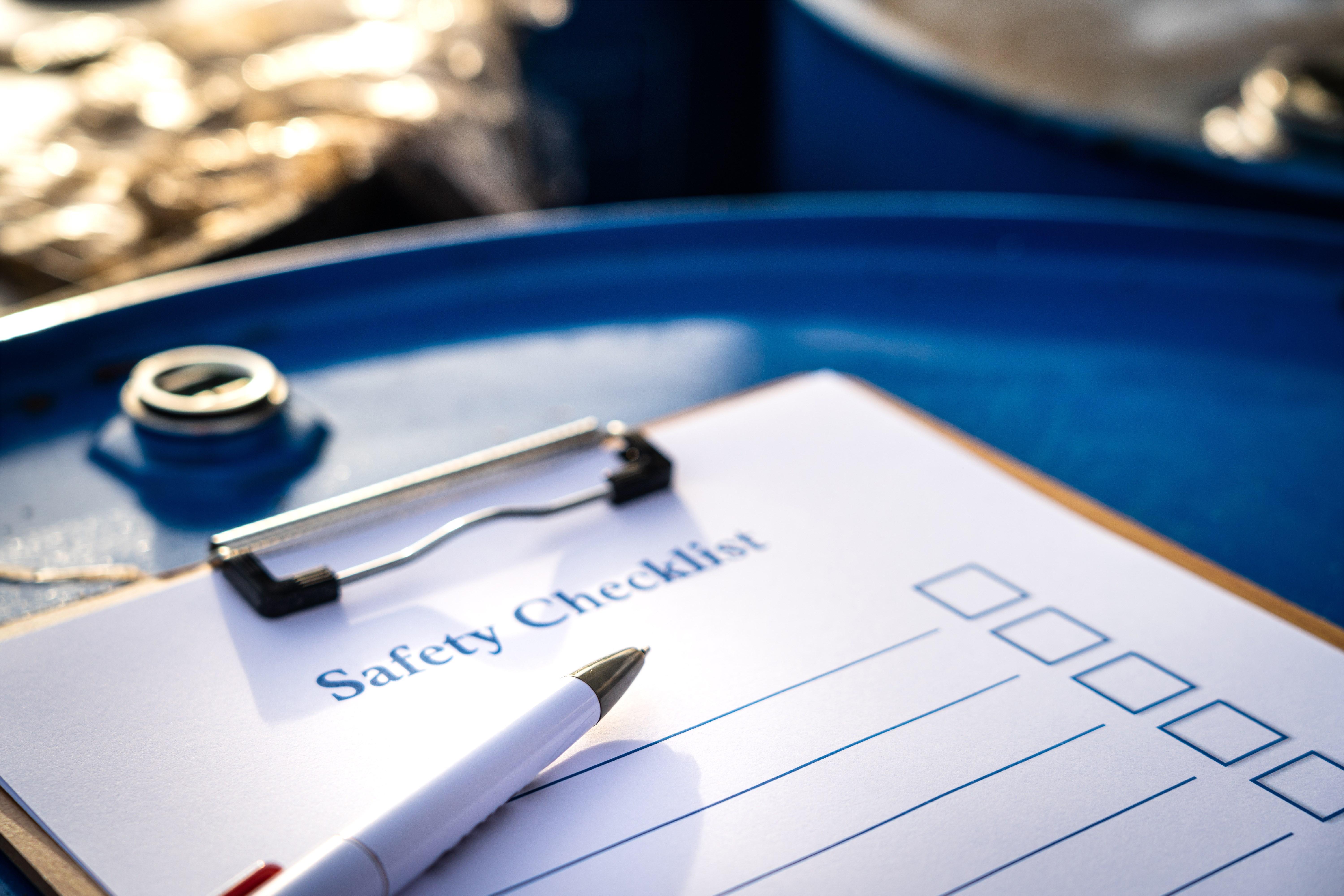
Fall has arrived, and winter is just around the corner. From late October to early January, families and friends will gather for homecomings, Halloween, fall fairs, Thanksgiving, Christmas, Kwanzaa, Hanukkah, New Year’s, and more. These celebrations bring food, fun, fellowship, football and sometimes folly, especially with too much alcohol. As you plan for the holidays, don’t forget to prioritize emergency preparedness and safety. Family gatherings are also a great time to discuss general emergency plans.
'Tis the season for festive cheer and celebration, but with the excitement of decorations, food, and travel, it’s easy to overlook safety. Falls and fires are the top holiday hazards. To ensure a safe and happy holiday season, here are a few tips to keep yourself and loved ones out of harm’s way!
Holiday Décor Safety
• Never use lighted candles near trees or boughs.
• Place burning candles in sight, away from flammable items, and blow them out before leaving the room.
• Use a ladder or step stool to decorate high places.
• Keep poisonous plants such as poinsettias out of reach of animals and children.
• Check holiday lights for fraying, bare spots, gaps in insulation or excessive kinking in the wire.
• Turn off all tree lights and decorations when not in use.
Cooking /Food Safety
• When cooking, wash hands, sink, utensils and anything else that touches raw meat.
• Cook food thoroughly. Bacteria grow quickly at temperatures between 40°F and 140°F.
• Immediately refrigerate leftovers, refrigerate hot or cold within 2 hours of being served, and reheat food to at least 165 degrees.
• Never leave cooking food unattended on the stove.
• Keep children away from the cooking area, and keep flammable items, like potholders and paper or plastic bags, away from the stove and oven.
• Only fry a turkey outside and away from your home–not inside your garage, or on your porch.
• Have a first-aid kit and fire-extinguisher on hand.
• Be prepared and know the symptoms of seasonal respiratory illnesses or food poisoning, which can include vomiting or diarrhea, dehydration, dizziness and high fever.
• Wash your hands often, with soap and water for at least 20 seconds. Use antibacterial hand sanitizer if you can’t wash your hands.
Holiday “Cheer” Safety
• If you are hosting a party and serving alcohol, make sure everyone has a safe ride home. Impairment begins with the first drink. DO NOT drink and drive – Call a cab or ride-share!
Family/Children Safety
• Avoid giving children gifts with small parts or button batteries, which are easily swallowed and can be fatal.
• Follow age guidance and other safety information on the toy packaging, and choose toys that match your child's interests and abilities.
• Get safety gear, including helmets for scooters and other riding toys–helmets should be worn properly at all times and be sized to fit.
• Keep small balls and toys with small parts away from children younger than age 3 and pets.
Travel Safety
Lock it up. If you are headed out of town, lock up, secure your home and tell the neighbors to keep an eye out.
Don't announce your travel plans on social media
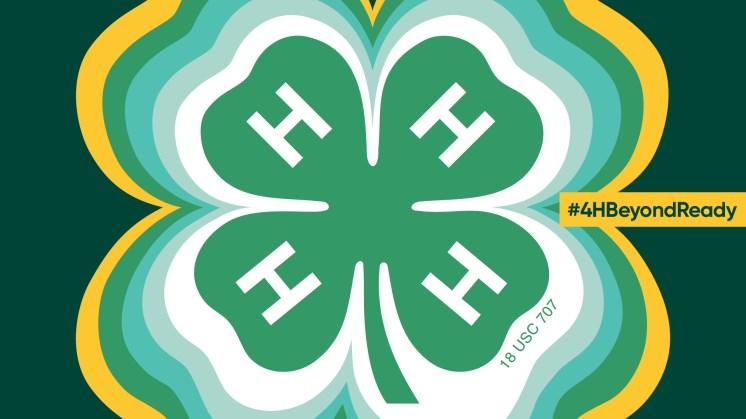
FAMU 4-H, celebrated National 4-H Week during the week of October 7– 11, 2024. 4-H is focused on building a generation that is ready for the future, even in a rapidly changing world. By meeting youth where they are today, 4-H equips them with essential skills to help them thrive. The concept of "Becoming Beyond Ready" embodies the opportunities, experiences, and meaningful connections offered through the program, allowing young people to explore, discover, and grow into their most authentic selves.
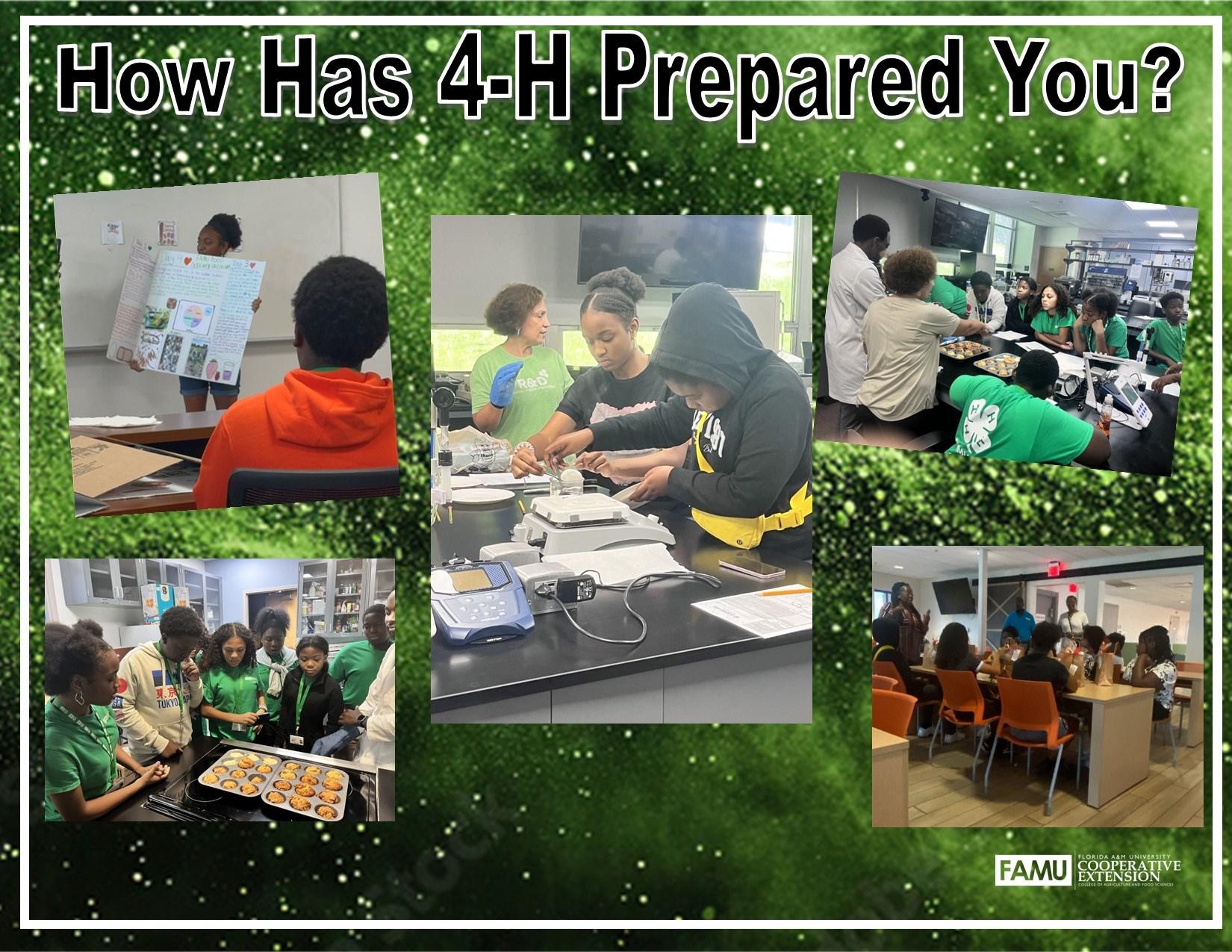
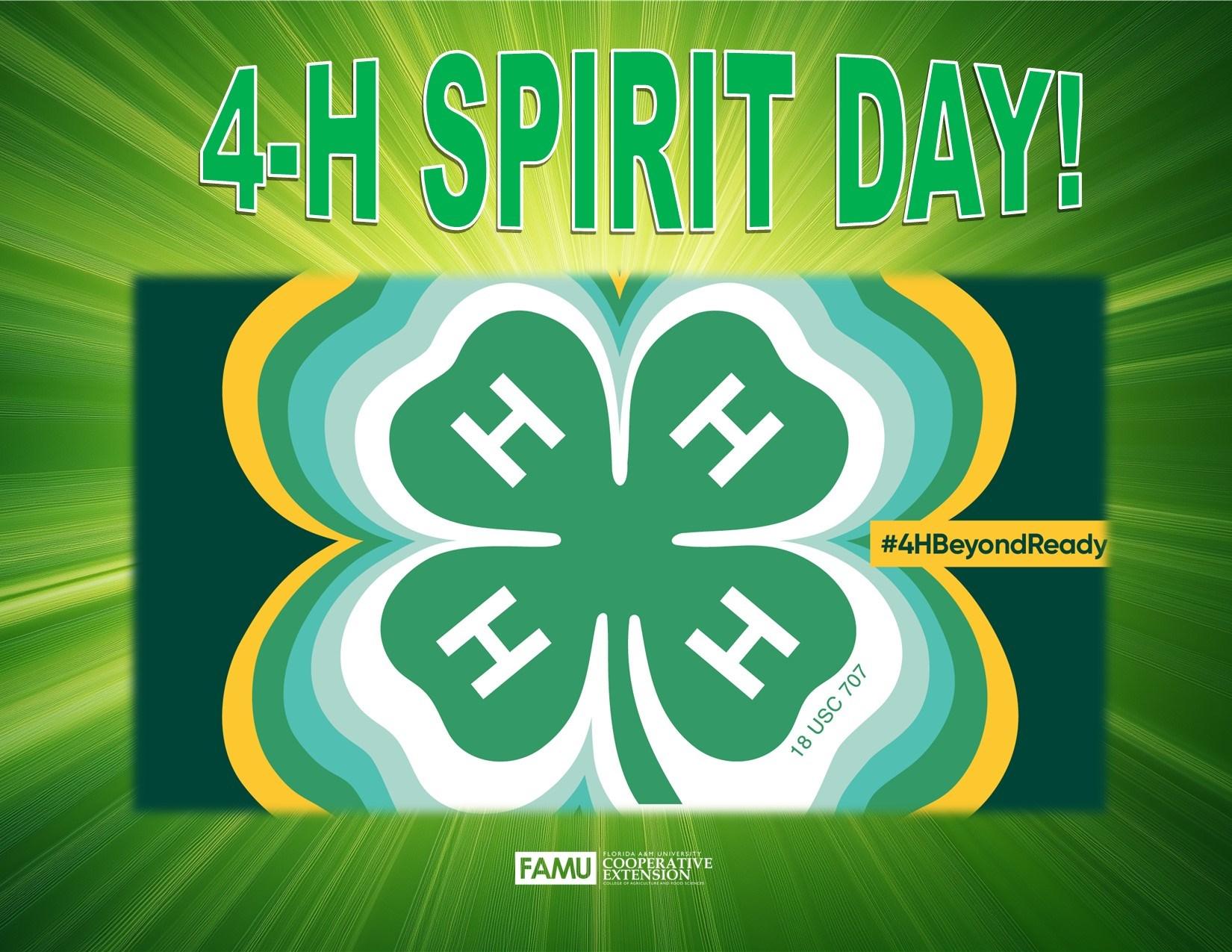
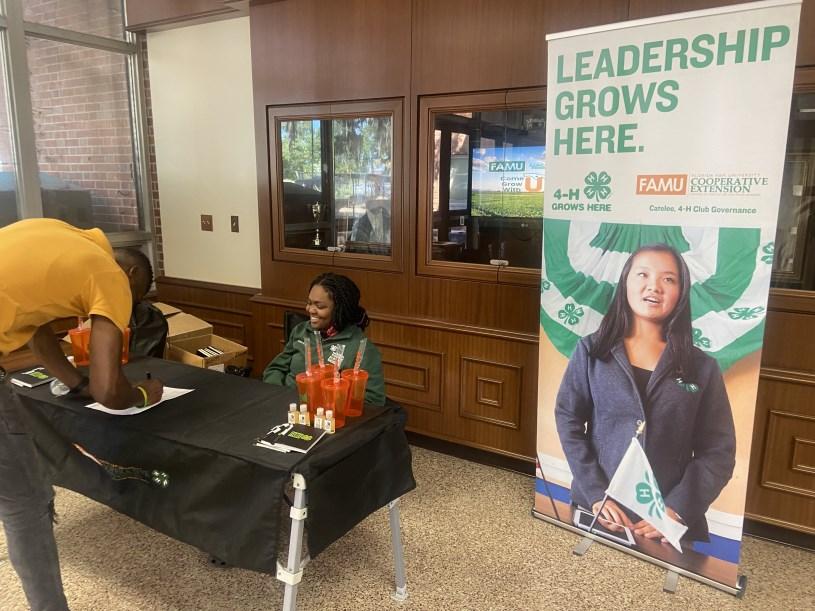
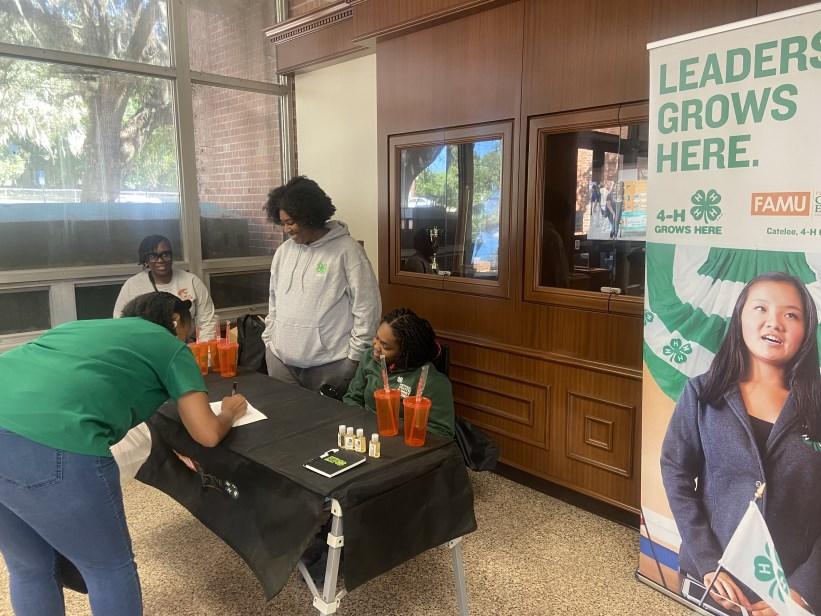
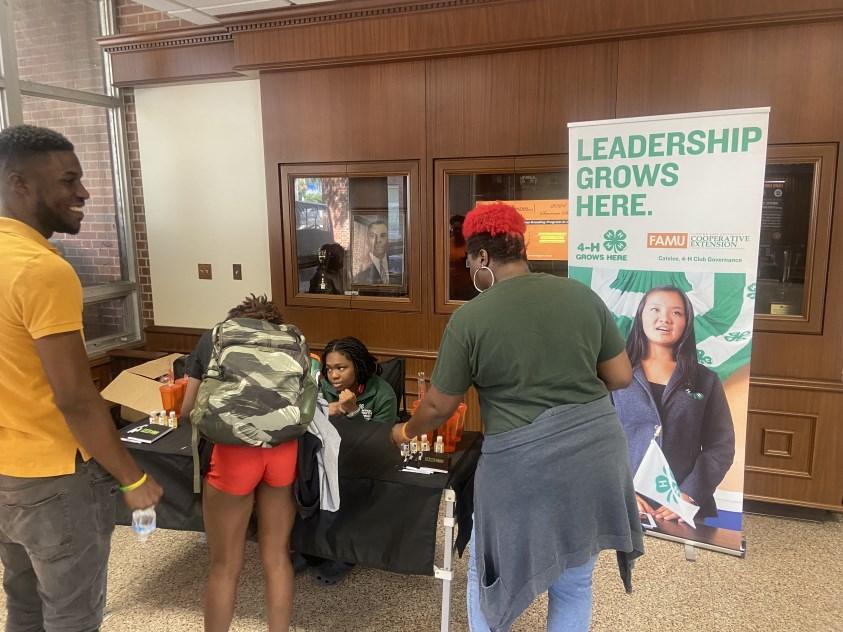


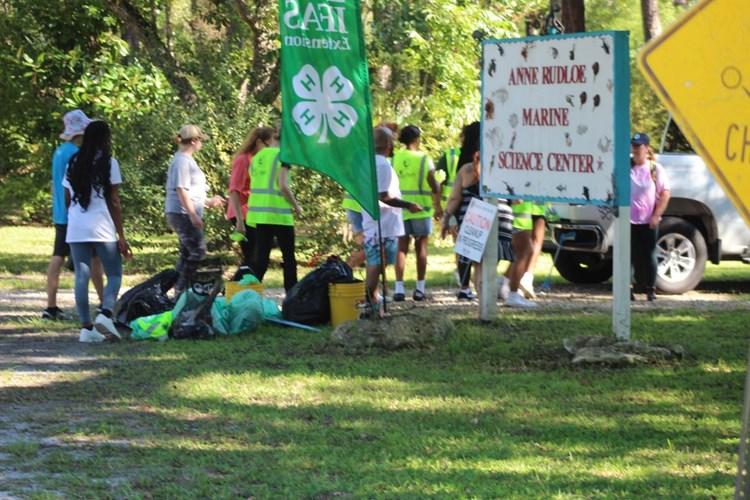
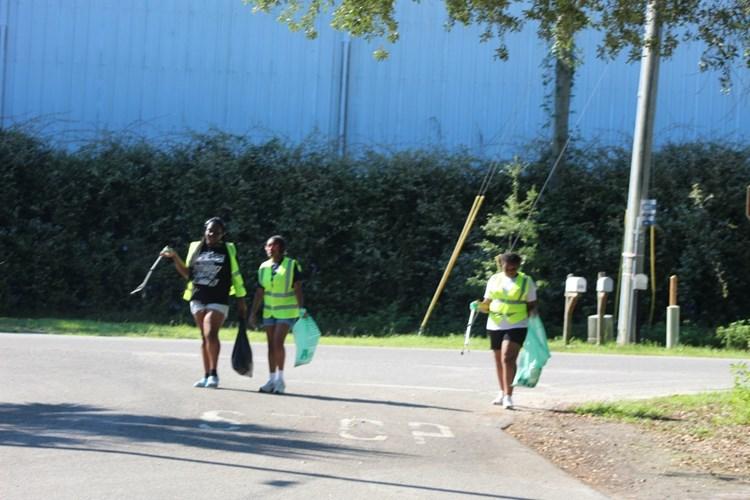
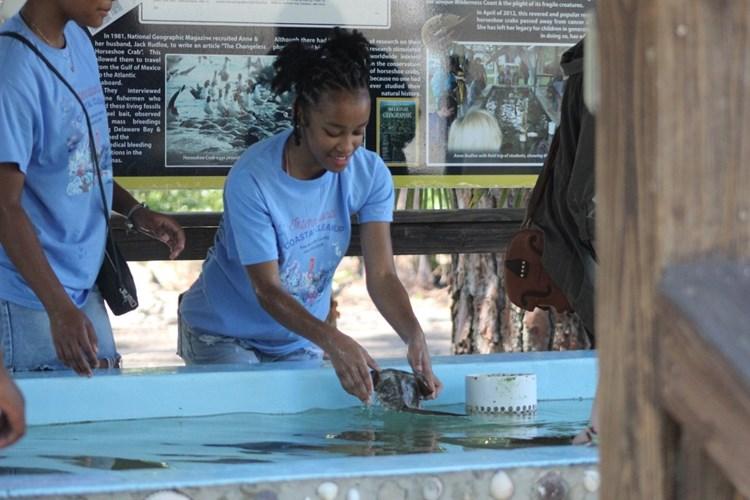
Contributor:CrystalgaleHunter
4-Hers from FAMU DRS, Gadsden County and Wakulla County participated in the International Coastal Cleanup hosted by Keep Wakulla Beautiful (KWCB). Multiple organizations, united for the KWCB event, all dedicated to ocean conservation. Passionate 4-H members seized the opportunitytomakeameaningfulimpactwhileconnecting with peers who share their commitment to a cleaner, healthier planet. Participants gained a deeper understandingoftheimportanceofreducinglitterand preservingthe environment. Many attendees were shocked by the sheer volume of trash in their assigned section of the coast. For those returning, the accumulation of debris over the past year served as a powerful reminder of the ongoing challengesweface.
Among the memorable highlights of the event were the surprising discoveries of unique items, and the “Weigh YourButts”contest,whereparticipantscompetedtocollect the most discarded cigarette butts. These finds sparked curiosity and conversations among participants, illustrating the diverse stories behind the debris and reinforcingtheimportance ofkeepingourcoastlinesclean, beyond the cleanup, the event offered a rewarding experience.Aftertheirhardwork,theyouthenjoyedlunch, live music, prizes, and recognition for their efforts. They also had the exciting opportunity to explore the Gulf Specimen Lab, where they interacted with marine life, reinforcing their connection to the creatures they were helpingtoprotect.
This experience left a lasting impact not only on the coastlineanditswildlifebutalsoontheyouth.Forsome,it wasafirst-timeexperience,whileforothers,itwasanother chance to contribute to safeguarding the environment. FAMU 4-H’ers continue to inspire positive change in their club,community,country,andworld.

Terrence Cole is a dedicated FAMU Extension Educator specializing in 4-H youth development and outreach to local farmers in Brooksville, Florida. With over 30 years of experience in agriculture, meat fabrication, and mentoring, he combines his expertise to inspire and empower the next generation of leaders.
Terrence is passionate about teaching life skills, entrepreneurship, and agribusiness through hands-on learning. He is also deeply involved in community outreach, including leading youth programs, developing leadership curricula, and engaging at-risk youth in positive development initiatives.

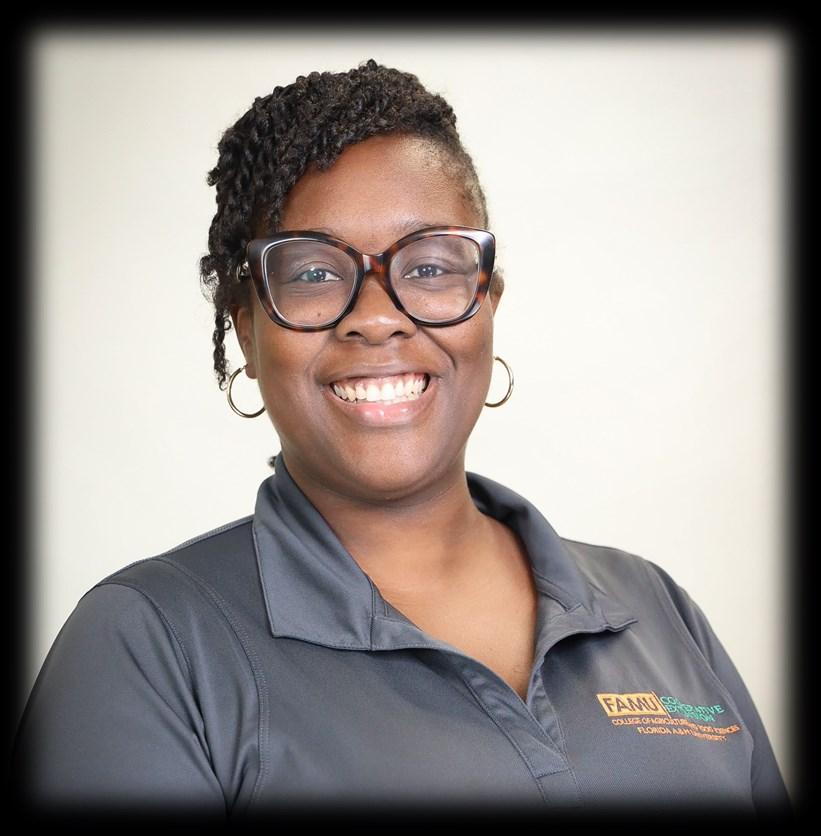
Britney is a proud two-time graduate of Florida A&M University (FAMU) from Miami, holds a bachelor's degree in food science with a minor in chemistry, and a Master of Public Health. After completing her undergraduate studies, she spent several years as the Food Science Laboratory Coordinator at FAMU before moving on to positions with the Department of Health, the Leon County Health Department, and Tallahassee State College.
Since 2008, Britney has also been a dental assistant driven by her passion for oral healthcare. She is deeply committed to community education, particularly in underserved populations working to promote healthy lifestyles and improve wellness. With expertise spanning both food science and public health, Britney actively seeks ways to engage with and uplift her community, ensuring equitable access to essential health information. Her dedication to enhancing health outcomes is reflected in her work and her mission to make a lasting impact on the lives of others.

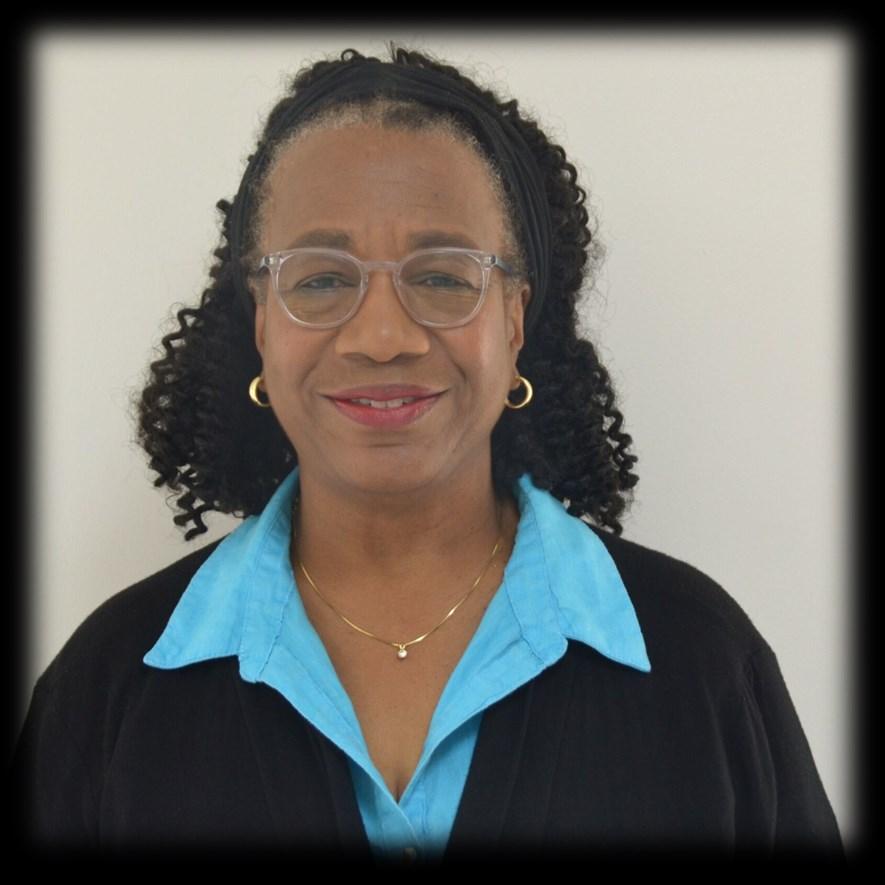
Cheryl Danley brings extensive experience in community development, agricultural marketing, and natural resource management to FAMU Cooperative Extension. With a background spanning academia, philanthropy, and non-profit sectors, she has worked on issues of environment and sustainable development both in the U.S. and Africa. At BAERS, she focuses on engaging new and beginning farmers, providing training, and supporting the small farm incubator and farm school.
Danley holds an M.S. in Food and Resource Economics from the University of Florida and has spent over a decade at Michigan State University in roles related to MSU Extension, the Center for Regional Food Systems, and the Institute for International Agriculture. She was also a Kellogg Foundation Food and Community Fellow, working on community food assessments, local food councils, farm to school supply chains, and initiatives for socially disadvantaged groups.
She serves on the Board of Elder Options and volunteers in hospice care. She grew up in urban environments such as Detroit and NYC, but takes pride in her family's central Florida farmland which has been in the family for five generations honoring the legacy of her ancestor who worked at the Brooksville site over a century ago.
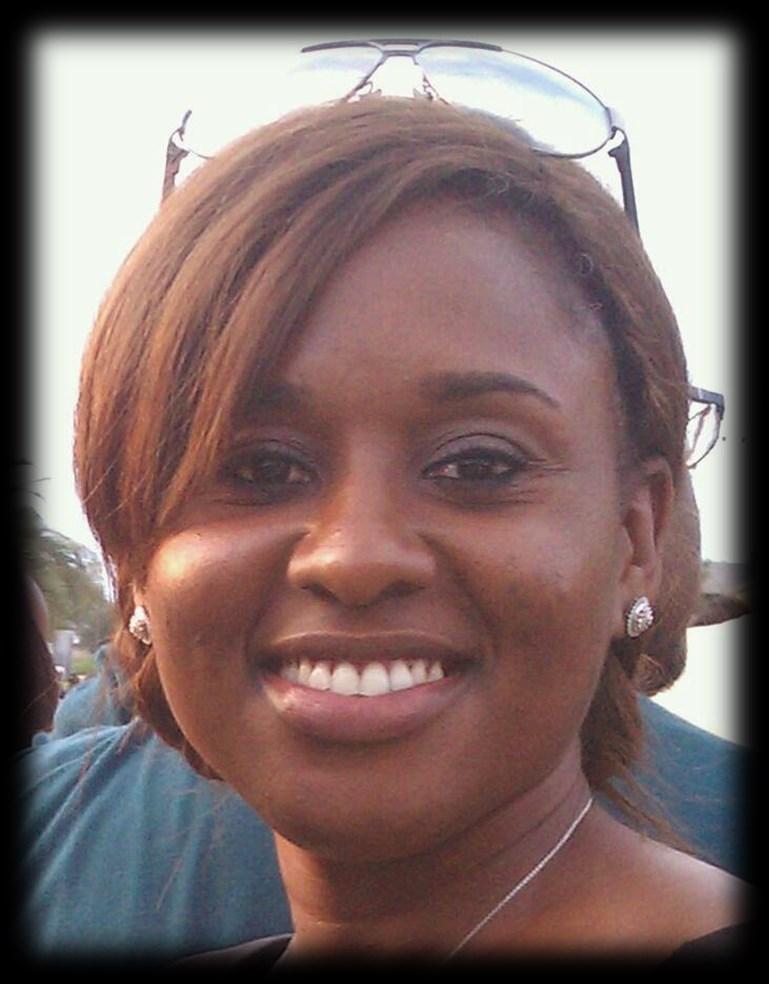
Dr. Angel S. Forde, a native of Jamaica, is an accomplished academic and educator. She holds degrees from G.C. Foster College of Physical Education and Sport, Lincoln University of Missouri, Florida A&M University, and Michigan State University where she earned her Ph.D. in Sustainable Tourism and Protected Areas. With a teaching accreditation in Integrated Science, Physical Education, and Agricultural Sciences, Dr. Forde has taught at various academic levels.
Currently, she serves as a Community Resource Development Agent focusing on fostering a sense of community and belonging through outdoor education. Her projects include developing walking trail ways to encourage outdoor activity, particularly for people of color and seniors, as well as initiatives in downtown development and tourism.
Dr. Forde is active in professional organizations such as the Jamaica Teacher’s Association, The Wildlife Society, National Parks and Recreation Association, Florida Parks and Recreation Association. and the Association of Outdoor Recreation and Education. She is certified in Green Industry Best Management Practices (GI-BMP) and is currently training to become a certified Arborist.

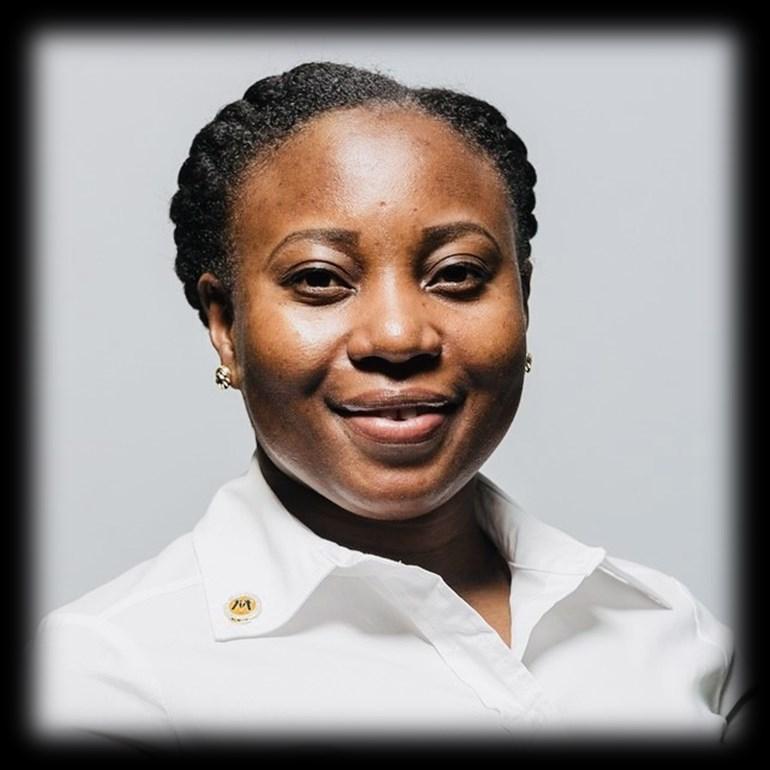
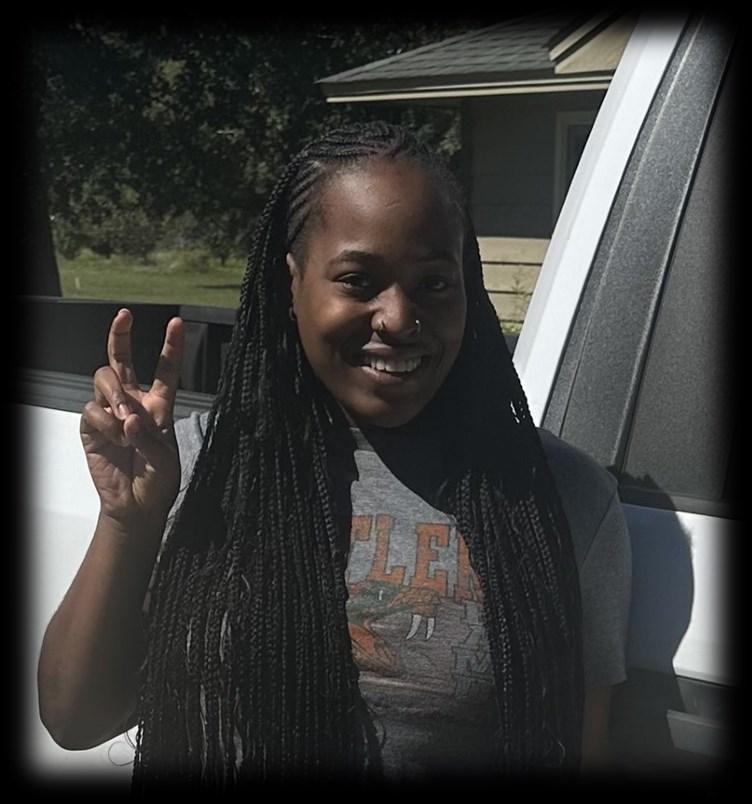
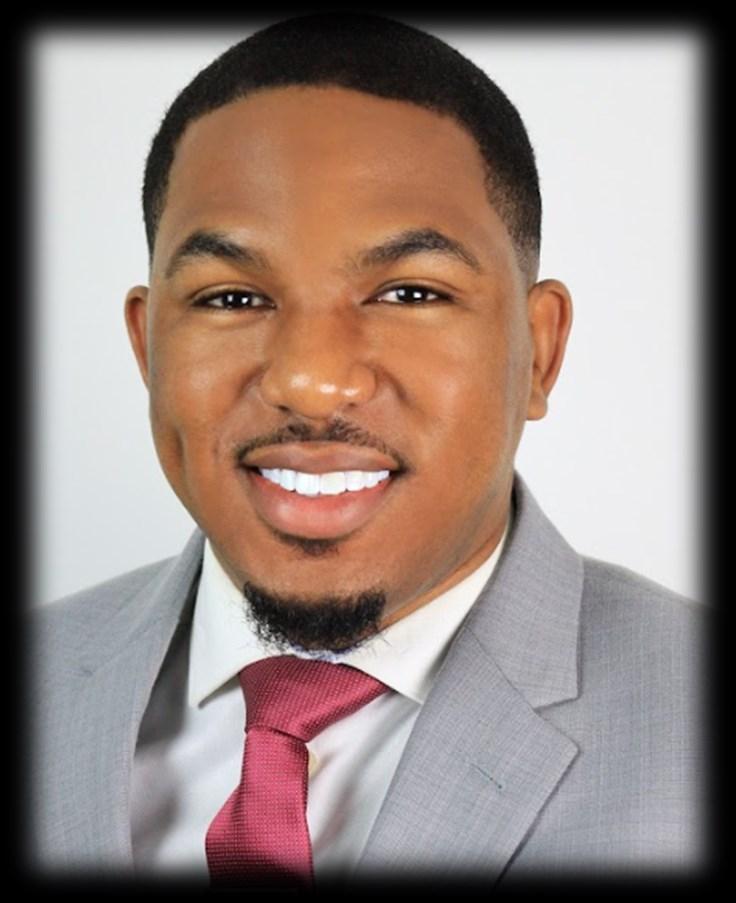
Tavia Gordon is the Urban Agriculture Extension Agent y, focusing on sustainable urban agriculture and youth development for underserved communities in the city if West Palm Beach. . She previously worked at the Florida Department of Agriculture and Consumer Services (FDACS) as an Environmental Specialist for five years. Tavia holds a Master’s in Entomology from Florida A&M University and a Bachelor’s in Environmental Science from Jamaica.
In her free time, she enjoys gardening, attending agricultural events, and teaching youth about agriculture. Her motto is inspired by Henry Ford: "Coming together is the beginning, staying together is progress, working together is success."
Keyanne Jones, is a recent graduate of Fort Valley State University with a degree in Animal Science. She is originally from Dublin, Georgia, a small town that’s close to her heart.
In her free time, she loves spending time with family, shopping, and hanging out with friends. She's excited to begin her journey as a new Agricultural Extension Agent and thrilled to be part of such an amazing team. She looks forward to seeing where this new path takes her.
Teron Speer, a native of Miami Gardens, Florida, holds a Bachelor's degree in Exercise Science from Florida State University and a Master's degree in Public Health from George Washington University.
As a dedicated extension agent, Teron is deeply committed to community health focusing on meeting the needs of underserved and marginalized populations. He is the eldest son of Tyrone Speer and Teryl Fain, and his involvement with his local faith community plays a vital role in his life where he participates in various outreach efforts.
Outside of his professional and volunteer work, Teron enjoys spending time with family, friends, and his French bulldog, Rocky.
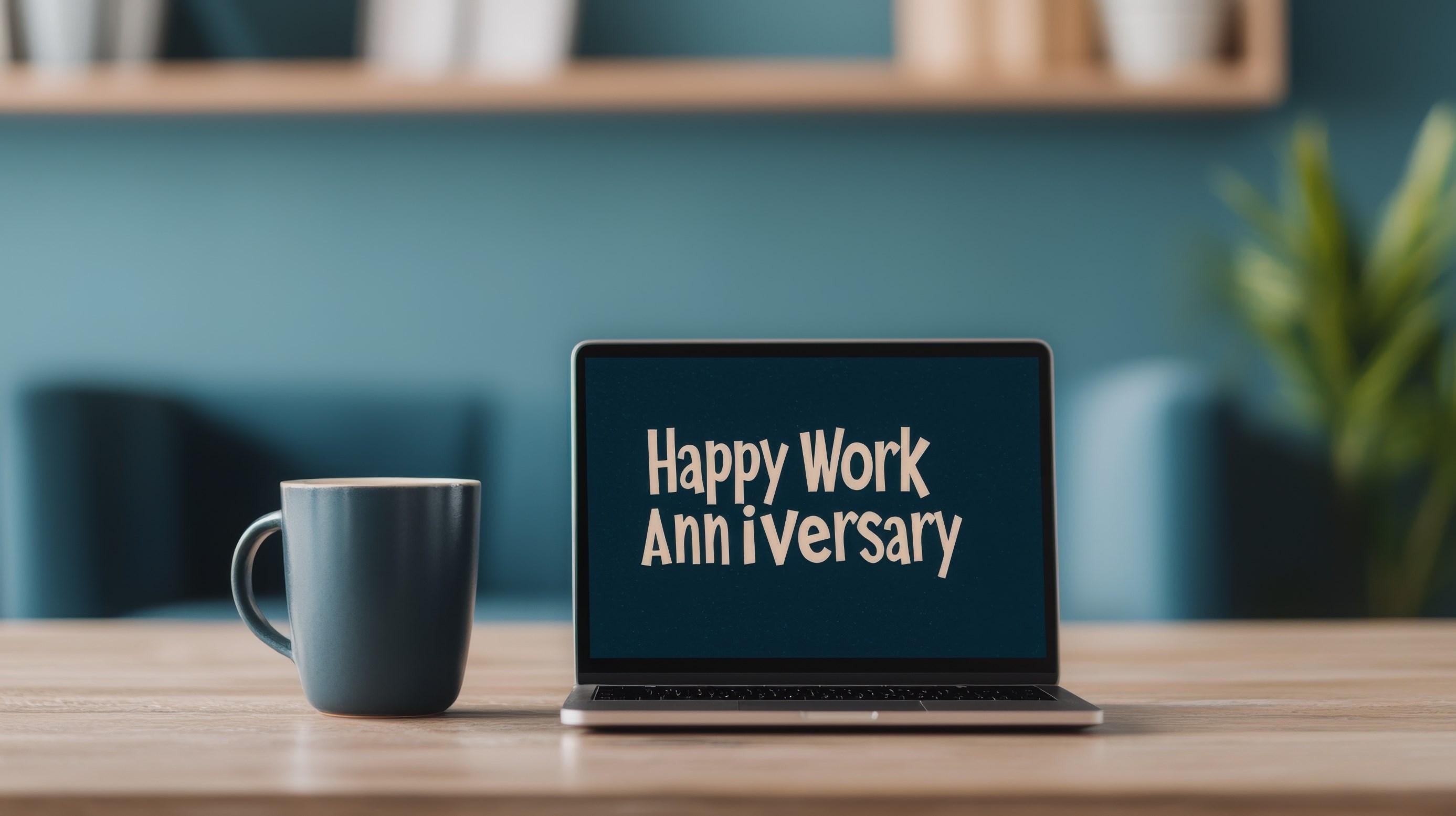
Cooperative Extension can be an extremely rewarding career, one of service, discovery and teaching. The following Extension faculty were recognized for the many valuable years of service to Florida A&M University.
Over 5 years of service
Allen Vanerson (2017) - 4-H Extension Agent (Franklin/Gulf counties)
Dr. Sabrina Hayes (2019) - 4-H Extension Agent
Carla Adams-Lippett (2015) - Youth, Family, Community Agent
Over 10 years of service
Linda Sapp (2011) - Natural Resources Agent
Over 15 years of service
Kimberly Davis (2009) - Community Resource Development Program Leader/Emergency Management Specialist
Over 20 years of service
Dr. Gilbert Queeley (2003) - Small Farms Specialist
Conchita Newman (2000) - Associate Extension Director/4-H Program Leader
Trevor Hylton (2000) - Urban Extension Agent (Leon)
Dr. Alex Bolques (2000) - Quincy REC Center Director/Crop Specialist
Over 25 years of service
Dr. Angela McKenzie-Jakes (1995) - Small Ruminant Specialist
Dr. Jennifer Taylor (1999) – Extension Associate Professor
Vonda Richardson (1995) - Extension Director
Over 40 years of
Samuel Hand, Jr. (1984) - Extension Associate Professor/ Landscape Extension
Dr. Dreamal Worthen (1980) – Youth Family & Community ProgramLeader
The Sunbelt Ag Expo, held in Moultrie, Georgia October 15-17, 2024, has become a must-attend event for anyone involved in agriculture. With static exhibits, a working farm, equipment demonstrations, driving ranges, and educational sessions, it stands as the most comprehensive farm show in the Southeastern U.S. Each year, over 1,200 companies exhibit at this one-stop agricultural marketplace, with 75% returning as repeat exhibitors.
This year, Florida took center stage as the Spotlight State, showcasing its contributions to agriculture and innovation. For the second year, there was a joint Extension exhibit by Florida’s two land-grant universities, Florida A&M University and University of Florida, promoting programs serving Florida citizens. This year’s theme as Game Day? Here are a few snapshots capturing the FAMU Extension and UF/IFAS staff in action during this exciting three -day event.
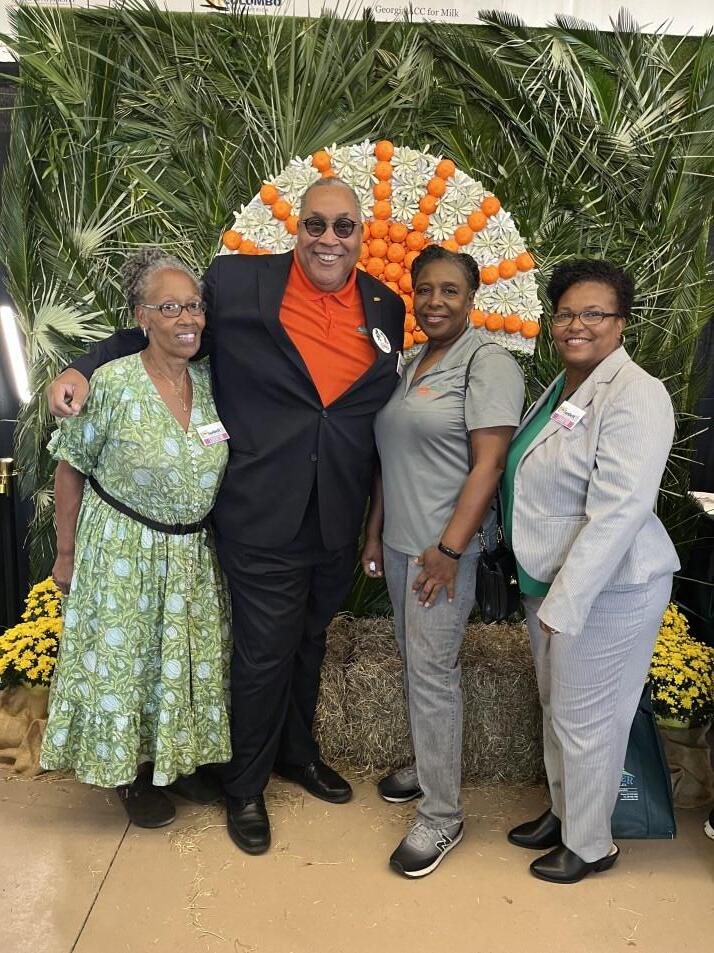
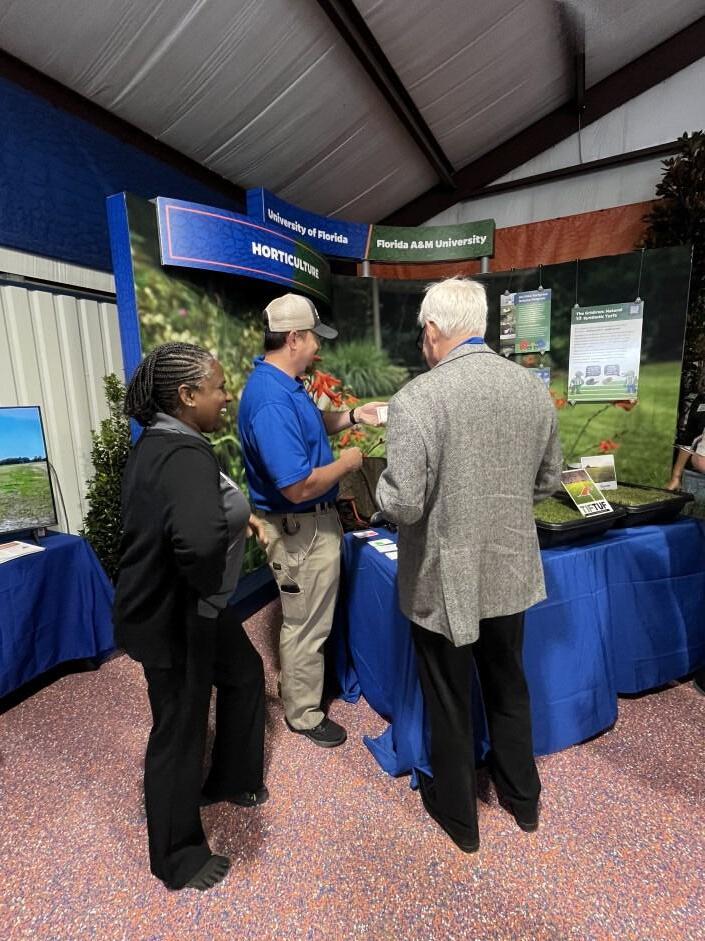
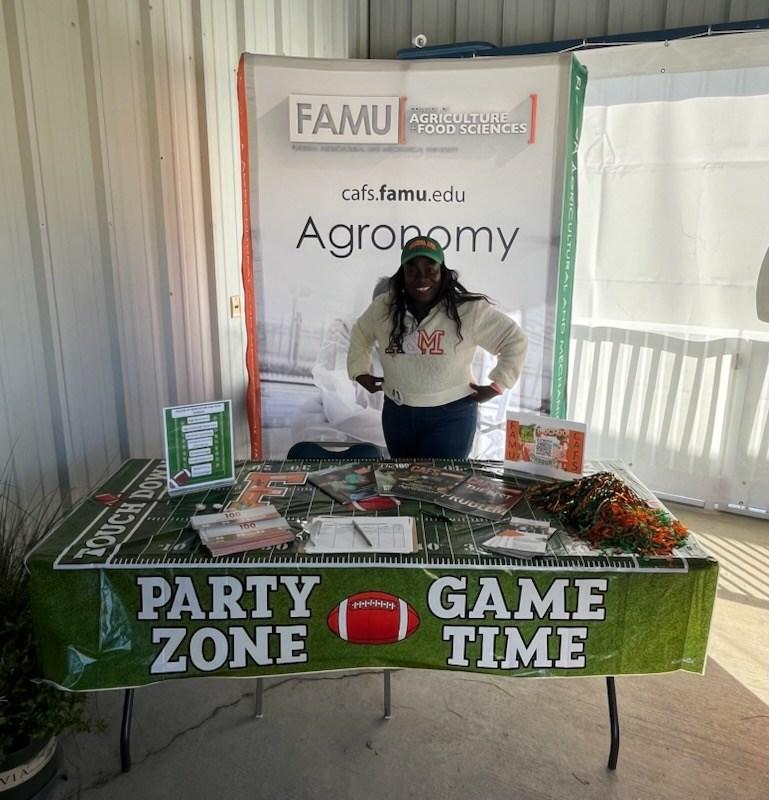
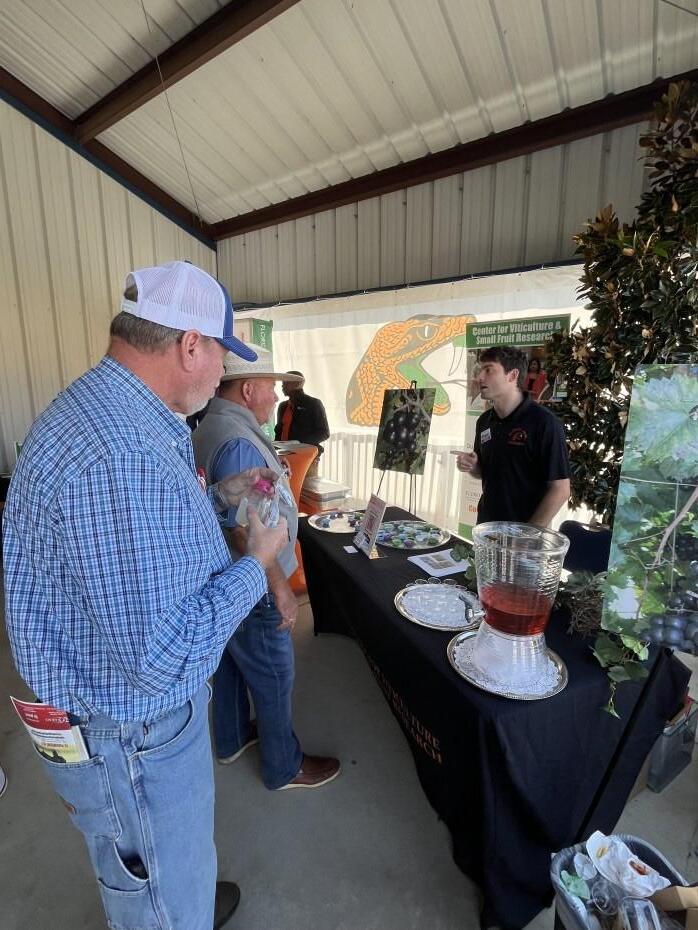
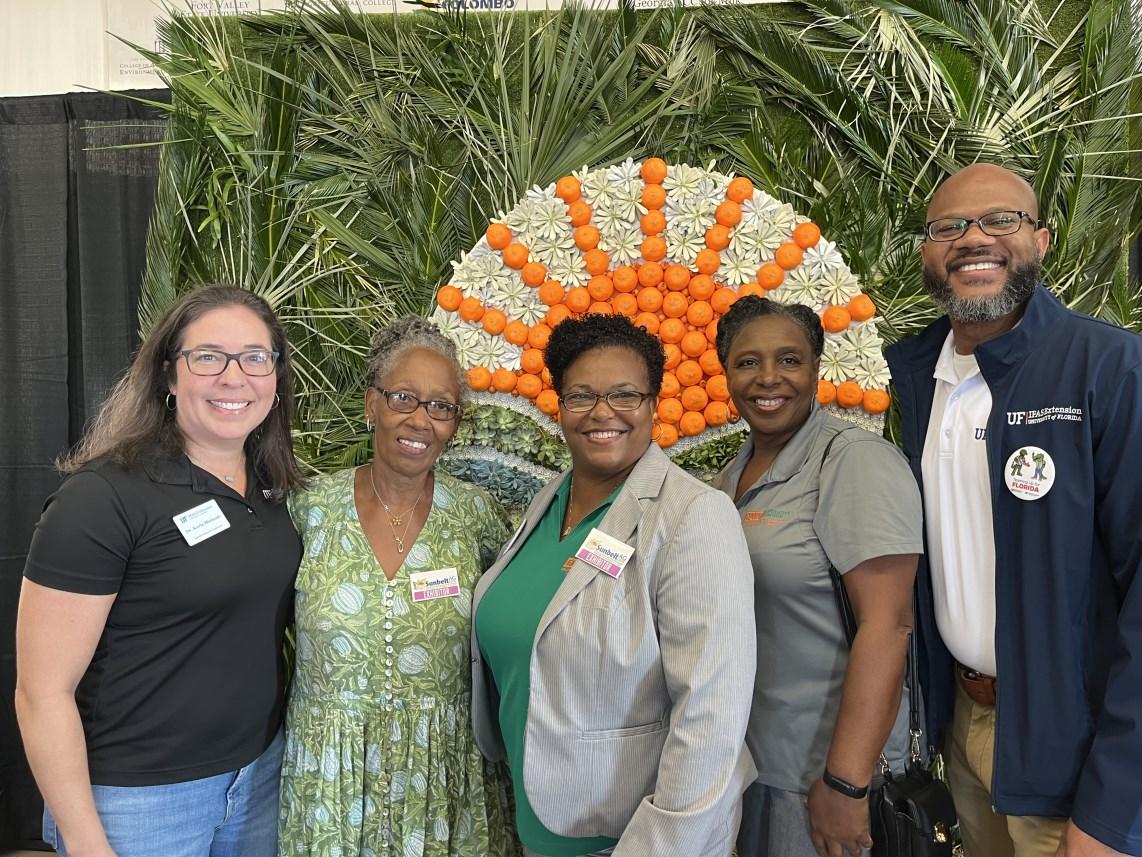
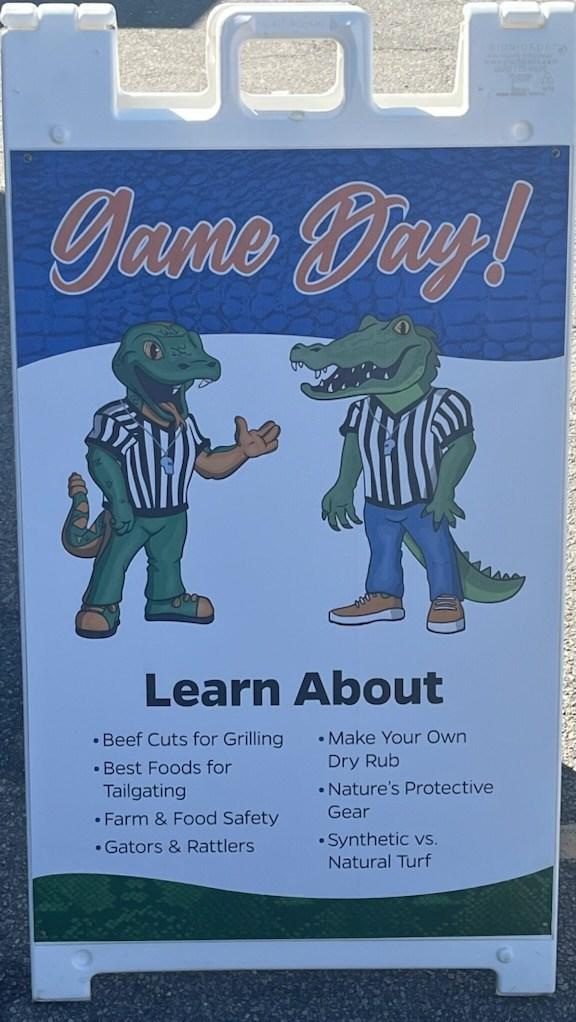
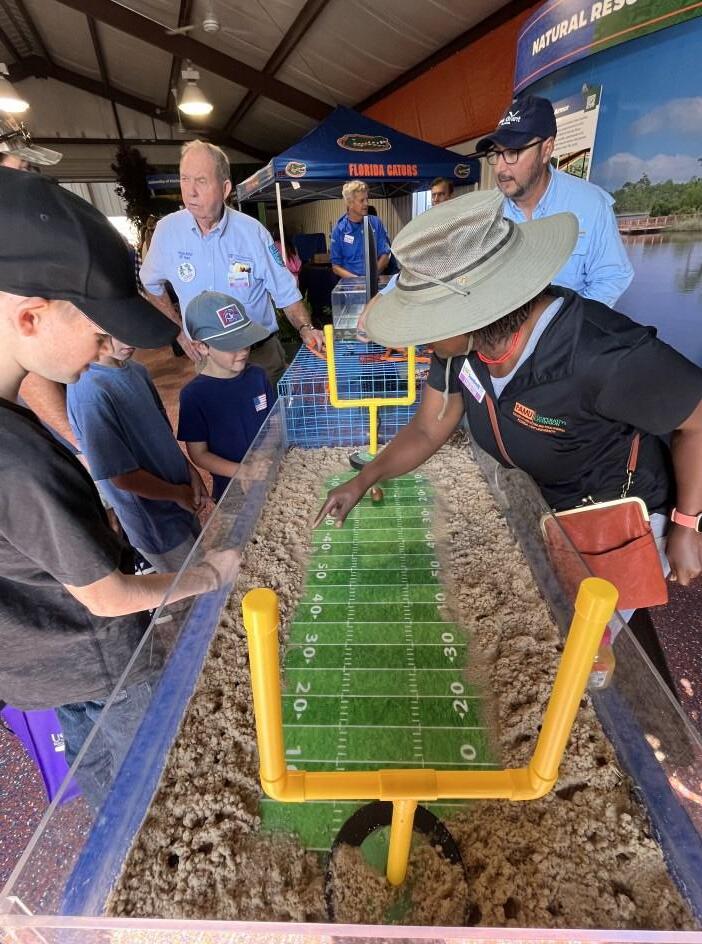
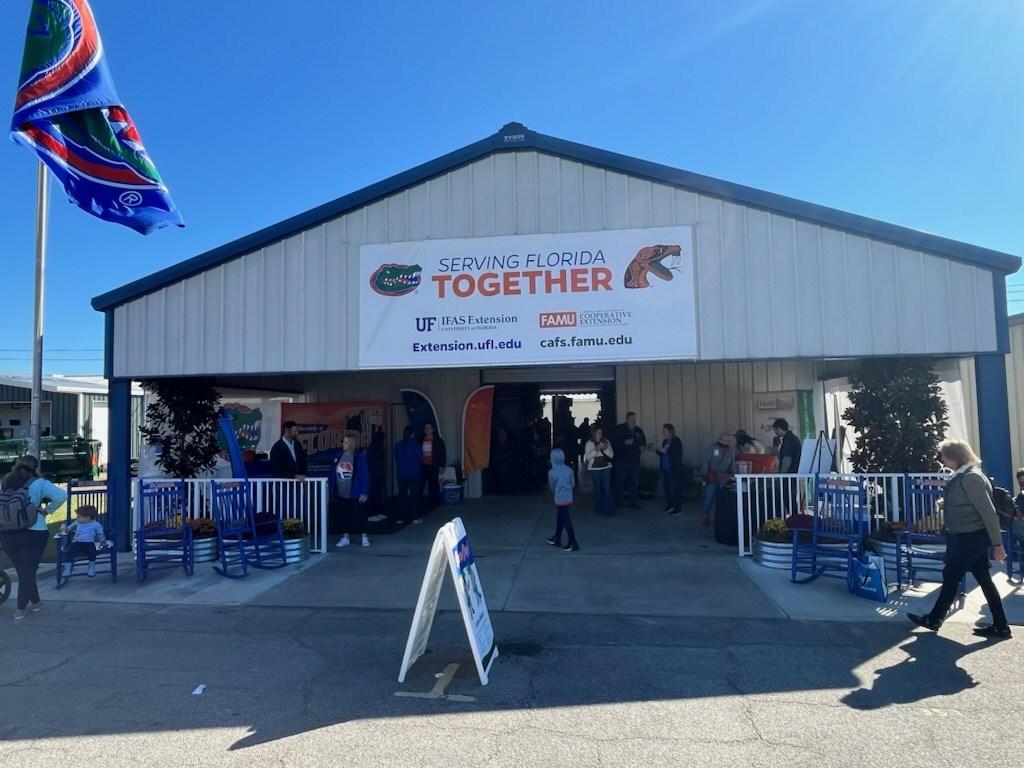

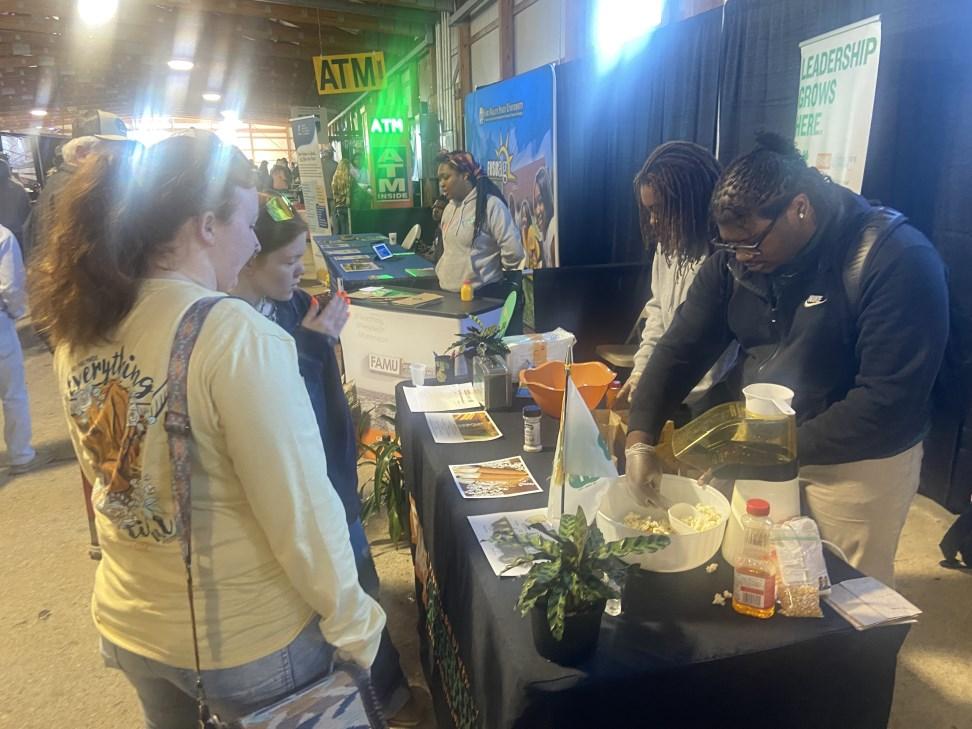
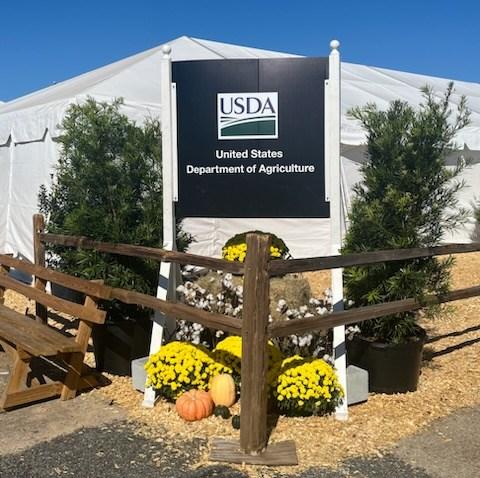
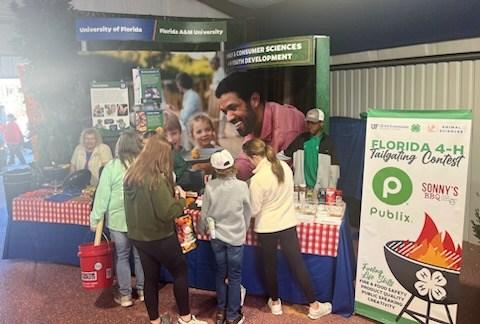
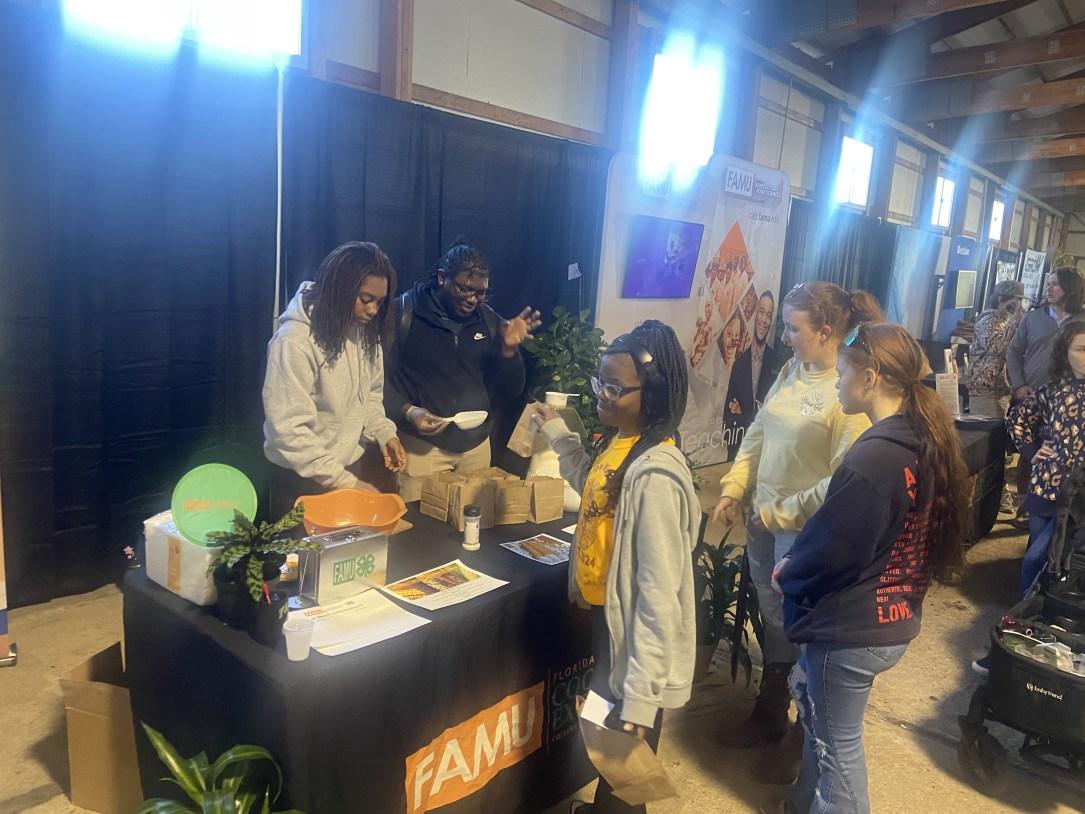
Top Row: Game Day details for the ‘Tailgate”; Linda Sapp (FAMU Ext) shows visiting attendees the hermit crabs; USDA –Georgia pop-up building.
Second Row: UF/IFAS and FAMU Extension Collaboration at the IFAS Expo Building .
Third Row: 4-H Youth Day: FAMU 4-H’ers activity: Why Does Popcorn Pop?

Congratulations to Vonda Richardson, FAMU Extension Director, on her appointment as Chair of the Extension Committee on Organization and Policy (ECOP) for the 2024-2025 term! In September, the gavel was passed to Mrs. Richardson during a special ceremony, where she succeeded Immediate Past Chair, Dr. Damona Doye of Oklahoma State University. Attendees included Bill Hoffman, ECOP Executive Director, and Dr. Albert Essel, AEA Executive Director.
ECOP serves as the leadership and governing body for the Cooperative Extension System, a national educational network operating through Land-grant Universities in partnership with federal, state, and local governments.
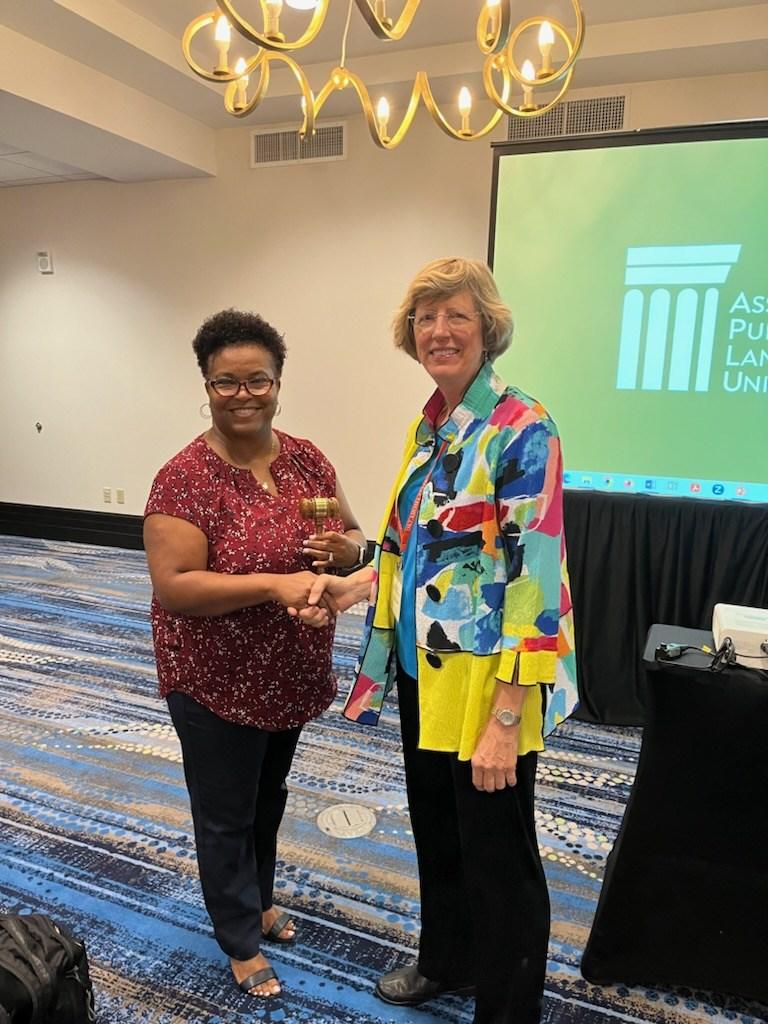
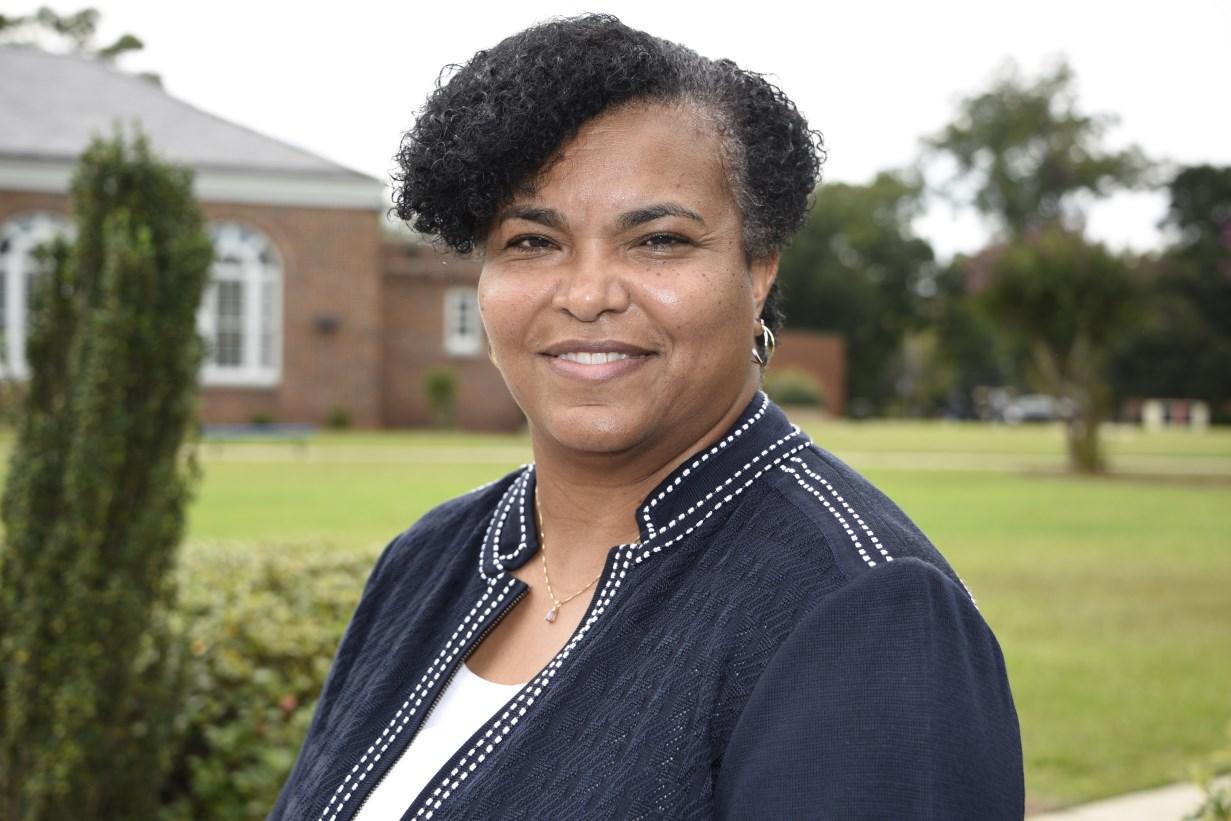




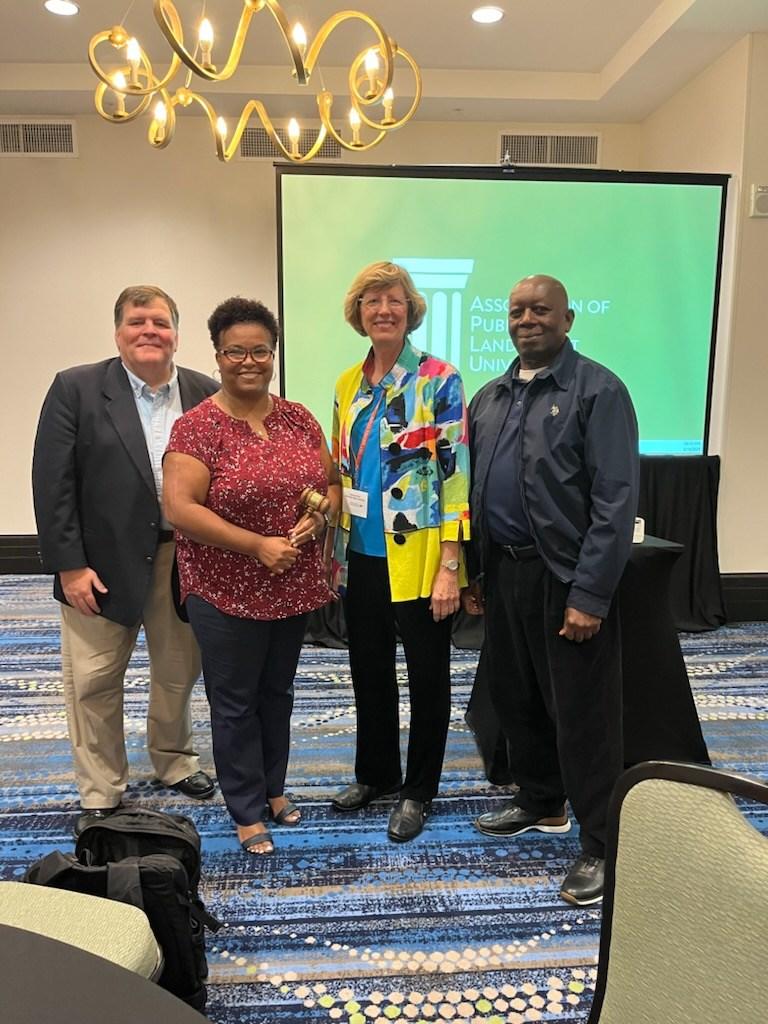
Congratulations to Dr. Dreamal Worthen, whom has been appointed and will serve as Chair for Family & Consumer Sciences Committee for the Southern Region Program Leaders Network (SR-PLN) for 2024-2025.
The mission of the SR-PLN is to foster and strengthen Extension educational programming throughout the southern region by promoting multistate cooperation, anticipating emerging program issues and needs, and implementing action processes to address them in a timely manner.
Congratulations to Kimberly Davis for being part of the award-winning team that received the Florida Association of Natural Resource Extension Professionals (FANREP) Outstanding Educational Materials Award for Book or Comprehensive Program Curriculum. The award recognized the team's work on the 4-H Community Action Projects for the Environment (CAPE).
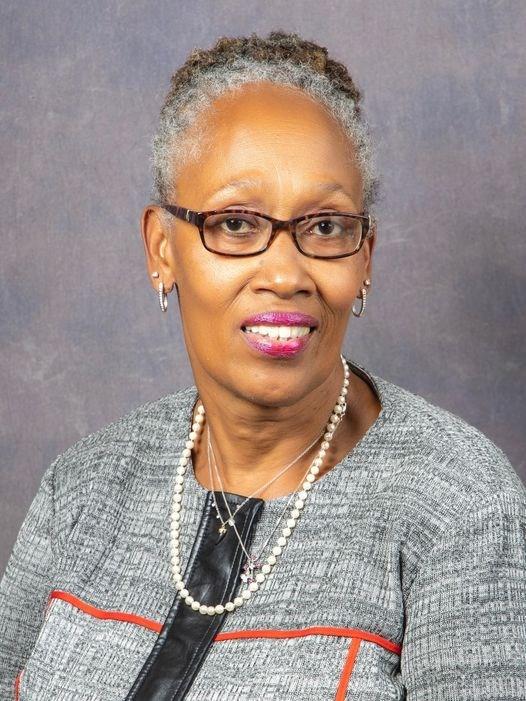

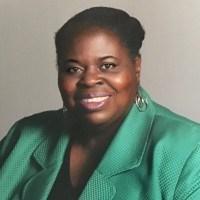
Congratulations to Dr. Sabrina Hayes for receiving the Florida Association of Extension 4-H Agents (FAE4-HA) Specialty Award for Excellence in Natural Resources/Environmental Education, along with two State Awards for Programs of Excellence for her work on the Junior Entomology Program and the Tomato Record Book!
Congratulations to Conchita Newman and Omolola Betiku, Ph.D., who were part of the award-winning team that received the Florida Association of Extension 4-H Agents (FAE4-HA) Specialty Award for Excellence in Workforce Development Programming!
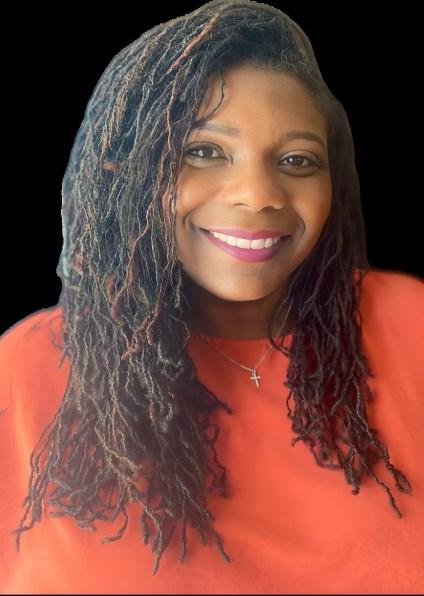

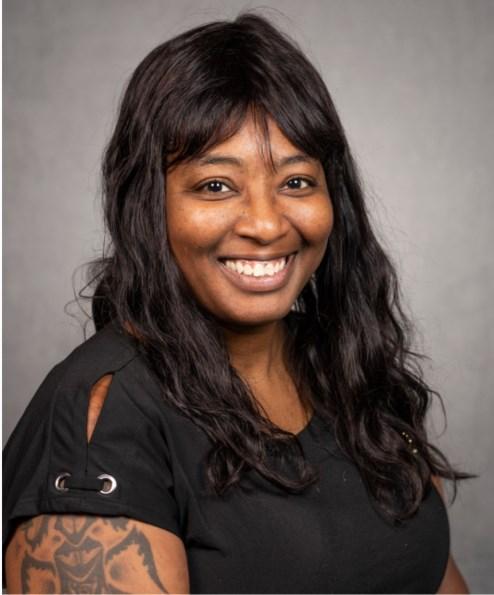


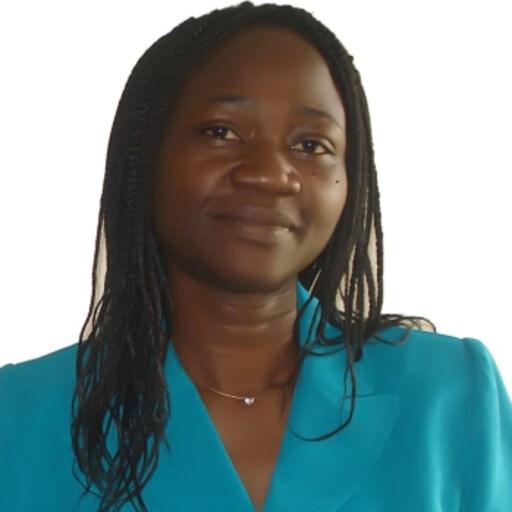



AgDiscovery is a summer outreach program sponsored by the U.S.DepartmentofAgriculture(USDA)designedtointroducehigh school students to careers in agriculture, animal science, plant science,agribusiness,biotechnology,andrelatedfields.
The program offers participants hands-on experience through workshops, field trips, and exposure to real-world agricultural researchandpractices. Our attendeeswereabletovisitUF/IFAS sites,alongwithlocalveterinaryoffices.
Hosted by various universities across the U.S., including FAMU, AgDiscovery aims to educate and inspire the next generation of agricultural professionals, focusing on the importance of agricultureinaddressingglobalchallengeslikefoodsecurityand sustainability.
AspecialthankstoDr.CarmenLyttle-N'Guessan,Dr.GlenWright and their colleagues, along with the program counselors, for haring photos and documenting another successful summer program.Yourdedicationandeffortsaregreatlyappreciated!
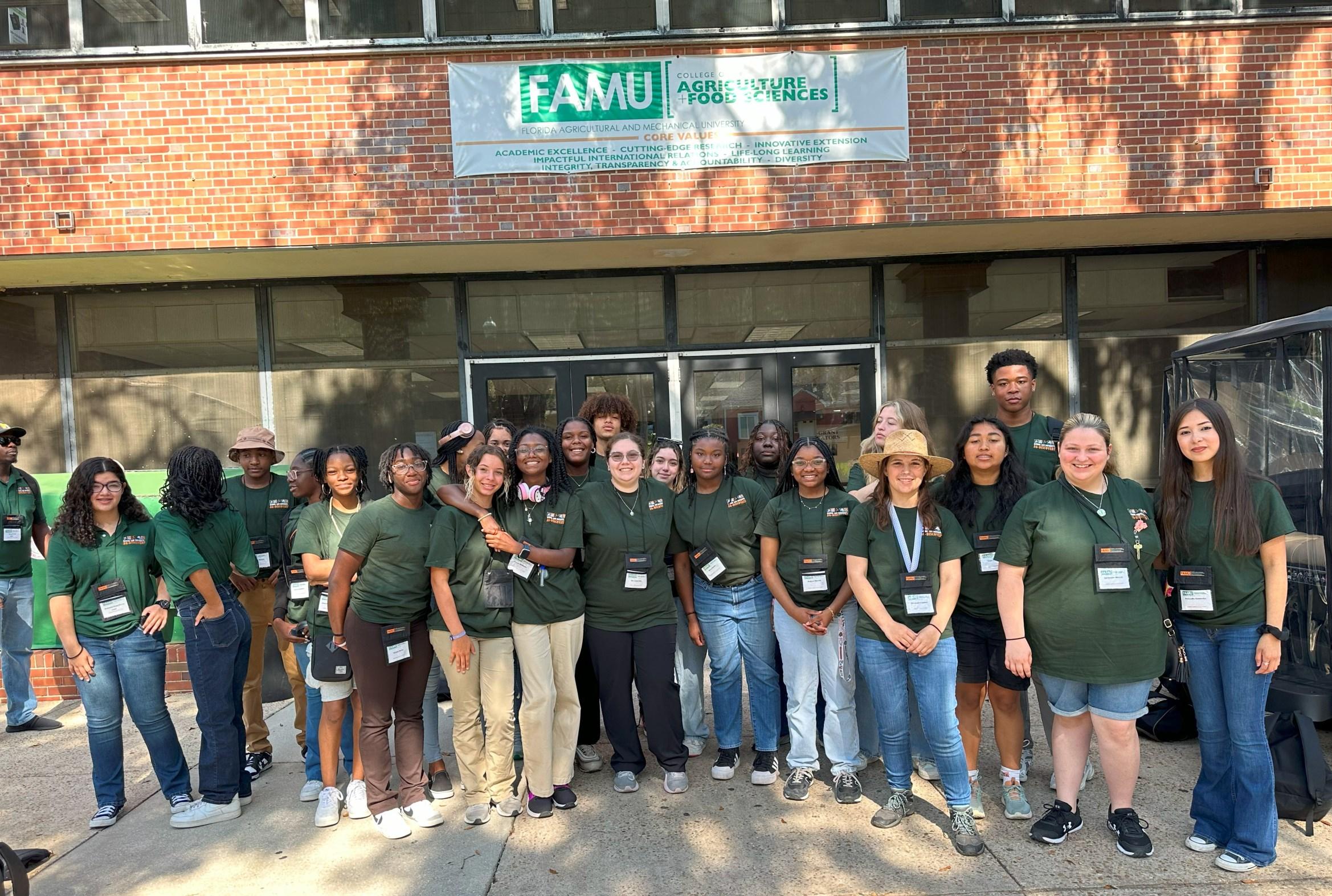
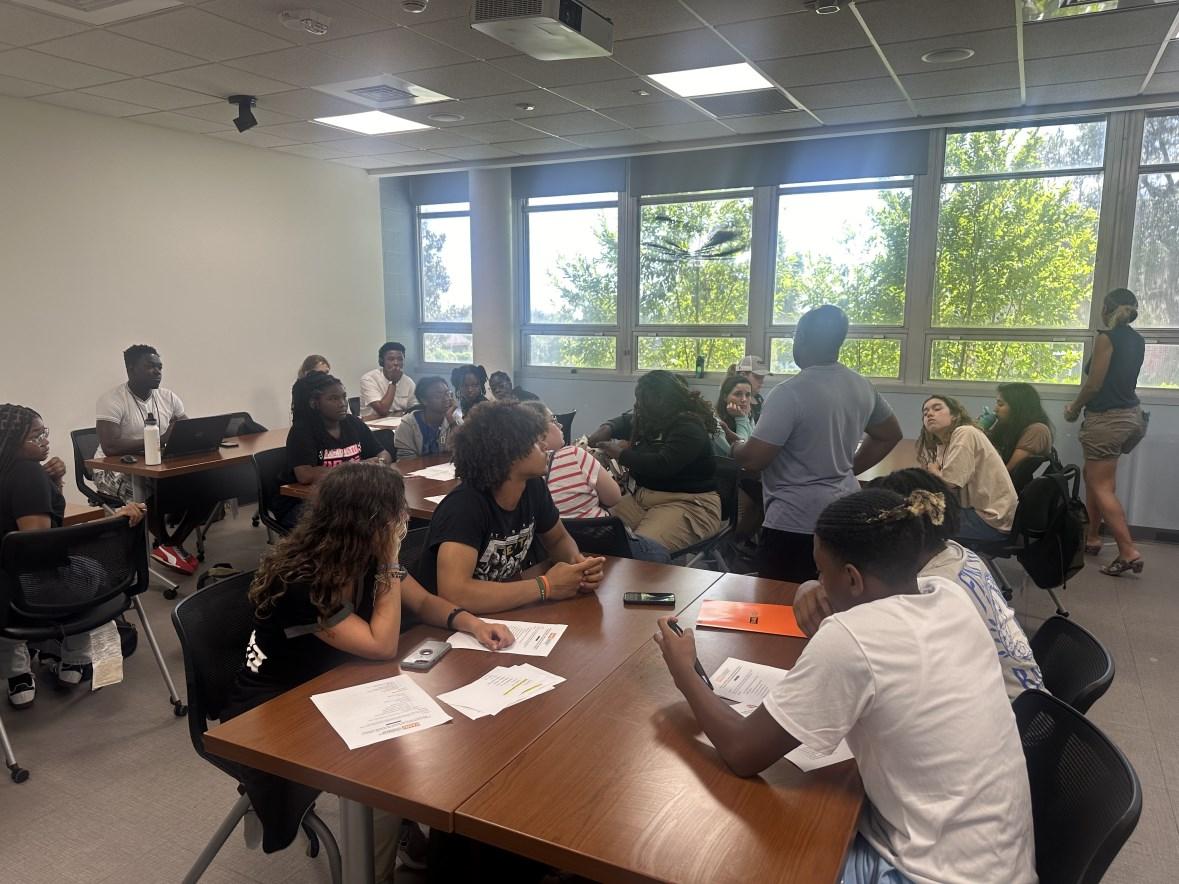
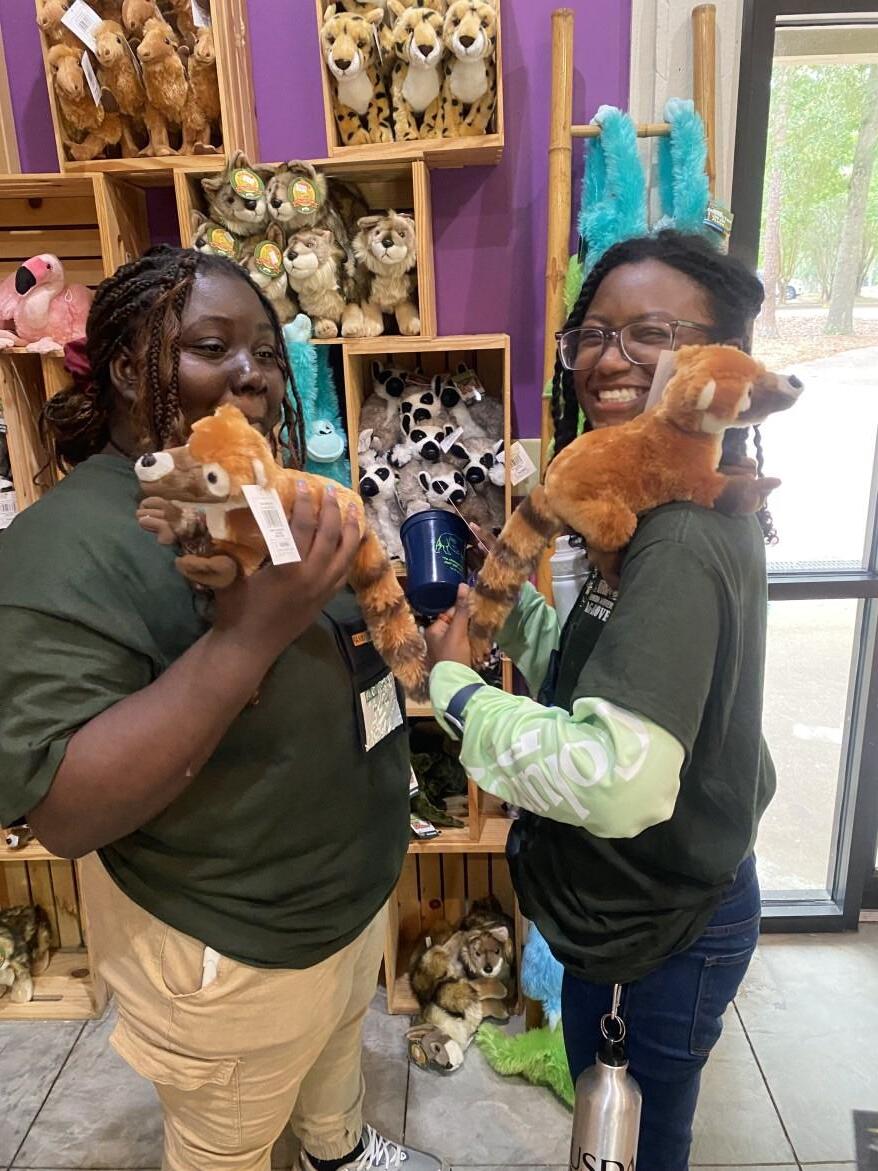
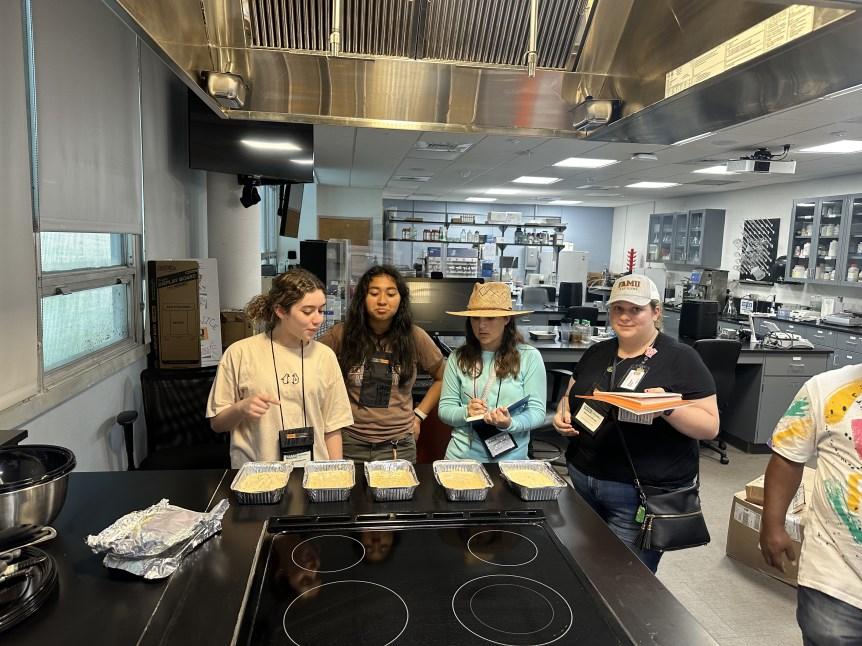
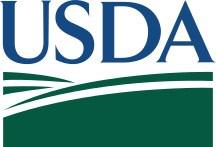
U.S. DEPARTMENT OF AGRICULTURE
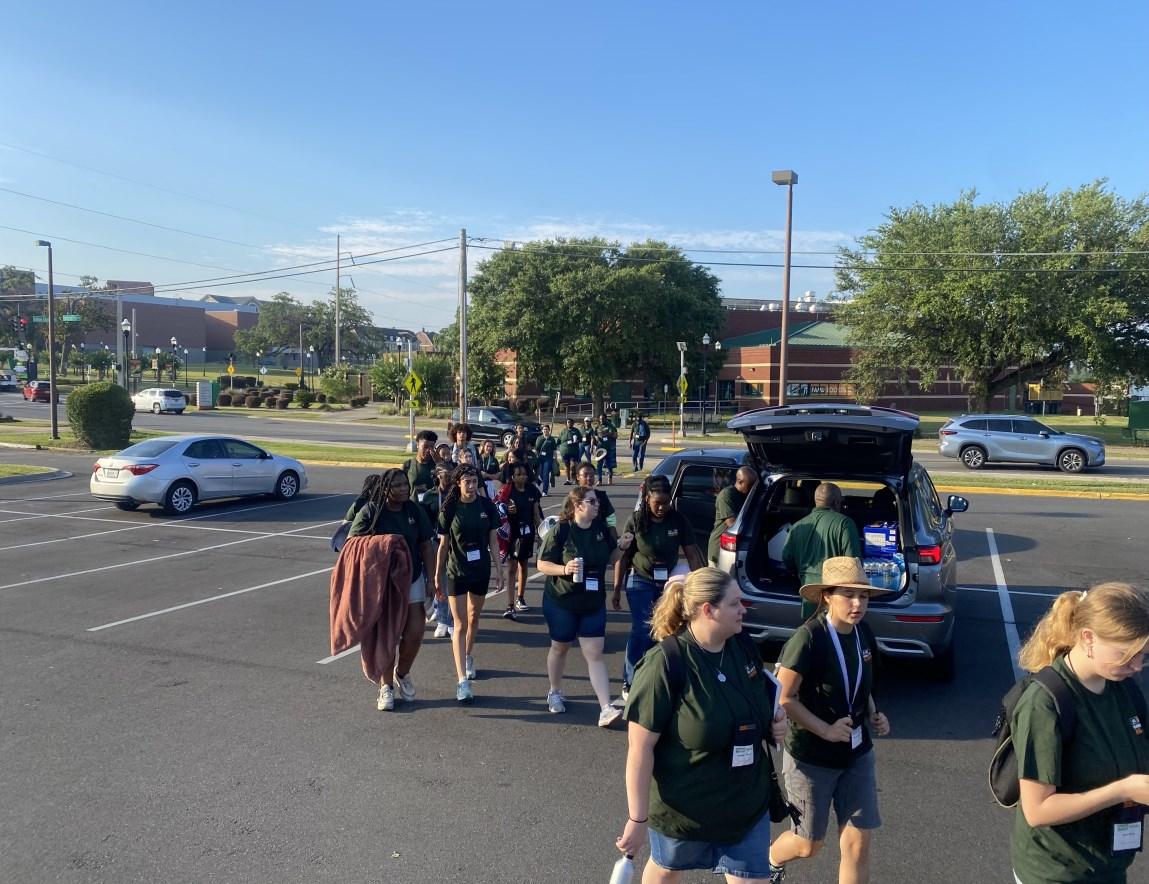
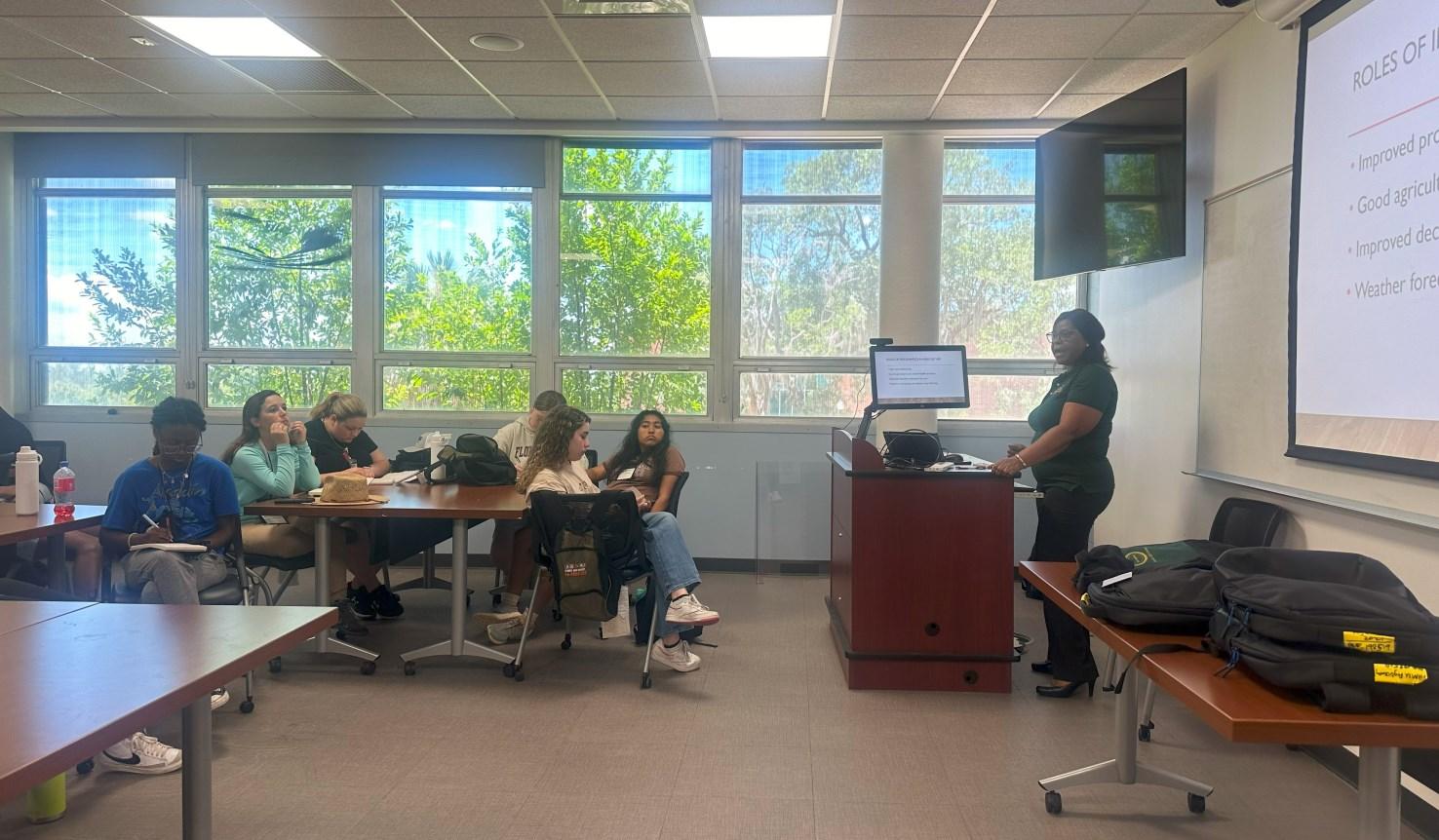
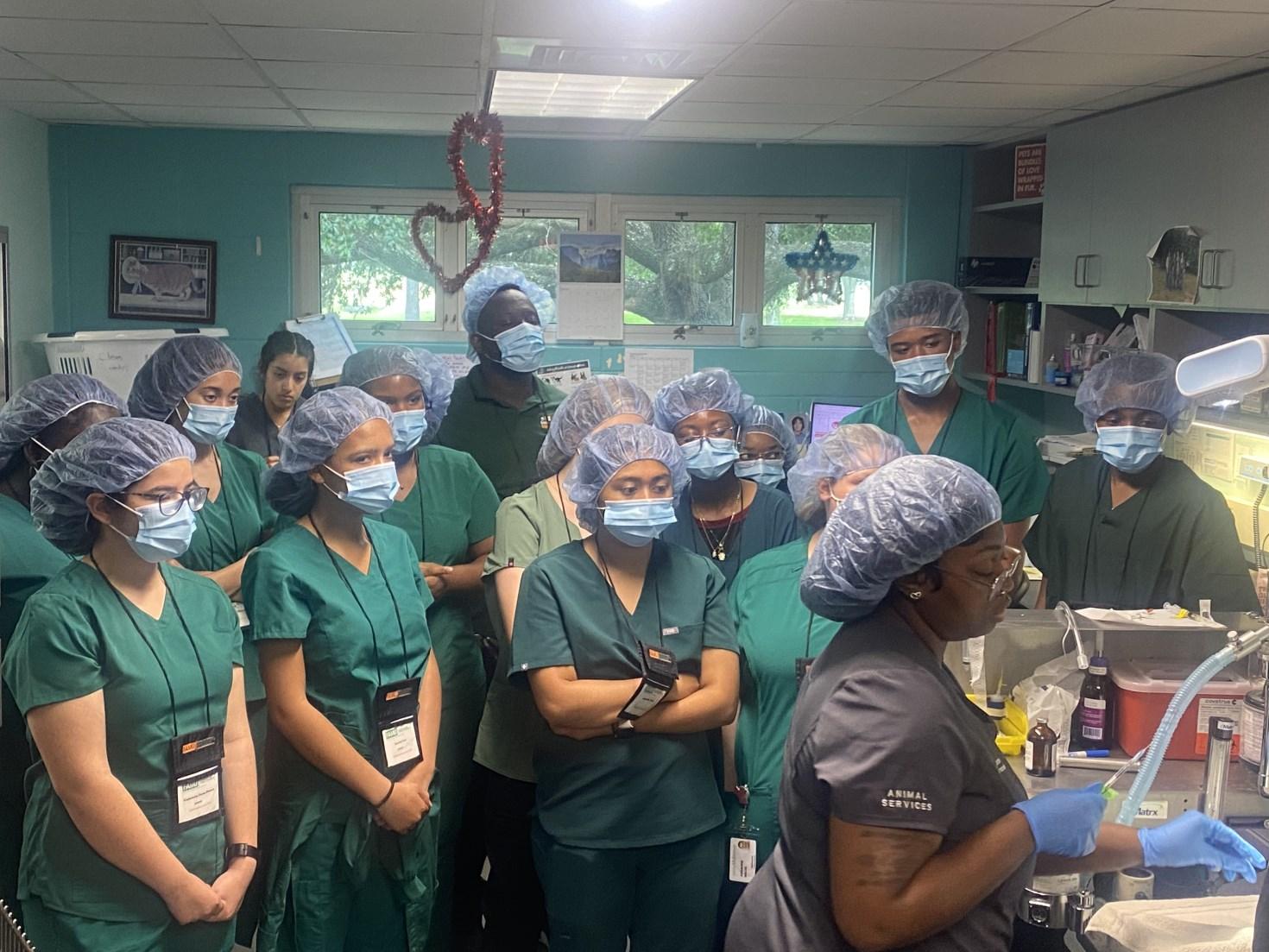
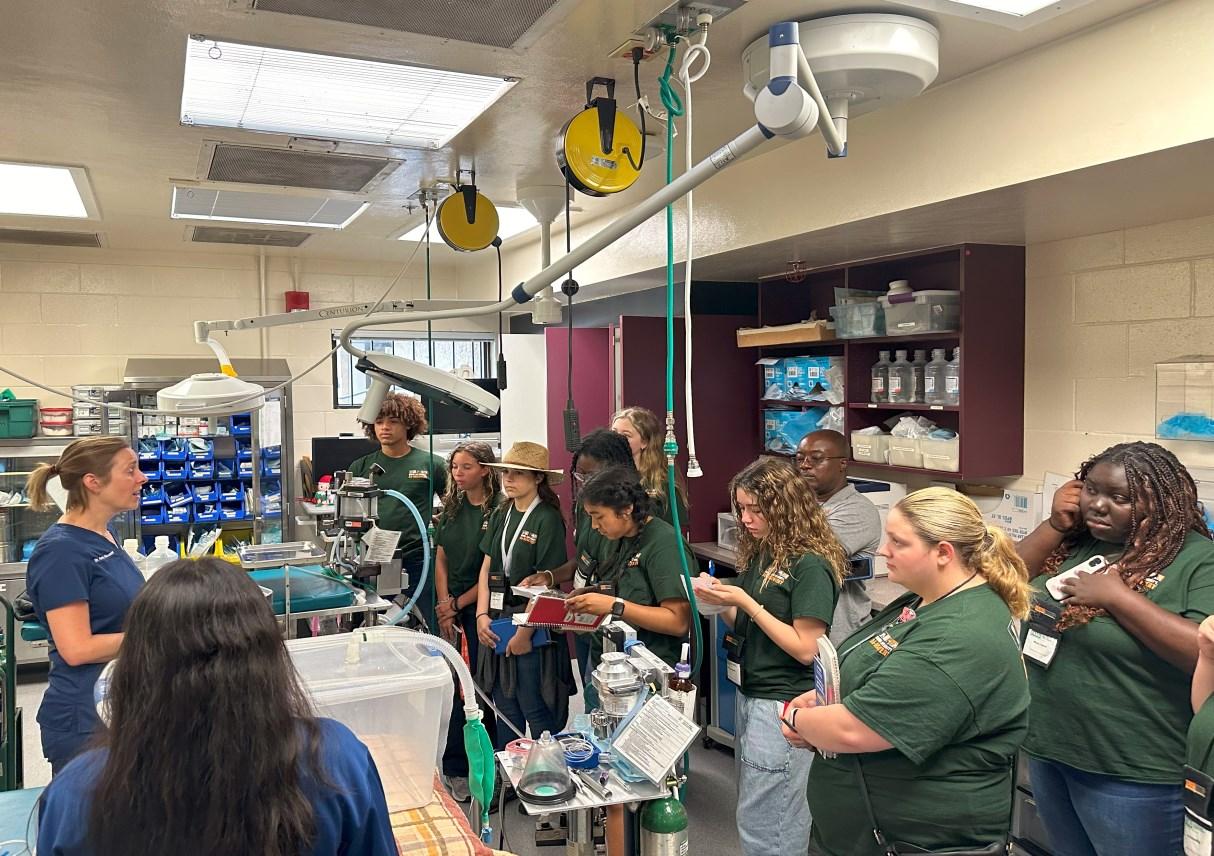
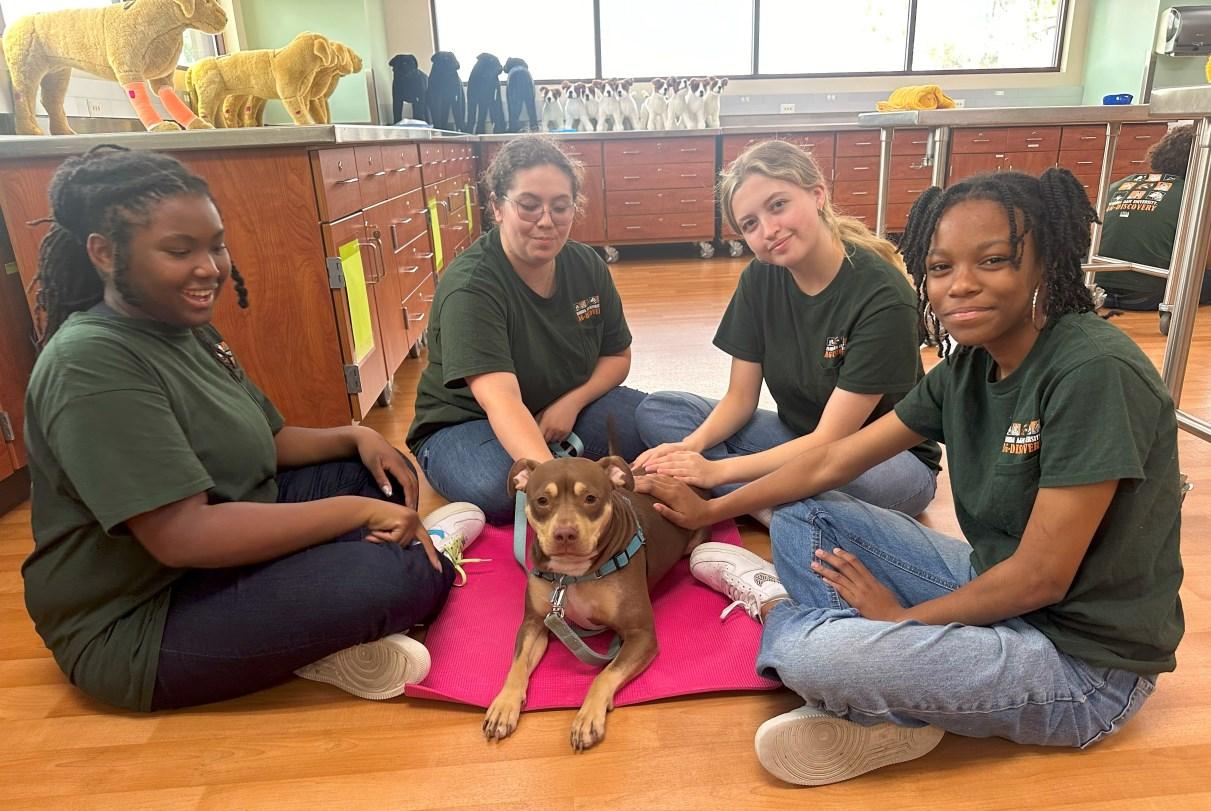
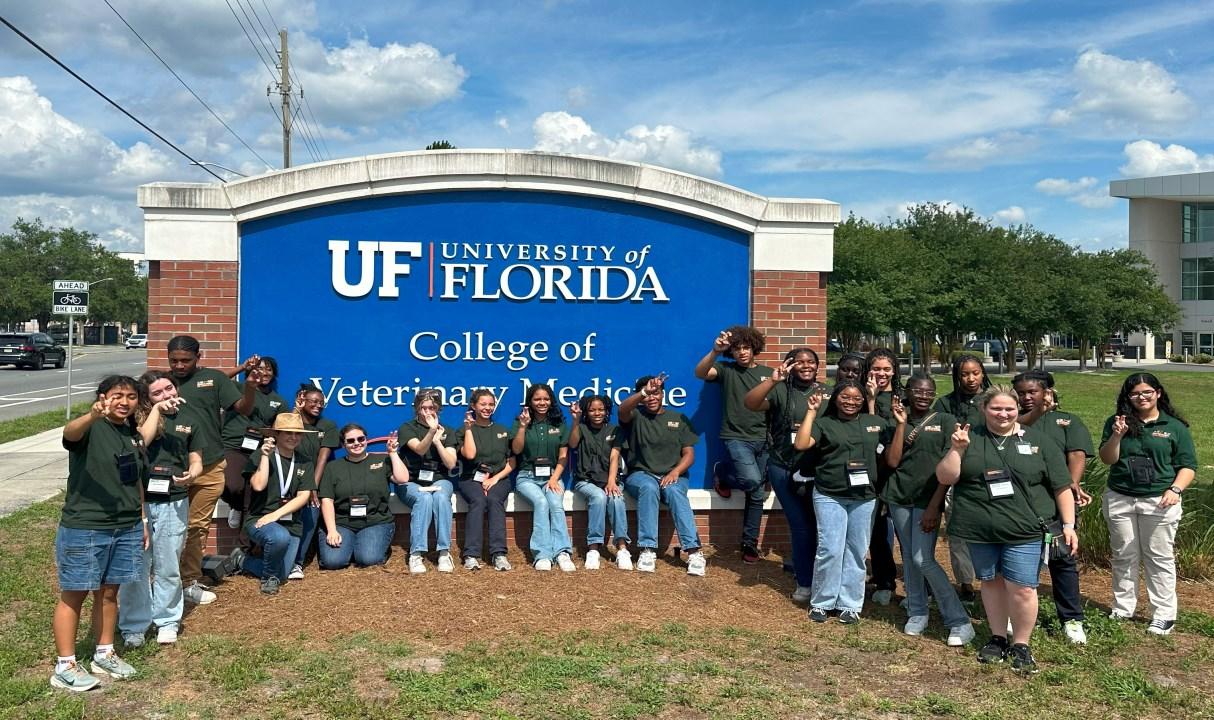
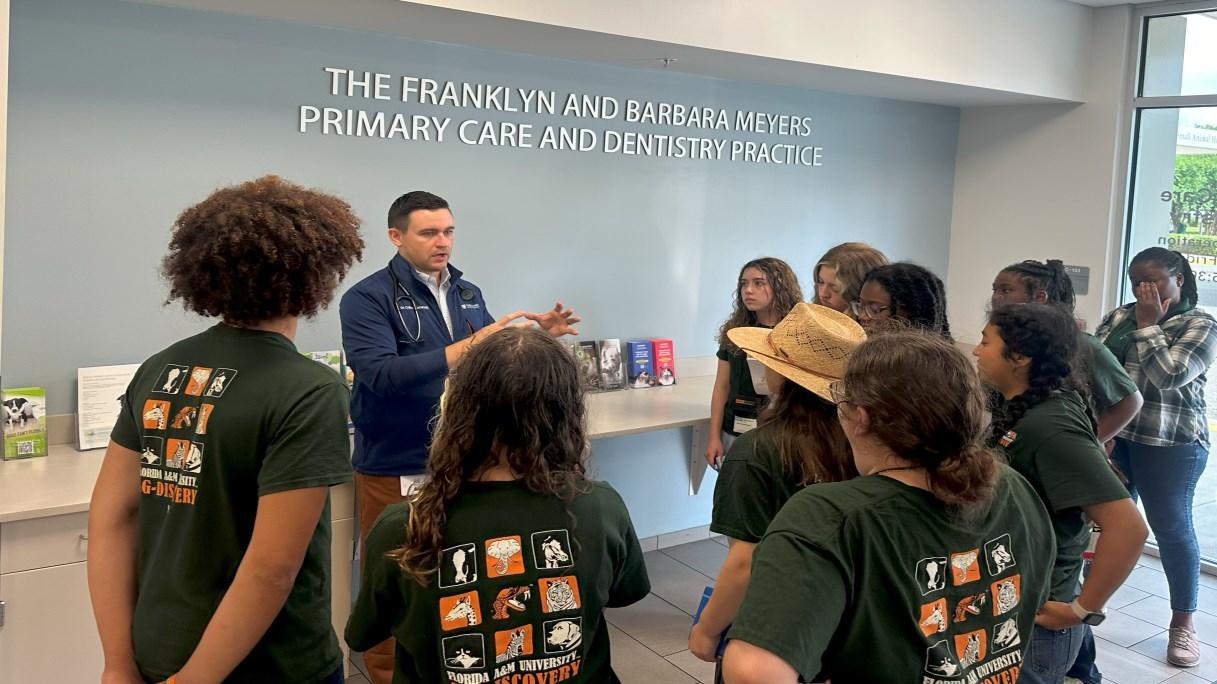
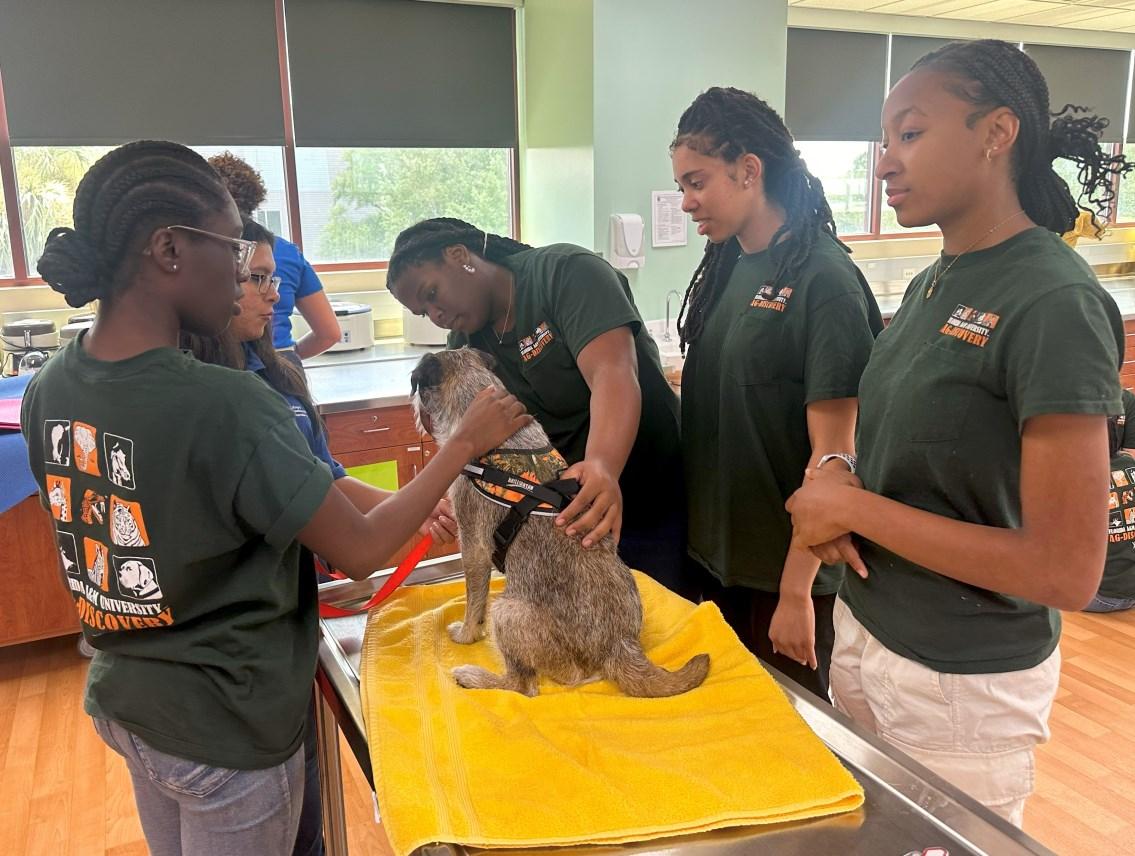
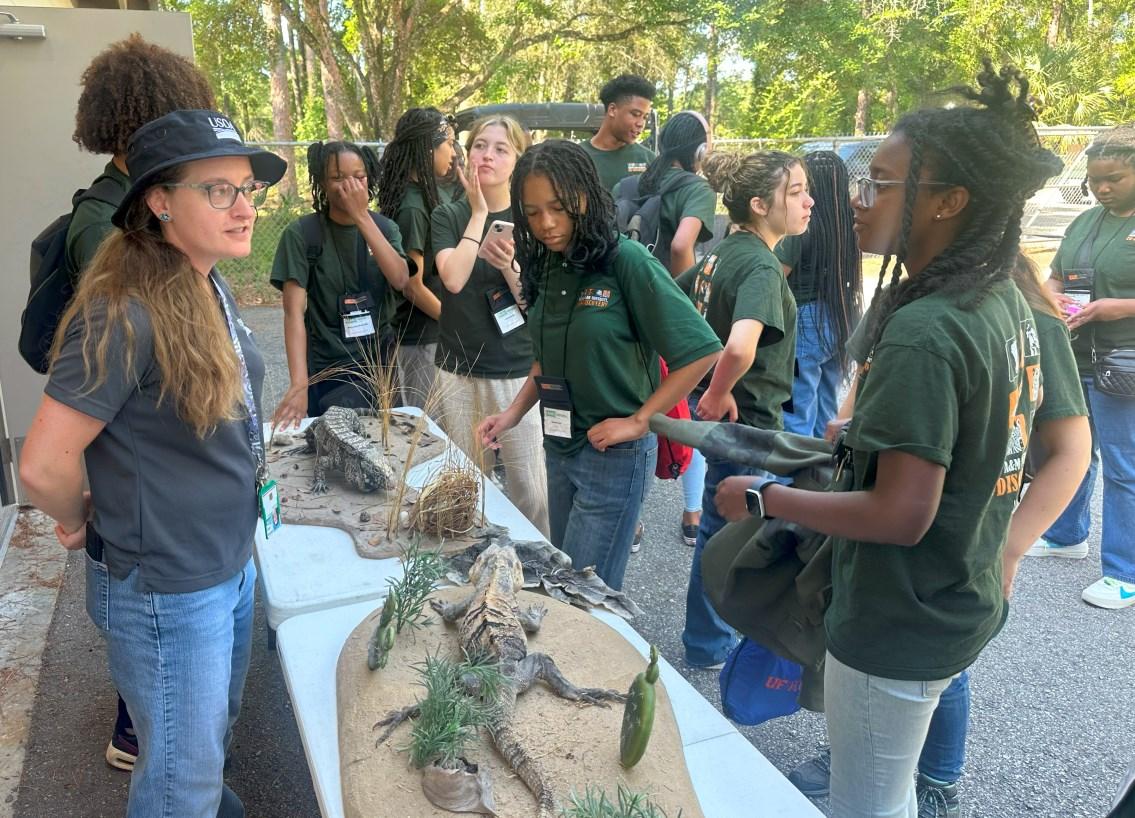
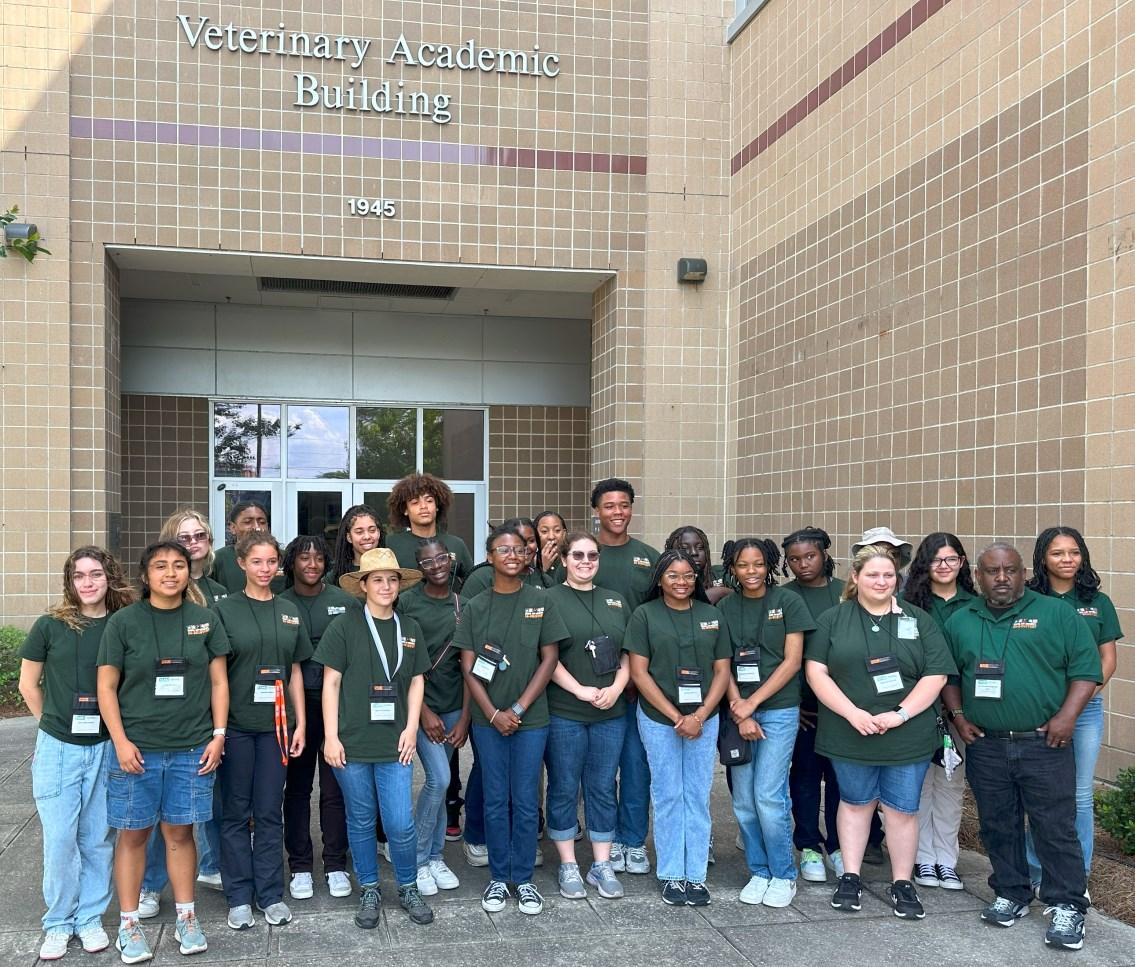

Contributor: Conchita Newman.
The Food Science Summer Enrichment Program (FSSEP), an intensive week-long program, is designed to deepen students' understanding of science through hands-on, experiential activities in food science, all aligned with Florida Standards. The program incorporates STEM-based activities that explore key aspects of food science, including the nature of foods, food deterioration, principles of production and processing, and techniques to enhance food quality for consumers.
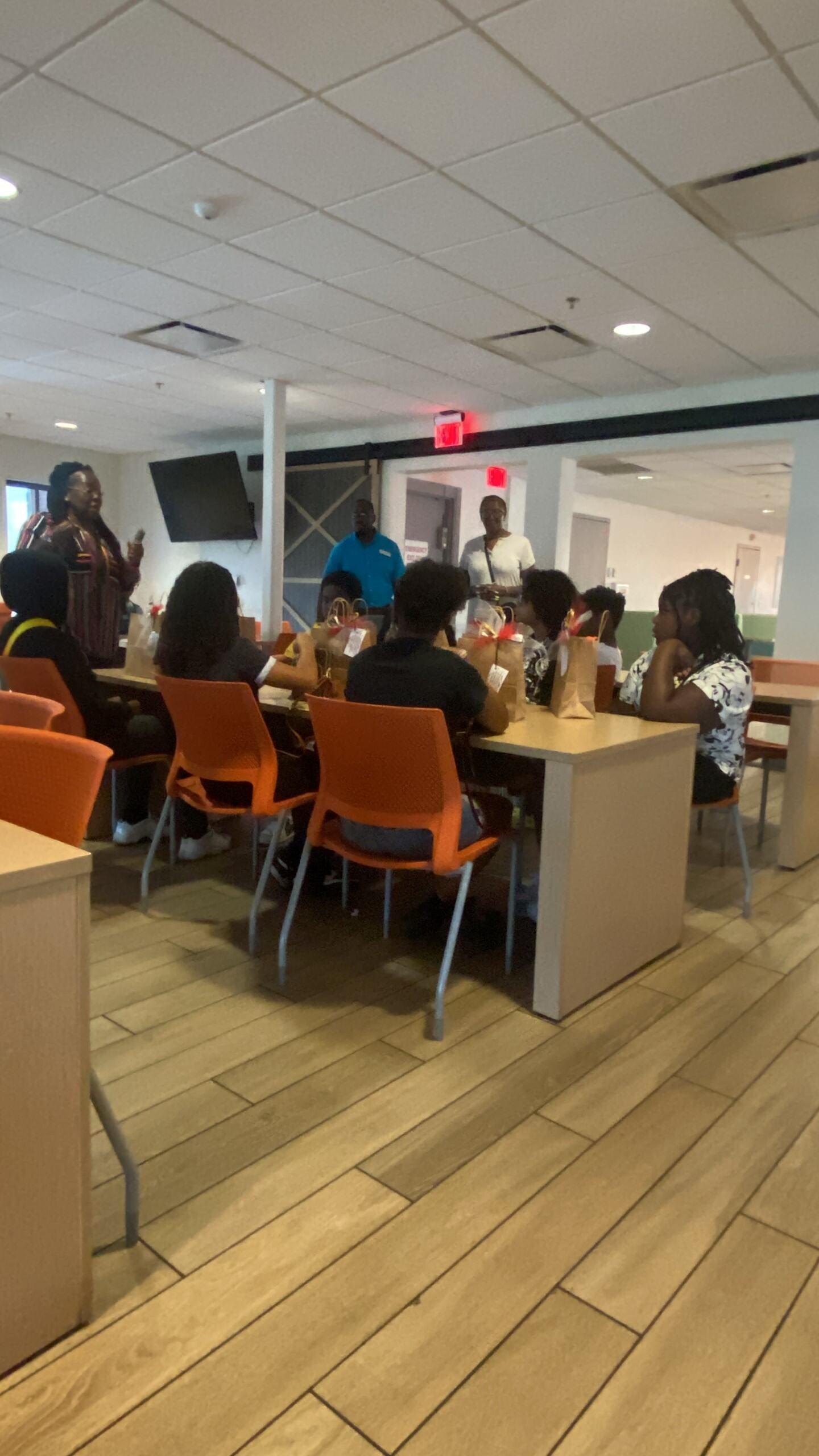
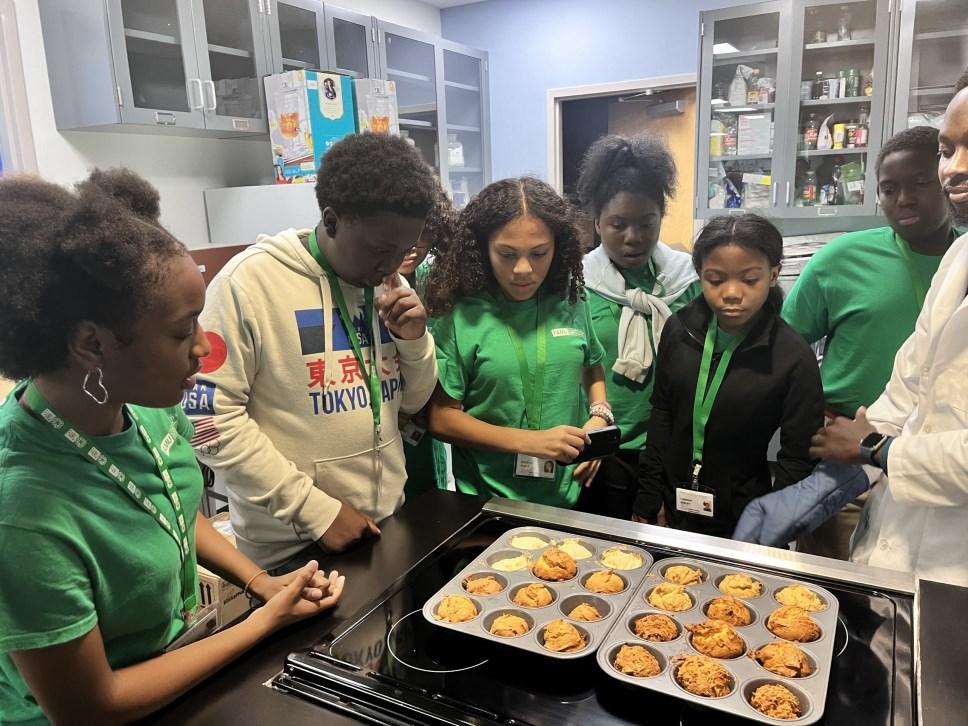
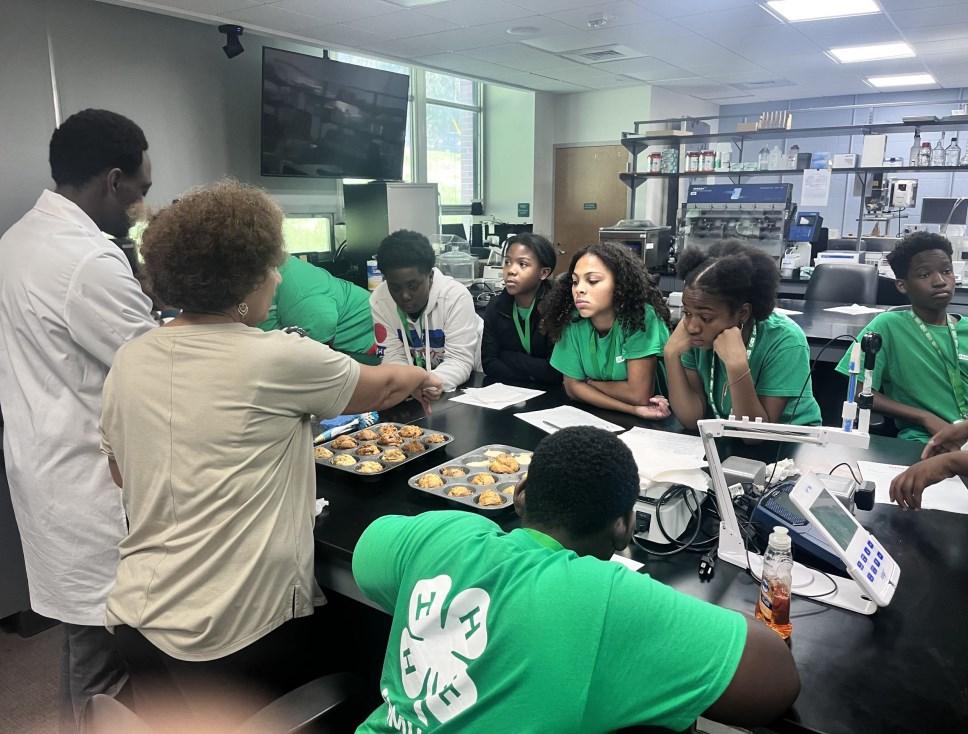
The 2024 FSSEP took place from June 10th to 13th, running daily from 8:30 a.m. to 5:00 p.m., providing students with an immersive experience in various areas of the food science industry. Throughout the program, students participated in a variety of activities aimed at meeting key learning objectives. They were introduced to food science career opportunities by interacting with industry professionals from government, academia, and private sectors while honing their research presentation skills. Hands-on lab experiments helped students become familiar with lab equipment and scientific methods, while they were also encouraged to critically evaluate scientific claims, consider alternative explanations, and understand how scientific inferences are drawn from observations.
The FSSEP emphasized real-world applications of food science, starting with an introduction to the field, a tour of Metz focused on food safety and an exploration of the relationship between forestry and food. Field trips, such as the visit to Flowers Bakery in Thomasville, GA, gave students insight into the research and development side of the bakery industry, with activities like the "Missing Ingredient" lab fostering critical thinking and problemsolving skills.
Students also visited the Viticulture Center to learn about grape cultivation and participated in a lab where they created grape soda, followed by a sensory evaluation, which highlighted the importance of sensory science in product development. The program concluded with a tour of Publix Grocery Store, where students explored flavor creation and package design, culminating in a potato chip judging competition. The final day also included presentations, post-evaluations, and certificate distribution.
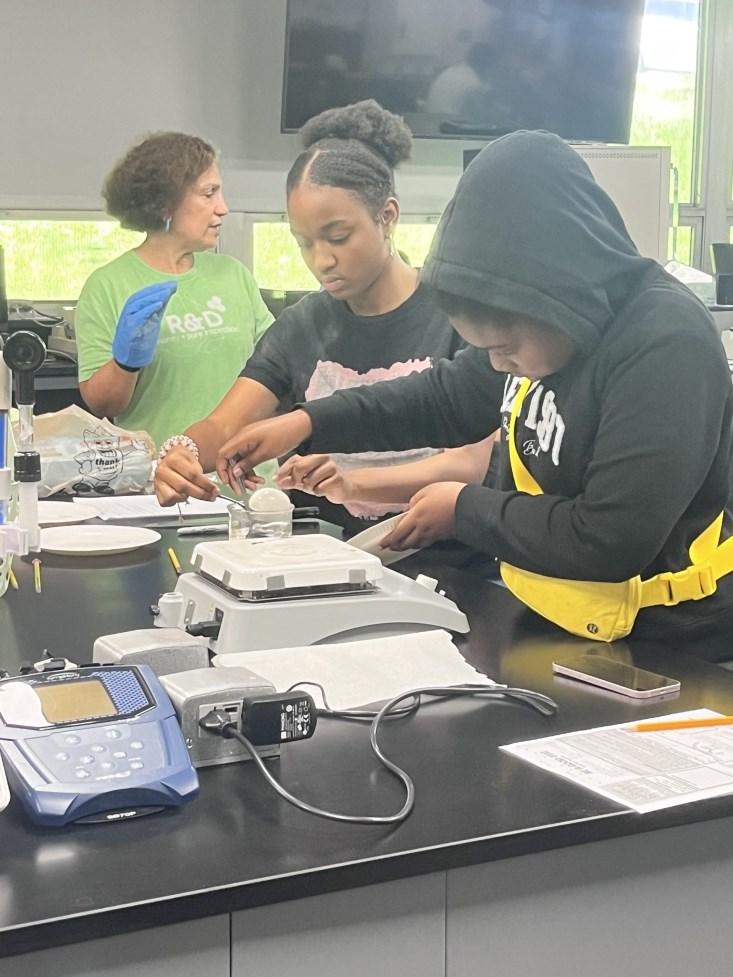
The hands-on activities were particularly valuable in reinforcing theoretical knowledge with practical experience and fostering creativity, teamwork, and critical thinking. By the end of the program, students gained a solid foundation in food science, equipped with both theoretical understanding and practical skills essential for pursuing future careers in this dynamic field.
For more information of the FSSEP, contact Mrs. Conchita Newman at Conchita.newman@famu.edu.
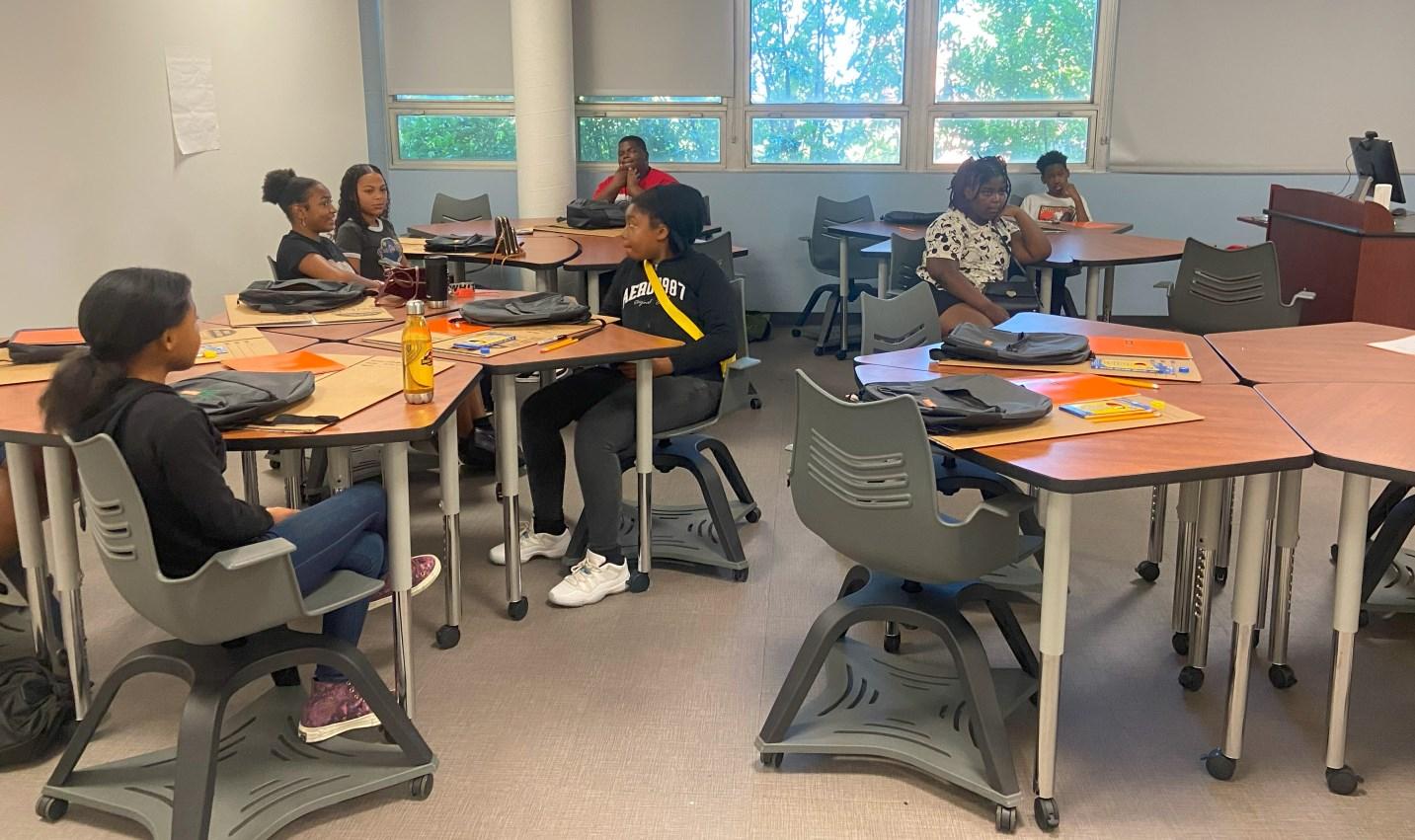
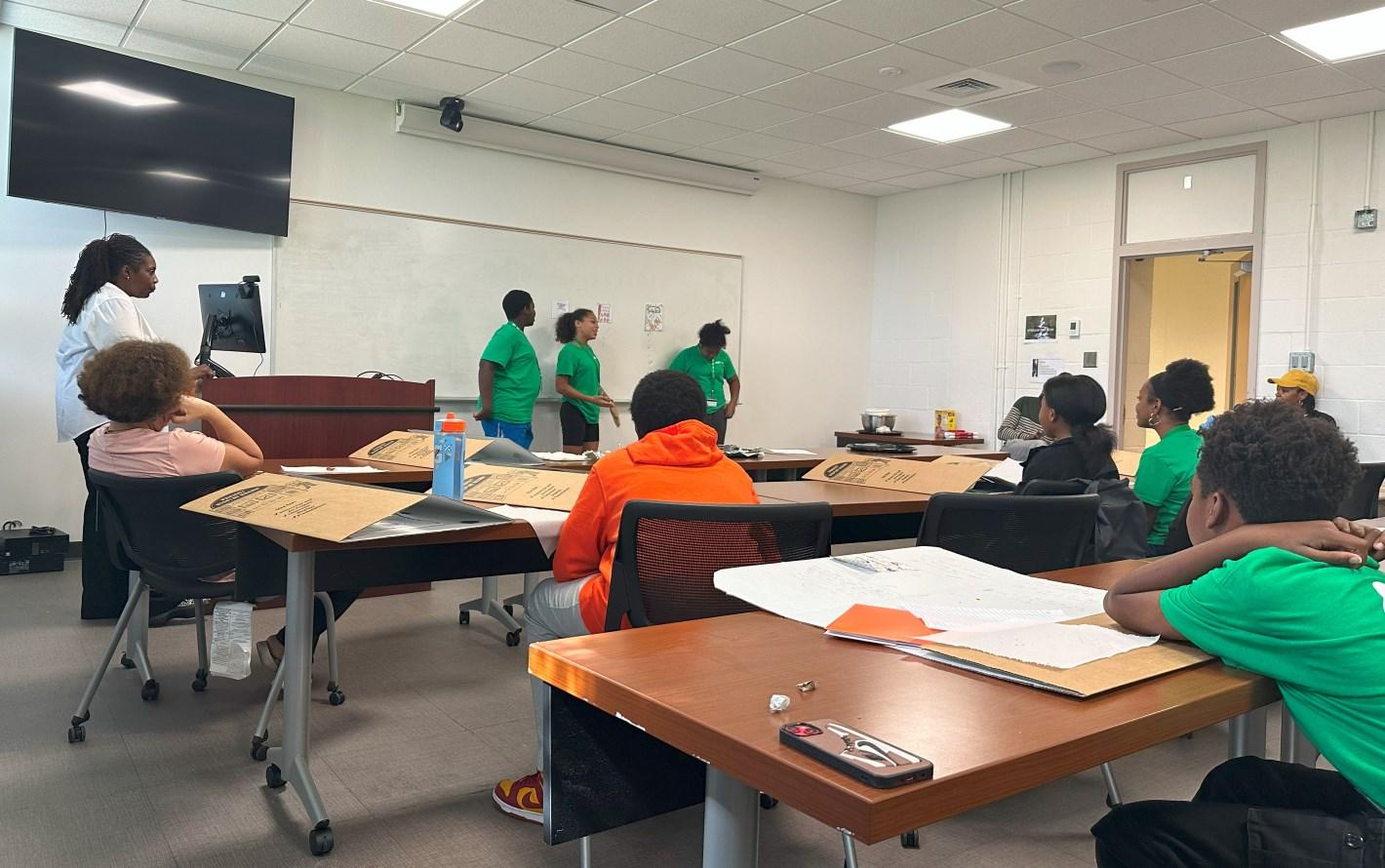
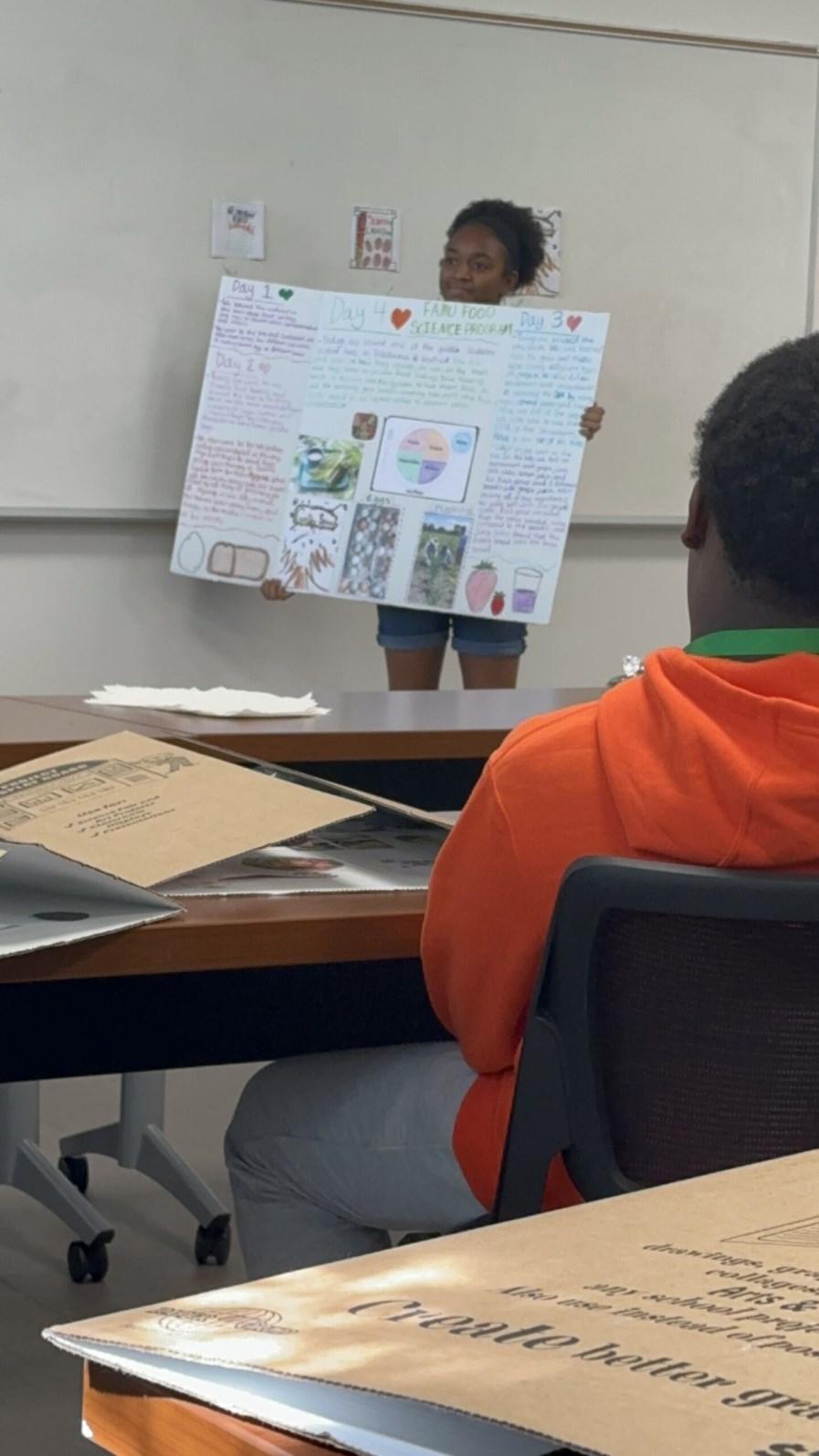



Contributor: Terrance Cole
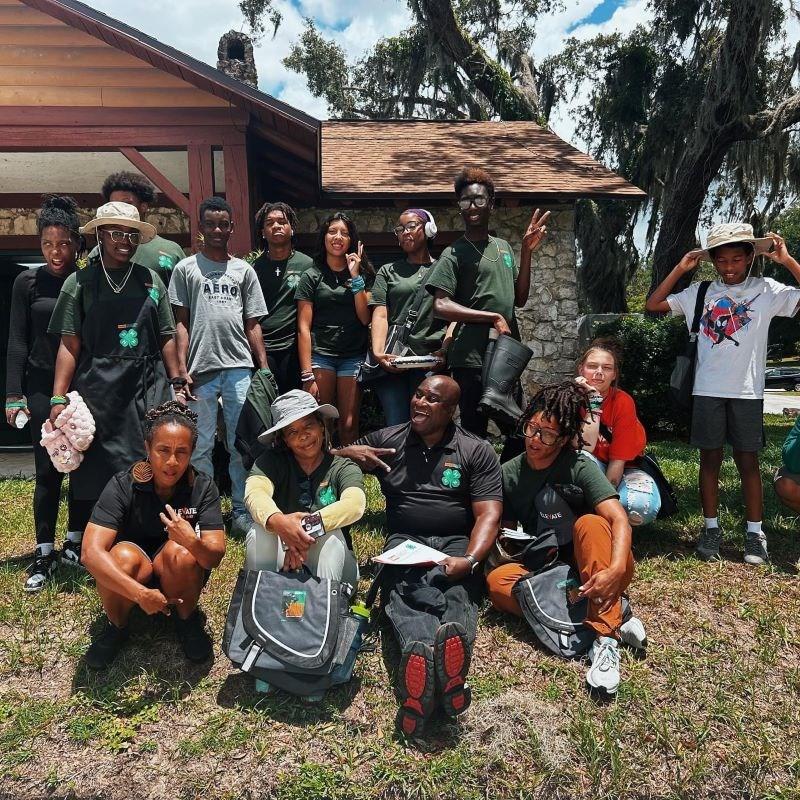
The Brooksville FAMU 4-H Inside/Outside Summer Workshops provided urban youth with hands-on learning experiences in agriculture and wildlife May 30 through June 21. Mr. Terrence Cole, 4-H Program Assistant for FAMU Cooperative Extension, conducted the Thursday workshops at the Brooksville Agricultural & Environmental Research Station (BAERS). The workshops successfully concluded with 46 students, 12 volunteers, and participation from two nonprofit organizations, Elevate Tampa Bay and The Skills Center of Tampa Bay.
In the Tools Workshop on May 30, students learned about various tools, their uses, and safety protocols, fostering practical skills for everyday tasks. The students learned about the Lawn Maintenance Tools session on June 6 by learning maintenance tools and techniques, promoting responsibility and care for their surroundings. In the Cooking Tools Workshop on June 13, students explored different cooking tools and their uses, enhancing their culinary skills and understanding of kitchen safety.
The last workshop on June 21, My Tree and Me, focused on personal growth and environmental stewardship, encouraging students to connect with nature and reflect on their development. The 4-H approach of learning-by-doing significantly impacted the students, allowing them to actively engage in activities to enhance their understanding and retention of the skills taught. The workshops profoundly impacted urban students, many of whom had never been exposed to agricultural and wildlife environments.

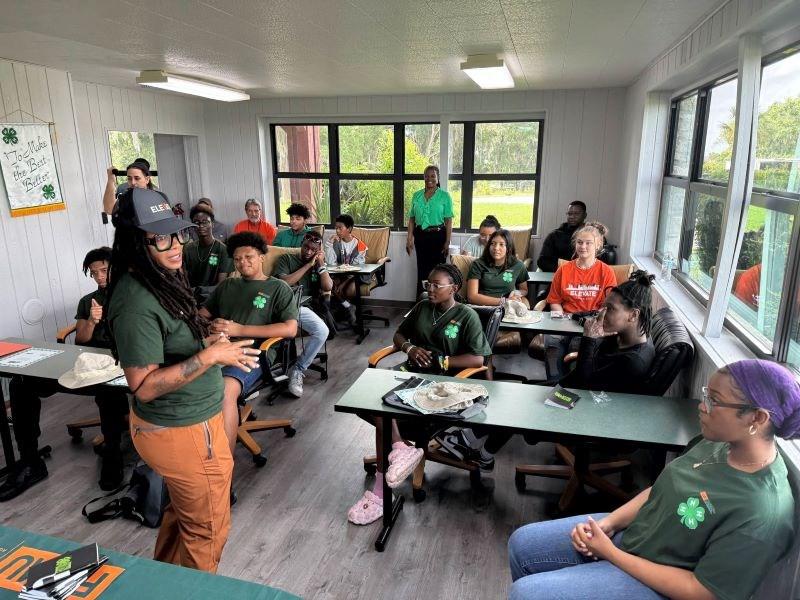
The workshops also fostered a sense of achievement and self-confidence, as students could see the tangible results of their efforts. Students left the workshops with newfound knowledge and skills and a deeper appreciation for agriculture and the environment. They gained practical experience that can be applied in their daily lives, and the hands-on nature of the workshops helped solidify their learning.
Volunteers and nonprofit organizations also noted the positive impact of the workshops, highlighting the importance of the impact and accessibility of these programs, continuing to enrich the lives of students through hands-on education in agriculture and wildlife.
Article and photos originally published in the Extension Comings and Goings newsletter-August 2024, published by UF/IFAS .

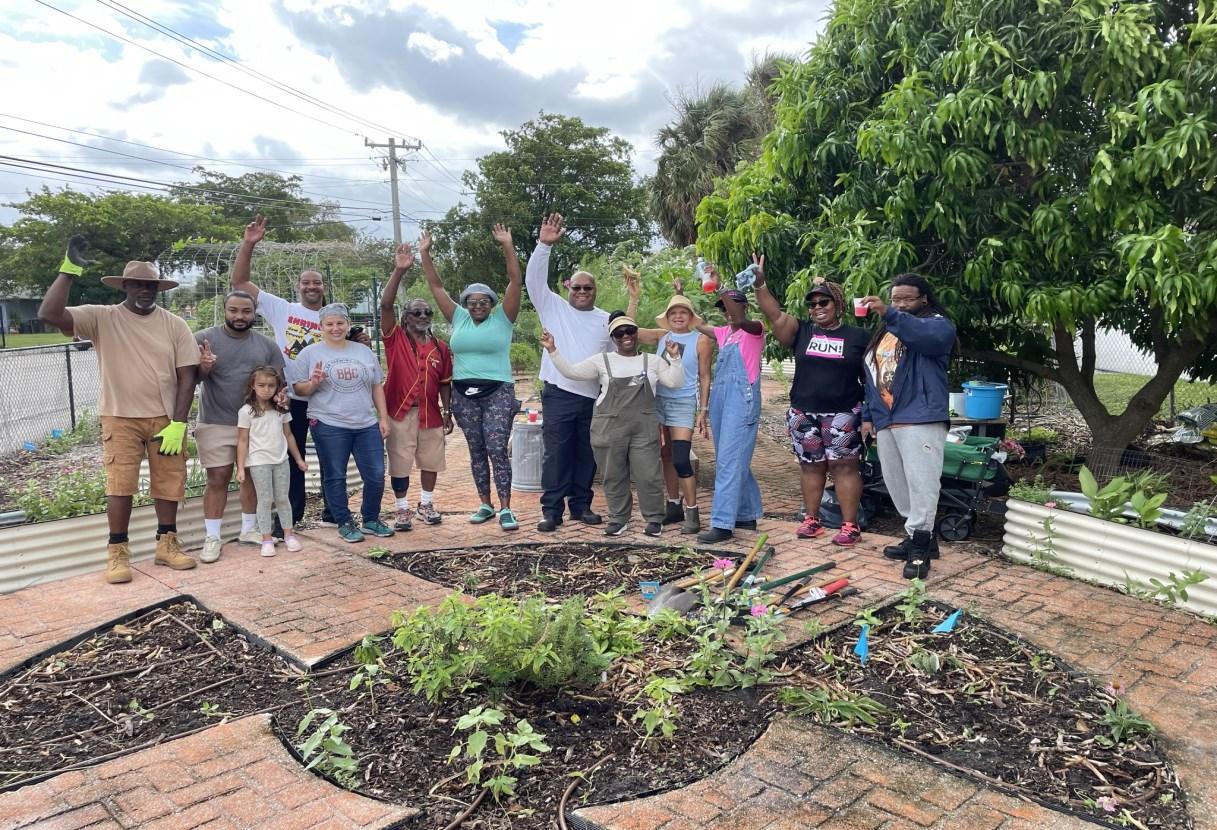
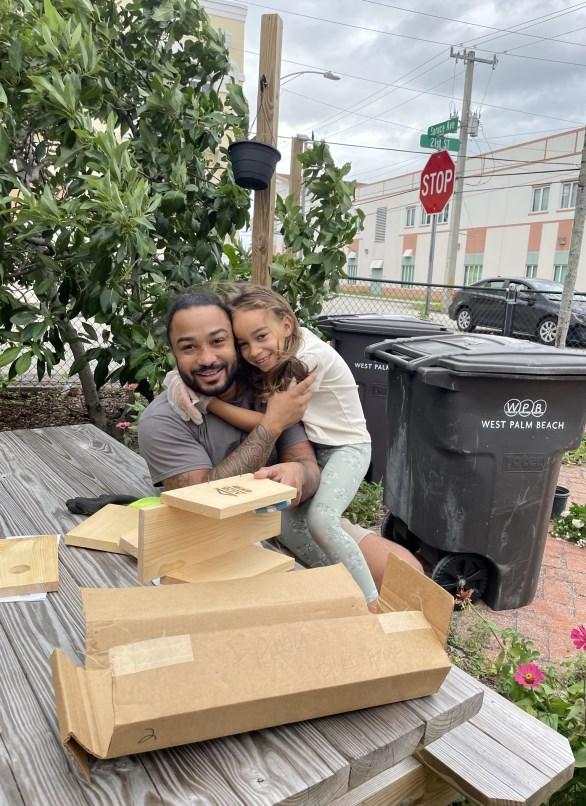
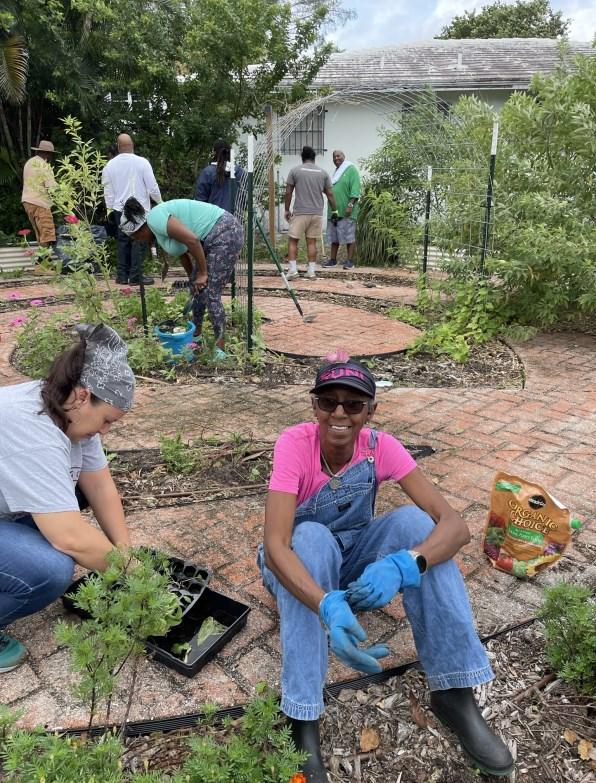
Community volunteering involves individuals offering their time, skills, and efforts to help others or improve their local communities without monetary compensation. Volunteering fosters a sense of community, strengthens social ties, and provides personal satisfaction while addressing various needs such as education, environmental conservation, and social services. It's a way for people to give back, create positive change, and make a meaningful impact on the lives of others .
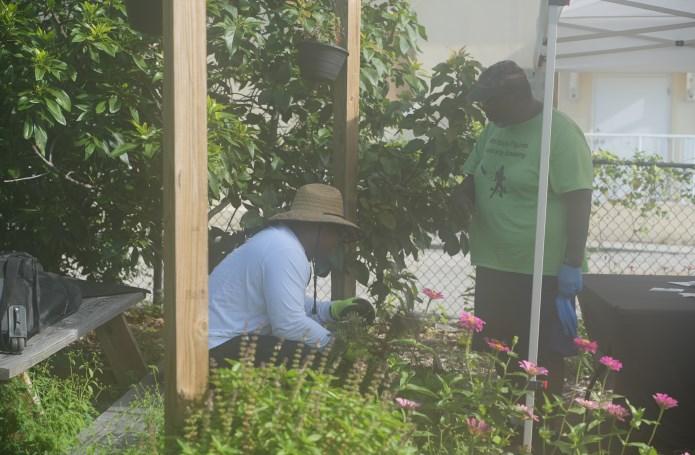
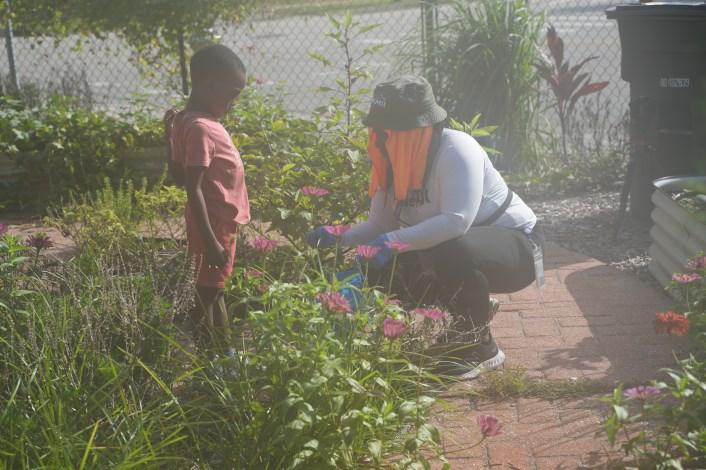
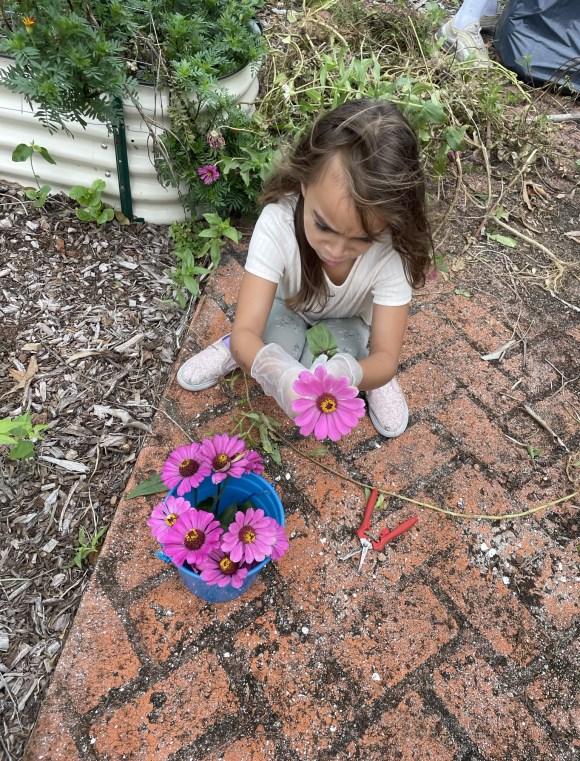
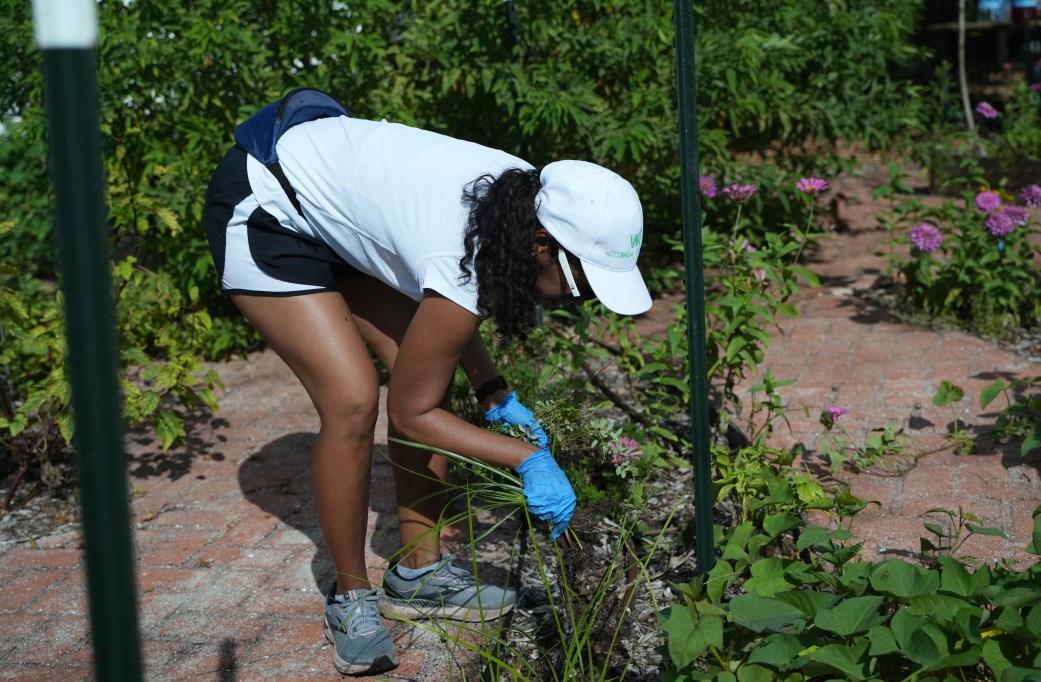
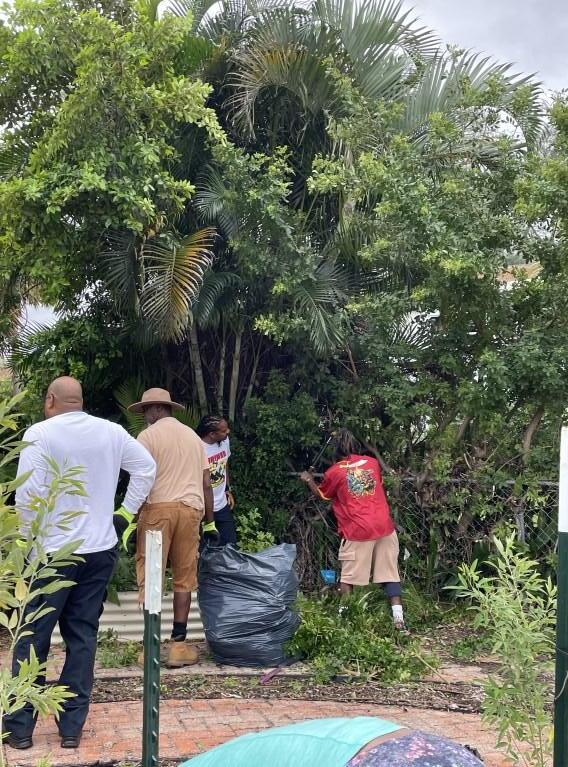
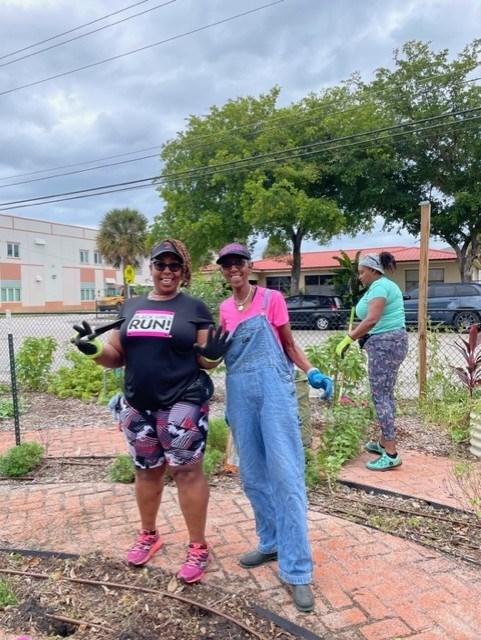

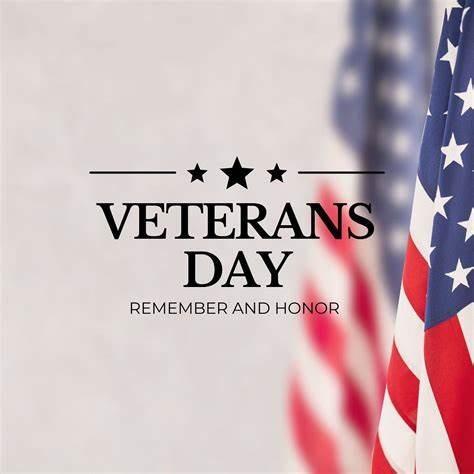

Contributor: Linda Sapp
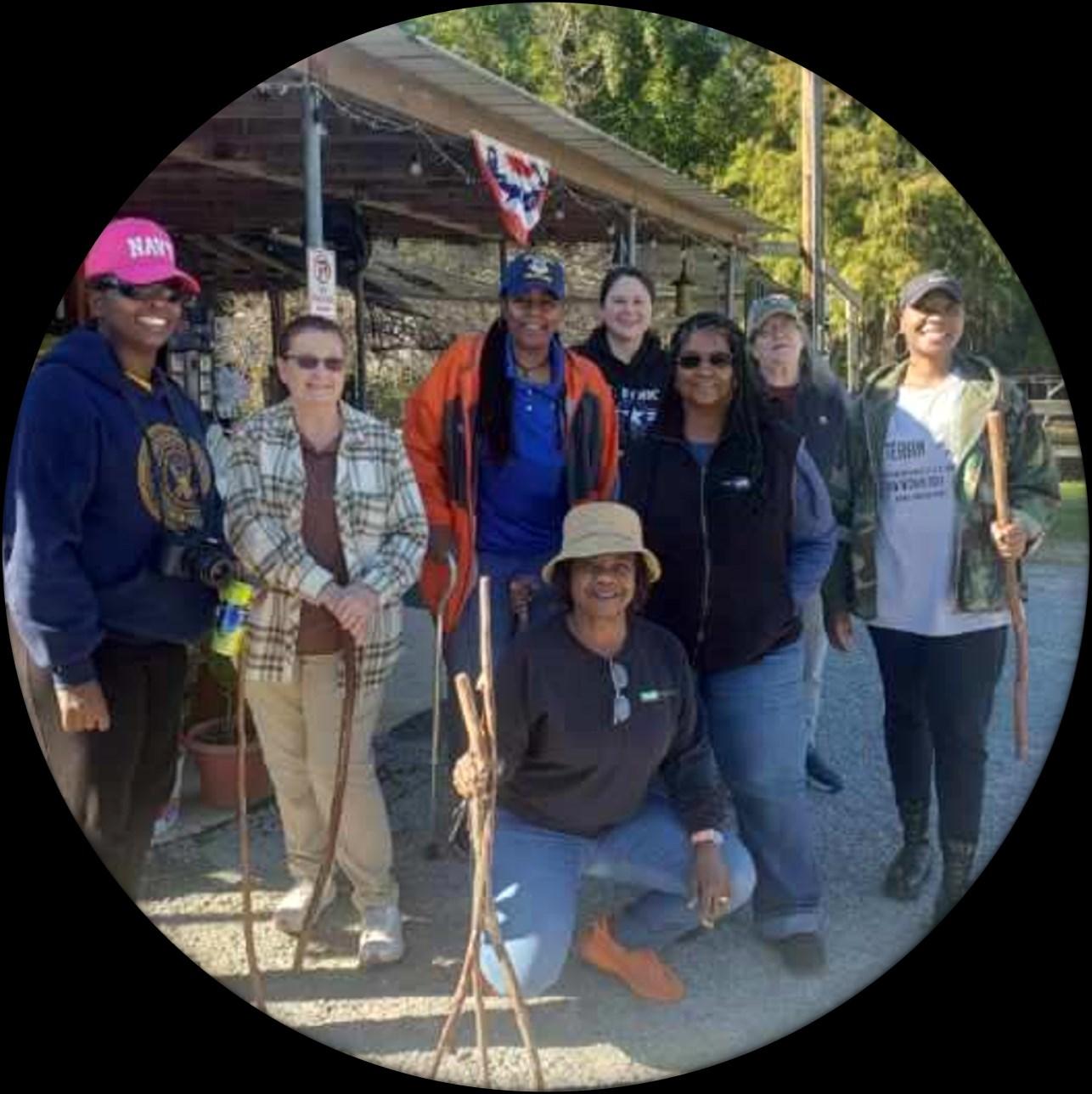
The Women Veterans Unite (WVU) held their 2nd Annual Fall Camping Retreat at "AT Ease Campground & Marina Wingate Landing," a scenic venue managed by veterans Don Fabian (US Army) and his wife Pattie (USAF), who is also a WVU member. The weekend was filled with fun, food, and fellowship, offering the women veterans a much needed opportunity to relax and reconnect with each other. Returning to the campsite for a second year, the group enjoyed a variety of activities, including sunset cruises, fishing, kayaking, canoeing, bonfires, games, crafts, massages, and nature hikes. The weekend was designed to provide both adventure and relaxation, giving these remarkable women a chance to unwind and enjoy the outdoors.
Two weeks prior to the event, Sharon Brooks, a FAMU employee and WVU member, invited a guest to lead a nature hike for the women veterans, which they gladly accepted. The hike turned out to be an unforgettable experience, filled with joy and camaraderie. As the women veterans walked through the woods, they hugged trees, identified plants, listened to bird calls, and shared stories, creating a space where they felt connected with nature and each other.
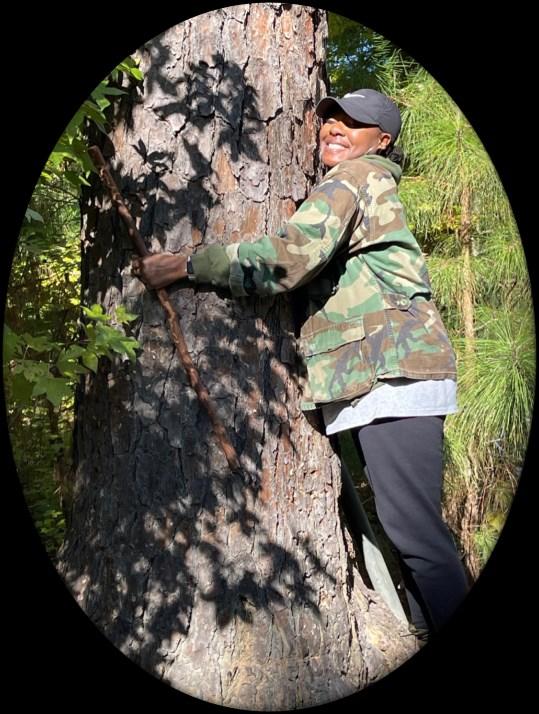
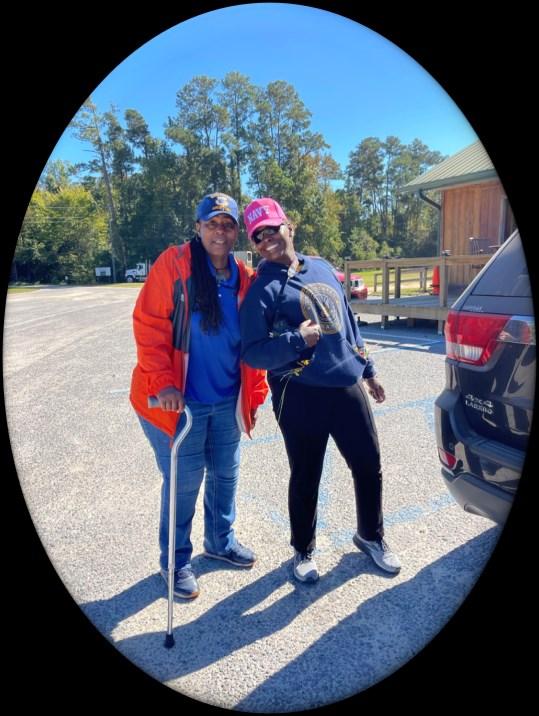
The hike became more than just a stroll through the forest; it was a celebration of unity and the shared bond these women have as veterans and sisters in arms.
The weekend wasn’t focused on work or responsibilities but on cherishing each other’s company and reflecting on the past. The laughter and memories shared during the hike were a testament to the strength, resilience, and joy these women embody every day.
As the guest prepared to leave on Saturday night, heartfelt hugs were exchanged, along with words of gratitude for the veterans' service and sacrifice. The guest felt privileged to spend time with such brave and committed individuals.
The retreat highlighted the importance of community, support, and the healing power of nature for those who share the journey of service. Anticipation for next year’s retreat is already building, with hopes of rejoining this special group once again.
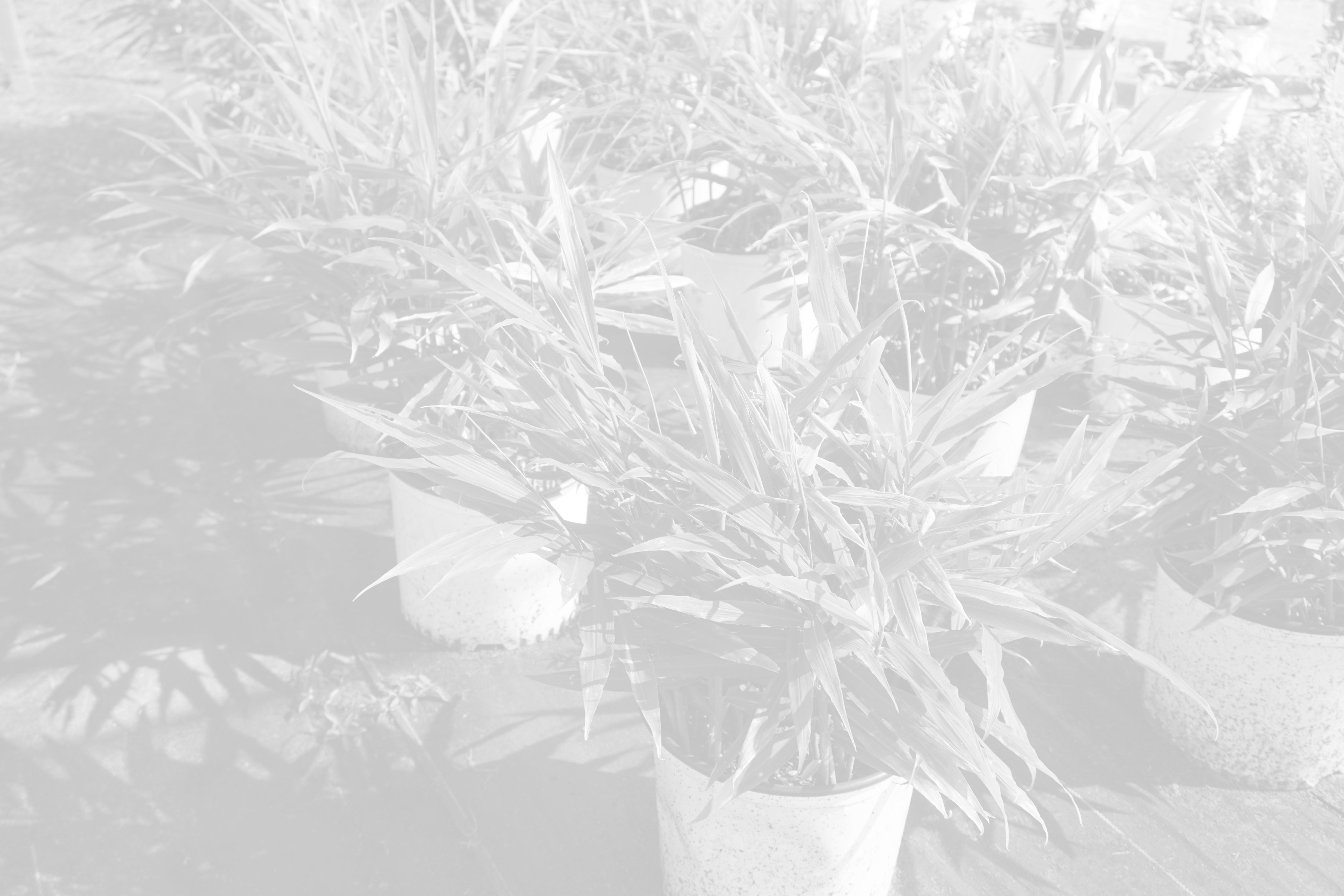
Contributor: Gilbert Queeley, PhD
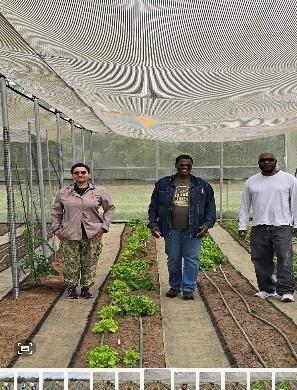
There is mounting evidence that farming is no longer sustainable for small farms. In fact, recent data from the 2022 Census of Agriculture indicates another 10 percent decline in the number of farms in this category. There is an urgent need for interventions that can make farming a profitable venture for small farms. The Beginning farmer and Rancher Development Program (BFRDP) at Florida A&M university, addresses this need by recruiting and training socially disadvantaged farmers and ranchers to become successful. Our clientele involves limited resource farmers, ranchers, and military veterans who aspire to become farmers.
Driven by the realization that farming solutions are complex, the program is designed to address self-identified farmers’ goals. We utilize a strategy that incorporates our ‘in-house’ resources, consultations, partnerships and collaborations, to provide farmers with a rich learning experience. The most recent addition to our strategy, is an apprenticeship system that compensates beginning farmers and ranchers for the time spent being trained at the facility that best suits their long-term farming goals.
To date, more than 200 beginning farmers, and ranchers have benefitted from the program. Within the past year alone, thirty (30) certificates of completion were awarded for financial literacy and twenty-five (25) for produce safety training. More than 80 percent of the farmers indicated that the training would be beneficial. Although reported income gains have only been modest, the vast majority of farmers indicate that they now feel more comfortable applying for farm loans, and several have secured licenses for operating small agribusinesses.
For more information, contact: Gilbert Queeley, PhD., at gilbert.queeley@famu.edu

As urban farming gains momentum across the United States, the need for Extension programs tailored to urban audiences becomes increasingly critical. In West Palm Beach, Florida A&M University’s (FAMU) Cooperative Extension is addressing community well-being and food insecurity through its Urban Agriculture program.
Our initiatives, including community and school gardens, as well as backyard and patio/balcony gardens, are designed to increase access to fresh, healthy food, promote public health, foster a sense of community, and improve environmental quality. A standout example is the Roosevelt Middle School Garden Club, where seventh and eighth graders learn to grow vegetables and herbs from seed to harvest. This hands-on experience not only enriches their education but also provides residents with free, fresh produce.
Through these sustainable urban programs, we are working to eliminate food deserts, support new businesses, teach youth workforce skills, and encourage healthy eating and physical activity. The innovation and dedication of Extension professionals continue to drive positive change, enhancing the quality of urban life and fostering vibrant, resilient communities.
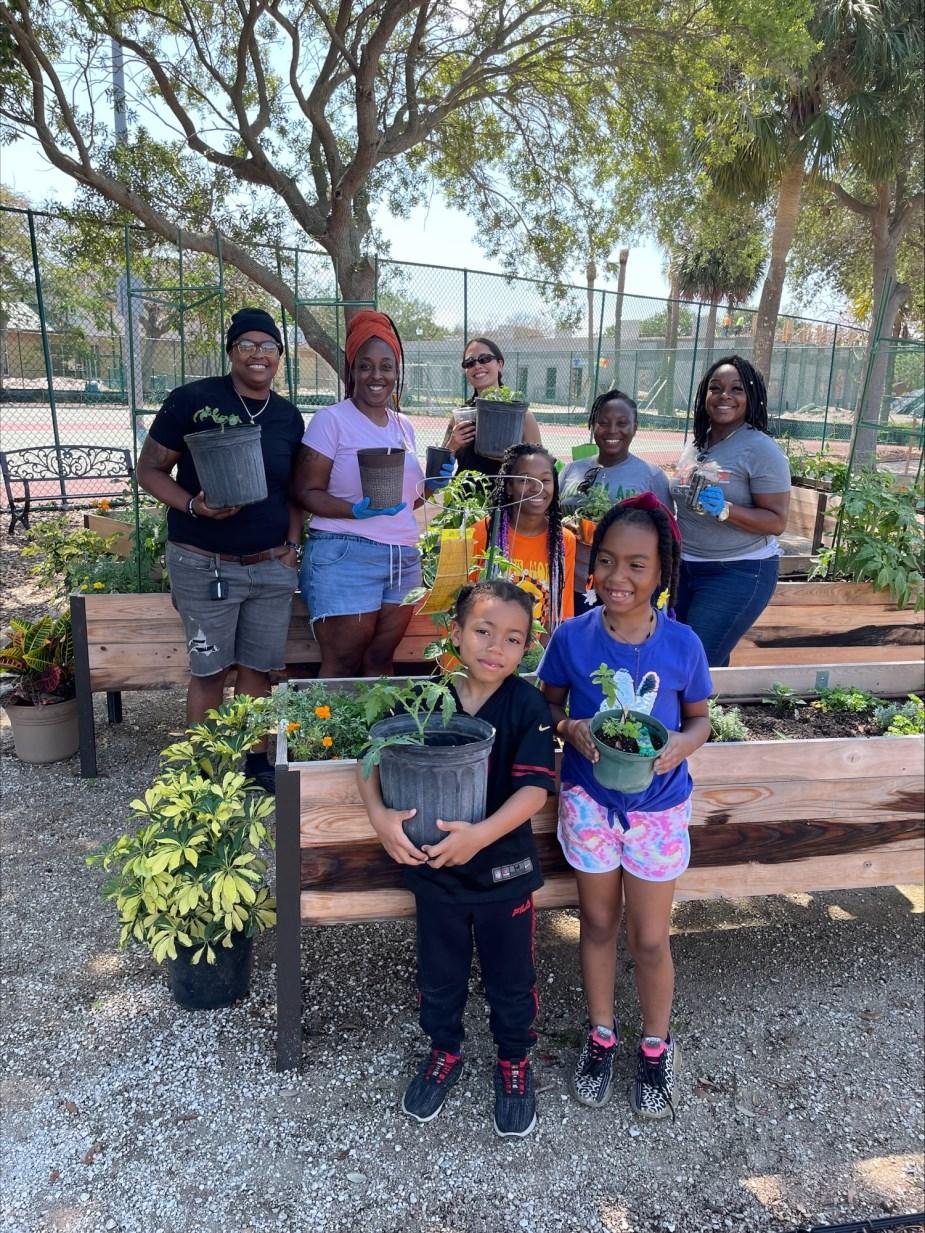
Contributors: Tavia Gordon and Linda Sapp
When we think of rice, our minds often drift to Asia, especially China. In the 2022/2023 growing season, China topped global rice production with around 146 million metric tons of milled rice, with India close behind at over 135 million metric tons. However, South Florida isn’t a region typically linked to rice farming. Despite that, South Florida has a deep history closely tied to the cultivation of both rice and sugarcane two vital crops that have significantly shaped its landscape and local communities.
Sugarcane farming in Florida traces back to the 1850s, long before the 20th century. It was during this period that the Fanjul family harvested their first sugarcane crop, setting the stage for what would later become Florida Crystals. Today, this company is recognized for its commitment to regenerative farming and producing premium raw cane sugars.
The Fanjul family’s dedication to sustainable agriculture is evident on their Florida farms, where environmental stewardship goes hand in hand with cultivating high-quality sugarcane.
Rice in South Florida: A Hidden Gem Florida Crystals is not only known for its sugarcane; it also operates the only rice mill in Florida. While rice is often linked with Asia, it plays a vital role in South Florida’s agricultural landscape. .
As a dietary staple for two-thirds of the world's population, rice accounts for over 20% of global caloric intake.
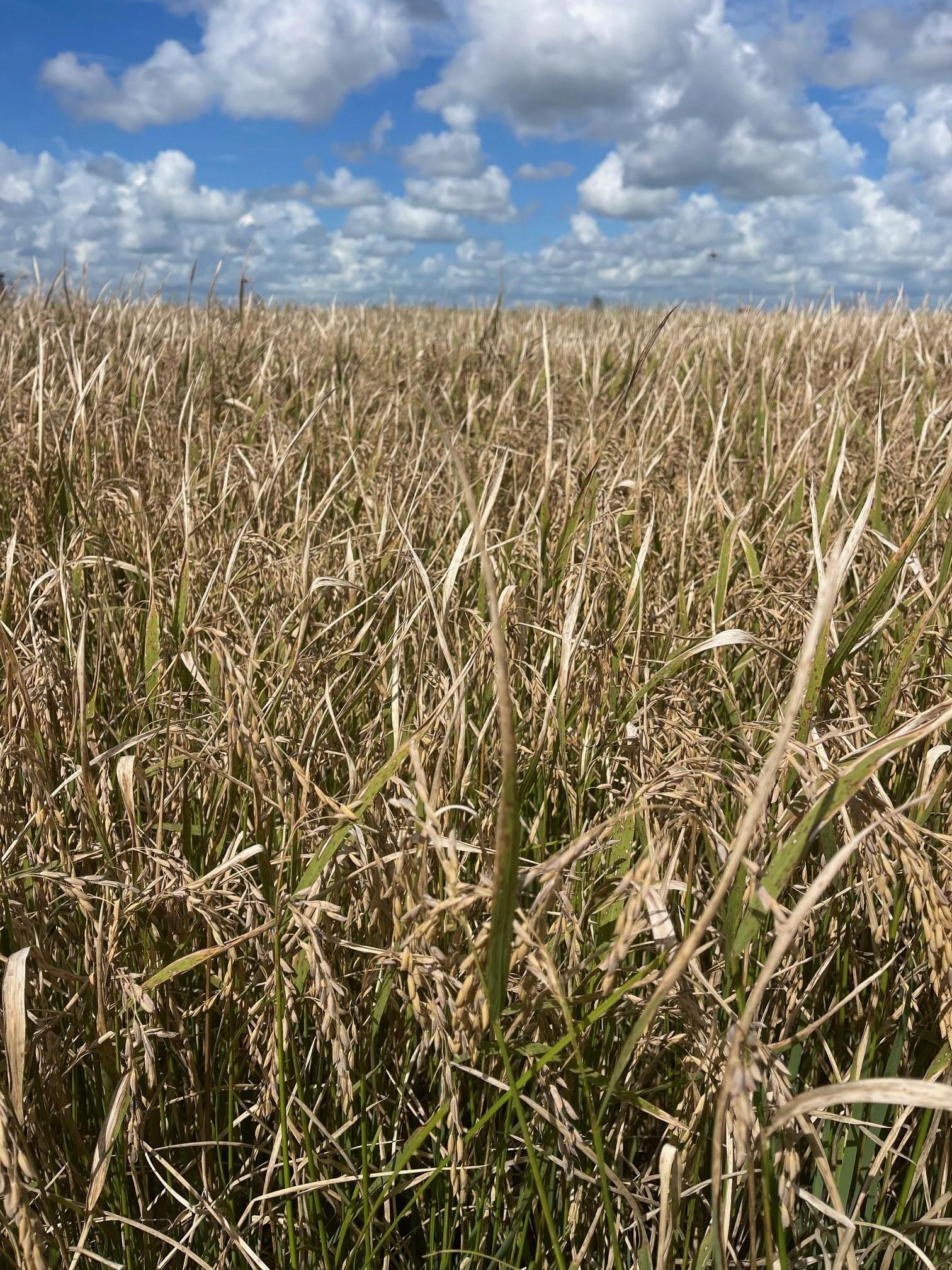
Surprisingly, Florida is one of just seven U.S. states that cultivates rice, contributing to the nation's supply of this essential crop
During our visit to Florida Crystals’ farms, we had the rare chance to observe the rice harvest. The freshly cut rice is transported to the Sem- Chi Rice Mill, located in Belle Glade, where it undergoes cleaning, drying, milling, and packaging. The mill processes more than 90 million pounds of rice annually, including organic and conventional brown and white varieties.
Florida Crystals also supports local farmers by milling rice for independent growers in the area. Their rice products are gluten-free, kosher, Non-GMO verified, and suitable for vegans. They also produce both organic and conventional rice flour, which is becoming a popular gluten-free alternative.
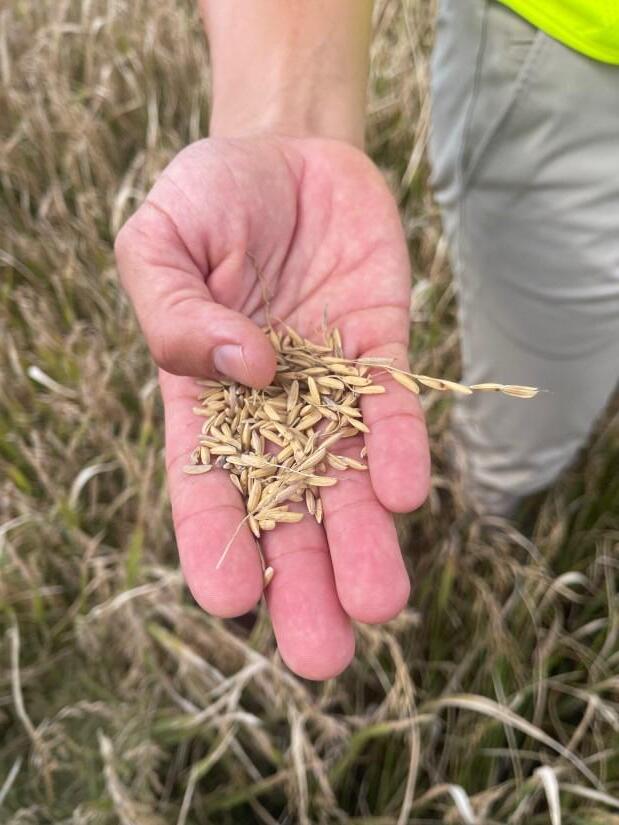
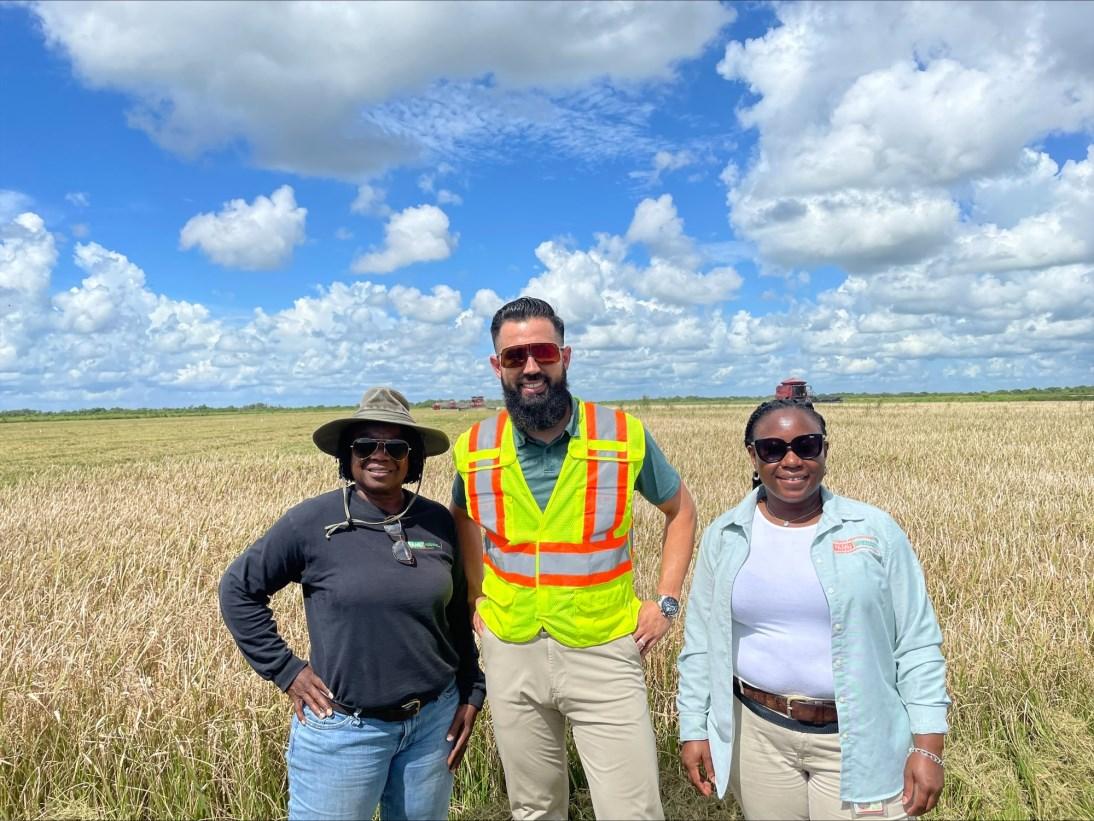
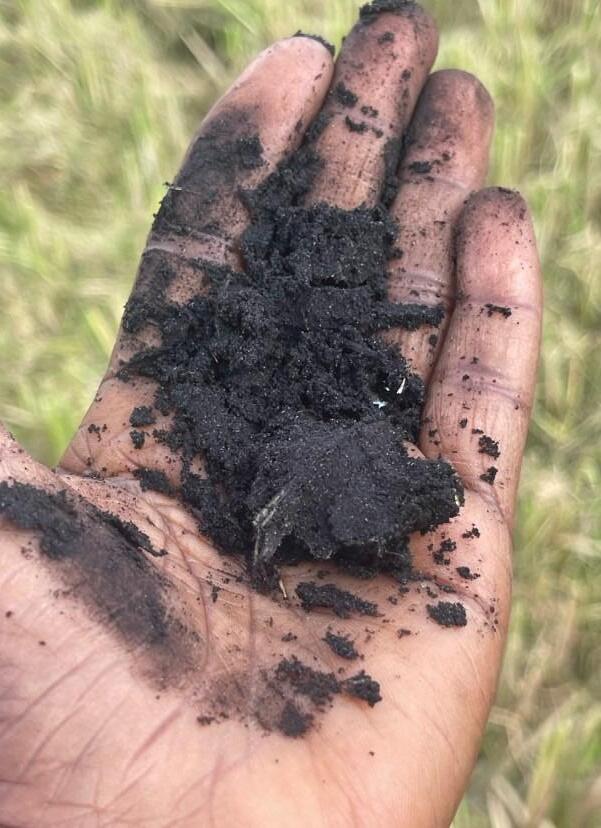
Freshly harvested rice grains with hull intact, Linda Sapp (FAMU Extension) , Daniel Cavazos (Florida Crystals, Director of Rice and Organic Farming) and Tavia Gordon (FAMU Extension) in rice field, Clewiston, FL, and black gold soil.
When people think of sugarcane, countries like Brazil producing 724.4 million metric tons in 2022 and India, with 439.4 million metric tons, often come to mind. However, Palm Beach County, Florida, is home to Florida Crystals’ extensive sugarcane operations, located in the Glades. During our visit, we witnessed the simultaneous harvesting of sugarcane and rice a surprising scene in a state not typically linked to these crops. Florida Crystals cultivates its sugarcane with a focus on environmental sustainability, producing products that are Non-GMO verified, Vegan Action certified, kosher, and USDA organic certified.
Their offerings include organic light brown sugar, powdered sugar, and turbinado cane sugar, all gluten-free.
Regenerative organic agriculture is a farming practice that not only preserves soil health but actively enhances it, offering benefits for the planet, people, and animals alike. Florida Crystals is at the forefront of this movement, going beyond traditional organic farming by focusing on resource improvement rather than mere maintenance.
This approach eliminates the need for harmful chemicals, promoting a sustainable and environmentally friendly agricultural model.
One of Florida Crystals’ most innovative and environmentally friendly farming methods is their Barn Owl Program. By providing nesting boxes for barn owls, they’ve developed a natural form of pest control. These owls thrive in the green spaces around the farms, helping manage pests without the use of synthetic pesticides. As a result, Florida Crystals boasts one of the highest barn owl populations in North America, demonstrating their strong commitment to sustainable farming
Farmers in South Florida affectionately call their nutrient-rich soil "Black Gold," a key factor in the success of crops like rice and sugarcane. The fertility of this soil is sustained through crop rotation, where rice and sugarcane are alternated to restore and maintain its nutrient content. During our visit, we were able to experience this "Black Gold" firsthand,
feeling its vitality and understanding the critical role it plays in Florida Crystals’ agricultural success.
The story of rice and sugarcane farming in South Florida is both surprising and inspiring. Through innovation, dedication, and a deep commitment to sustainability, Florida Crystals has shown that it is possible to grow two of the world’s most essential crops in a way that benefits both the land and the local community. From their groundbreaking regenerative agriculture practices to their creative Barn Owl Program, Florida Crystals is leading the way in eco-friendly farming right here in Florida. Photos courtesy of Linda Sapp and Tavia Gordon.


